PARSHAT METZORA (SHABBAT HAGADOL)
PESACH | PARSHAT ACHAREI MOT
Dear Torah Tidbits Familiy
Rabbi Avi Berman Pg 4
Beyond the Letter of the Law Pg 82
Rabbi Baruch Taub


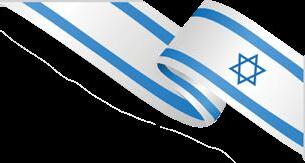
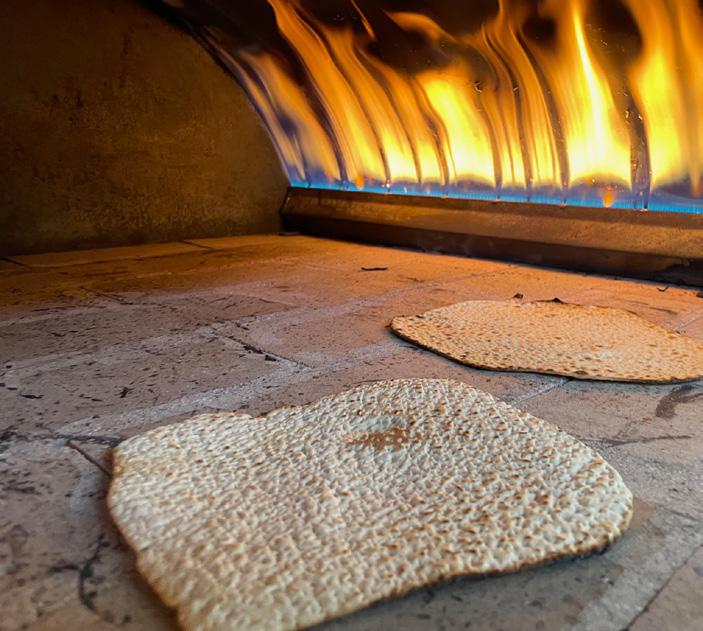
OU Israel wishes you and your family Chag Kasher v'Sameach!
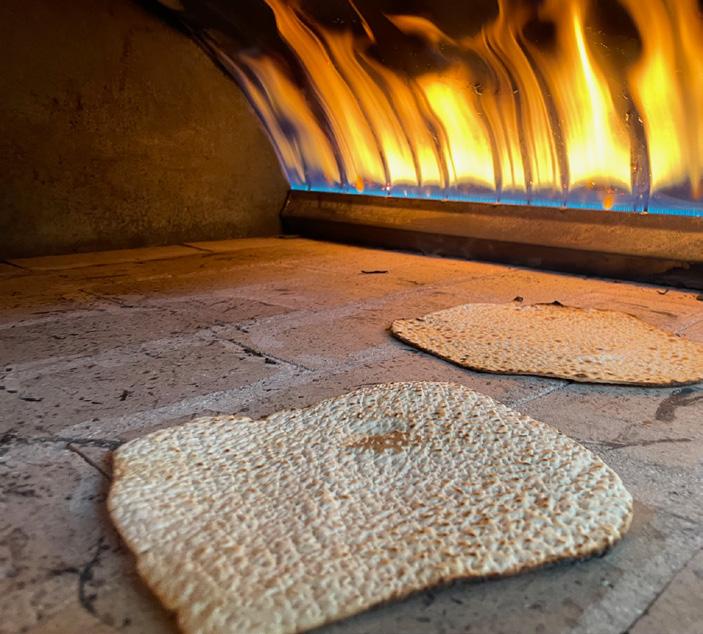
The OU Israel Family wishes a special Mazal Tov to Ezra Spiewak on your Bar Mitzvah


ADVERTISING & SPONSORSHIPS 02-560-9125 TorahTidbits.com OU ISRAEL 02-560-9100 YERUSHALAYIM SHABBAT PARSHAT METZORA CANDLES 6:35 PM • EARLY 5:49 PM • HAVDALA 7:50 PM • RABBEINU TAM 8:29 PM ה"ב ISSUE 1562 APR. 20 2024 ▪ ד"פשת ןסינ ב״י תומ ירחא | חספ | ערוצמ תשרפ
United We Stand
לאגיל ןידיתע ןסינב ,ולאגנ ןסינב א״י הנשה שאר SPECIAL EXPANDED ISSUE
Table of Contents


Last Opportunity to say KIDDUSH LEVANA until: 14 Nisan/Sun. night April 21
HELPFUL REMINDERS for PESACH (Times are for Jerusalem)
• Sunday night April 21st is Bedikat Chametz (at nightfall)
• Latest time to eat Chametz: Monday morning April 22nd - Magen Avraham 9:54 am, Gra 10:26 am
• Latest time to burn/annul Chametz: Monday morning April 22nd - Magen Avraham 11:16 am, Gra 11:32 am
• We eat the Afikoman at the Seder no later than 12:38 am
• Tefilat Tal is recited on the first day of Pesach
• We begin to say הכרב ןתו in the weekday Amidah (we stop saying םשגה דירומו חורה בישמ)
• On Motzei Yom Tov Rishon we begin counting Sefirat HaOmer (see Sefirat HaOmer chart on page 48)
• On Shabbat Chol Hamoed the Book of Shir Hashirim is read

REMINDERS for the END OF PESACH
• When lighting candles for the last day of Pesach, the blessing of Shehechiyanu is Not recited
• Yizkor is recited on the last day of Pesach
• We begin the cycle of Pirkei Avot on Shabbat Acharei Mot (First Chapter)
•
Monday
6th
2 TORAH TIDBITS 1562 / METZORA - PESACH - ACHREI MOT
Yom Hashoah is observed on
Please see the OU Israel’s Pesach Guide for more detailed halachot and explanatory articles Every year, we go to my cousin Ira Wiseman and his wife Tamar, who made Aliyah from Florida and Baltimore, to bake Matzah with their incredible family and neighbors in Sde Ilan. This is a way we connect ourselves and our families to the Pesach experience. The photos on the cover and in my column are Matzah baking with them. - Rabbi Avi Berman 42 Existential Egg Rebbetzin Shira Smiles 44 Pre-Pesach: On the Cusp Rabbi Judah Mischel 48 Pullout Omer Chart 52 Medications on Pesach Rabbi Ezra Friedman 54 Simchat Shmuel Rabbi Sam Shor 60 Pesach: Will Geulah Be Selective Or Inclusive? Rabbi Moshe Taragin 66 The Meaning Behind the Leaning: Lessons for Today’s Times Rebbetzin Zemira Ozarowski 70 When To Speak About the War at Your Seder. And What To Say. Rabbi Aaron Goldscheider 72 How Many K’zeitim and Why? Rabbi Daniel Mann 04 Dear Torah Tidbits Family Rabbi Avi Berman PARSHAT METZORA / SHABBAT HAGADOL 08 Jews Stand Together Rabbi Moshe Hauer 12 Aliya-by-Aliya Sedra Summary Parshat Metzora Rabbi Reuven Tradburks 18 The Great, But Not Yet Holy, Sabbath Rabbi Dr. Tzvi Hersh Weinreb 24 Is There Such A Thing As Lashon Tov? Rabbi Lord Jonathan Sacks zt"l 30 Probing the Prophets Rabbi Nachman Winkler PESACH 34 Aliya-by-Aliya Sedra Summary Pesach Rabbi Reuven Tradburks 36 Pesach Halachot & Zmanim 38 Thoughts on Hallel Rabbi Shalom Rosner 76 Finding God, Wherever He Is Rabbi Gideon Weitzman 78 The Freedom of Pesach (Cleaning) Shoshana Judelman 80 Can We Make This Night Different From All Other Nights? Rabbi & Rebbetzin Billet 82 Beyond the Letter of the Law Rabbi Baruch Taub 86 Beit HaMikdash at the Seder Rabbi David Fine 88 Torah 4 Teens by Teens Rabbi Yosef Ginsberg // Rabbi Michael Kahn PARSHAT ACHAREI MOT 90 Aliya-by-Aliya Sedra Summary Parshat Achrei Mot Rabbi Reuven Tradburks 94 The Y-Files Weekly Comic
May
AND HAVDALA TIMES
CANDLE LIGHTING OTHER Z'MANIM
All Times According to MyZmanim (20 mins before Sunset in most Cities; 40 mins in Yerushalyim and Petach Tikva; 30 mins in Tzfat and Haifa)
Daf Yomi: Kidushin 69
*For Pesach Zmanim see page 37
OU Kashrut NCSY Jewish Action JLIC NJCD / Yachad / Our Way OU West Coast OU Press Synagogue/Community Services OU Advocacy OU Israel
MITCHEL R. AEDER, PRESIDENT OF THE ORTHODOX UNION Yehuda Neuberger, Chairman of the Board, Orthodox Union | Dr. Josh Penn, OU Kashrus Commission
RABBI MOSHE HAUER, EXECUTIVE VICE PRESIDENT | RABBI JOSHUA M. JOSEPH, ED.D.
EXECUTIVE VICE PRESIDENT & CHIEF OPERATING OFFICER Rabbi Dr. Tzvi Hersh Weinreb, Exec. V.P. Emeritus
OU KOSHER: Rabbi Menachem Genack, CEO/Rabbinic Administrator OU Kosher | Rabbi Moshe Elefant, COO/Executive Rabbinic Coordinator ISRAEL: Rabbi Yissachar Dov Krakowski, Rabbinic Administrator | Rabbi Ezra Friedman, The Gustave and Carol Jacobs Center for Kashrut Education/ Deputy Rabbinic Administrator
Headquarters: 40 Rector St. 4th floor, New York, NY 10006 212-563-4000 website: www.ou.org
JERUSALEM
JERUSALEM
Ranges 11 days Wed - Shabbat
Ranges 18 days Wednesday - Shabbat
Oct x - x / x - x Cheshvan
April 17 - May 4 / 9 - 26 Nisan
Earliest Tallit and Tefillin x:xx - x:xx
Earliest Tallit and Tefillin 5:15 - 4:55
Sunrise x:xx - x:xx
Sunrise 6:08 - 5:50
Sof Zman Kriat Shema x:xx - x:xx
Sof Zman Kriat Shema 9:23 - 9:13
Magen Avraham x:xx - x:xx
Magen Avraham 8:45 - 8:33
Sof Zman Tefila x:xx-x:xx
Sof Zman Tefila 10:28 - 10:21
(According to the Gra and Baal HaTanya)
(According to the Gra and Baal HaTanya) Chatzot (Halachic Noon) 12:38 - 12:36
Chatzot (Halachic Noon) x:xx - x:xx
Mincha Gedola (Earliest Mincha) x:xx - x:xx
Plag Mincha x:xx - x:xx
Sunset (Including Elevation) x:xx - x:xx
Seymour J. Abrams • Orthodox Union Jerusalem World Center
• Avrom Silver Jerusalem College for Adults • Wolinetz Family Shul • Makom BaLev • Birthright • Yachad • NCSY in Israel • JLIC in Israel • Camp Dror • Pearl & Harold M. Jacobs ZULA Outreach Center • The Jack Gindi Oraita Program • OU Israel Kashrut
STUART HERSHKOWITZ, PRESIDENT OU ISRAEL
Zvi Sand / Yitzchak Fund: Former Presidents, OU Israel | Rabbi Emanuel Quint z”l, Senior Vice President | Prof. Meni Koslowsky, Vice President
VAAD MEMBERS:
Michael Elman | Yonatan Frankel | Yitzchak Fund | Daniella Hellerstein | Stuart Hershkowitz | Jeremy
Lustman | Meir Raskas | Atara Reichel | Zvi Sand | Norman Schmutter | Mark Schneider | Esther Williams
RABBI AVI BERMAN, EXECUTIVE DIRECTOR, OU ISRAEL
David Katz, CFO, OU Israel | Natan Kandler, COO, OU Israel | Chaim Pelzner, Director of Programs, OU Israel | Rabbi Sam Shor, Director of Programs, OU Israel Center | Rabbi Sholom Gold zt"l, Dean, Avrom Silver Jerusalem College for Adults
22 Keren HaYesod <> POB 1441 <> Jerusalem
9101032
phone: (02) 560 9100 | fax: (02) 561-7432
email: office@ouisrael.org
website: www.ouisrael.org
Founders and initial benefactors of the OU Israel Center: George and Ilse Falk a"h
Torah Tidbits and many of the projects of OU Israel are assisted by grants from THE JERUSALEM MUNICIPALITY

in TT (except, of course, those under OU-Israel hashgacha). Any "promises" made in ads are the sole responsibility of the advertisers and not that of OU Israel, the OU Israel Center , Torah Tidbits.
OU ISRAEL CENTER 3
OU Israel, Torah Tidbits does not endorse the political or halachic positions of its editor, columnists or advertisers, nor guarantee the quality of advertised services or products. Nor do we endorse the kashrut of hotels, restaurants, caterers or food products that are advertised
Editor Emeritus: Phil Chernofsky Editor: Rabbi Aaron Goldscheider | aarong@ouisrael.org Advertising: Ita Rochel | 02-5609125 or ttads@ouisrael.org Website: www.torahtidbits.com Not getting enough TTs? Too many? None at all? Contact our DISTRIBUTION
050-577-2111 • ttdist@ouisrael.org
Mincha Gedola (Earliest Mincha) 1:11 - 1:09 Plag Mincha 5:48 - 5:56 Sunset (Including Elevation) 7:13 - 7:25 Daf Yomi: Bava Metzia 52
HAVDALA EARLY CANDLES HAVDALA EARLY CANDLES 8:01 5:56 6:45 7:50 5:49 6:35 Yerushalayim/Maale Adumim 8:03 5:59 7:02 7:52 5:52 6:53 Aza Area (Netivot, Sderot et al) 8:02 5:57 7:04 7:51 5:50 6:54 Beit Shemesh/RBS 8:01 5:57 7:01 7:50 5:50 6:51 Alon Shvut 8:03 5:58 7:02 7:52 5:51 6:52 Raanana/Tel Mond/Herzliya/K.Saba 8:02 5:58 7:01 7:51 5:50 6:52 Modiin/Chashmonaim 8:04 5:59 7:03 7:52 5:51 6:53 Netanya 8:02 5:58 7:01 7:51 5:50 6:52 Be’er Sheva 8:03 5:58 7:02 7:52 5:51 6:52 Rehovot 8:03 5:58 6:45 7:52 5:51 6:35 Petach Tikva 8:03 5:58 7:01 7:51 5:50 6:52 Ginot Shomron 8:05 5:59 6:53 7:53 5:51 6:43 Haifa / Zichron 8:01 5:57 7:00 7:50 5:49 6:51 Gush Shiloh 8:04 5:59 7:03 7:52 5:51 6:53 Tel Aviv / Givat Shmuel 8:02 5:57 7:05 7:50 5:49 6:55 Givat Zeev 8:01 5:57 7:00 7:50 5:50 6:51 Chevron / Kiryat Arba 8:04 5:59 7:03 7:53 5:52 6:53 Ashkelon 8:03 5:58 7:02 7:52 5:51 6:52 Yad Binyamin 8:03 5:57 6:55 7:51 5:49 6:45 Tzfat / Bikat HaYarden 8:02 5:56 7:00 7:50 5:49 6:50 Golan 8:04 5:59 7:02 7:53 5:51 6:52 Nahariya/Maalot 8:03 5:58 7:01 7:51 5:50 6:51 Afula Rabbeinu Tam (Jerusalem): Metzora 8:29 PM • Achrei Mot 8:38 PM
ACHREI MOT METZORA

DEAR TORAH TIDBITS FAMILY
DEAR TORAH TIDBITS FAMILY
RABBI AVI BERMAN Executive Director, OU Israel aberman@ouisrael.org
The Haggadah is one of the most popular texts to be produced throughout the Jewish world. There are thousands of unique editions, with new commentaries being written every year. One estimate I saw says that there have been about 3,000 editions of the Haggadah printed since the start of the printing press. What’s interesting is that when you look into the historical context in which a particular Haggadah commentary was written, it can tell you all sorts of important historical information. Oftentimes, by examining the text with this in mind, you can come to understand the concerns and issues that were facing the Jewish people in that time and place.
I’ve written before about one of my high school teachers, Rabbi Meshulem Dvir, who had a big influence on me. I remember how he had a large collection of Haggadot. One time, he pointed out to me a Haggadah that had been written during the Holocaust, literally written inside the camps. He showed me how page after page, instead of focusing on the elements of the seder night, or questions about the Haggadah, the author emphasized
RABBI AVI BERMAN Executive Director, OU Israel
the issues surrounding emunah, faith, and particularly how to believe in Hashem even in dark times.
I was in ninth grade at the time and was moved by this revelation. I remember asking myself, “If we were to make a Haggadah today, what would it say? How would it show the influence of our times on us, and how does it express what is unique about what we are going through? Is there something today that needs to be emphasized in our families and to those around us?”
Ever since then, I have asked myself this every year when Pesach comes around: What kind of Haggadah are we creating this year?
If we look at Haggadot that have been published in the last few years, I would say that they are coming from a very healthy place. We can see the flourishing of Am Yisrael in Eretz Yisrael emerging from these pages, but I wonder how this year has changed things. Will the new Haggadot be saying anything differently from past years?
The OU Israel Family sends heartfelt condolences to the family and friends of our long-time friend and supporter
Perel Joseph Azaria a”h on her passing
This is the night of vehigadeta levincha - of Jewish education of the highest importance. The night of the Seder is what many of our children will hold onto when they become adults. They will remember us, our attitudes, our moods, the thoughts we express, from that night. Our children will be looking at us this coming Pesach and trying to understand how to view their lives from within our divrei Torah and how we choose to talk about the lines of the Haggadah, and they will remember it forever. We need to keep this in mind
4 TORAH TIDBITS 1562 / METZORA - PESACH - ACHREI MOT
םילשוריו ןויצ ילבא ראש ךותב םכתא םחני םוקמה
when we sit down at our seder tables. For example, who are the four sons to us? Will we express our hakarat hatov for those sons who have been fighting for us? Will we show our gratitude for those sons adding on more Torah study for the merits of Klal Yisrael? Are we going to say how thankful we are for those sons of Hakadosh Baruch Hu around the world who have donated and sent packages to support our soldiers and our families?
That is just one example of a part of the Haggadah that I see getting a new “spin” this year. But there is a particular line in the Haggadah I come back to again and again, and I wrote about it last week: “Shebechol dor vador omdim aleinu lechaloteinu.” “In every generation they tried to destroy us.” This year, these words mean much more. They will be talked about in a much more visceral way.
The children at the table this year will be looking to us, parents, grandparents, aunts and uncles, teachers, and role models, to see exactly what our attitudes will be when we sit down to read the Haggadah at the seder. We are missing a lot of people at our seder table this year. Jews who have been kidnapped and taken hostage. Friends and family who will be serving in the army over Pesach. Those recuperating from injuries in the hospital. We will be feeling that hurt and loss. Nevertheless, our children and youth are looking to us and wondering, will they have faith or despair? Will they look up to Hakadosh Baruch Hu, and declare loudly, with full faith, “VeHakadosh Baruch Hu matzileinu meyadam”, that Hashem saves us from our enemies?
That our enemies try to wipe us out in each and every generation is easy to believe. This week’s events could not have made this
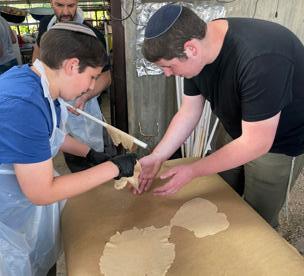
clearer. But do we hold the belief and trust that today, in the near future, Hashem will save us from those who wish to harm us? The question the children will ask will not just be “How is this night different from all other nights?”, but also, “Can we trust that everything will work out? That Hashem will protect us?” And we must in turn respond and show that yes, we can. “Hakadosh Baruch Hu matzileinu meyadam,” every time in the past and every time in the future. We thank Hashem for the ability to develop the amazing technology to defend ourselves - Iron Dome, David’s Sling and the arrow as well as the IDF This statement of faith, this attitude of confidence, is not to belittle the need for our
May the Torah learning from this issue of Torah Tidbits be
Leila Manasseh z”l
On her second Yahrzeit ןסינ
Greatly missed by her children, grandchildren and great grandchildren
Families Ross, Miller, Lipnick & Manasseh
OU ISRAEL CENTER 5
תמשנ יוליעל
ל”ז הקבר היחו יבצ תב החונמ האל
ד”כ
military and diplomatic efforts. It isn’t to sit around and hope for miracles. But it is an expression that the G-d who guides history will help leaders understand their roles in helping the Jewish people and the Jewish State survive and thrive. That Hakadosh Baruch Hu will help us make the right decisions. That He will give our soldiers the strength and courage to fight. That He will convince our media to talk logically and positively about what is going on in Israel and not, chas veshalom, the opposite. This is the belief that “Hakadosh Baruch Hu matzileinu meyadam.”
With this belief, be’ezrat Hashem, we will be able to sit down at our seder for every year after and know precisely what is meant by Hakadosh Baruch Hu matzileinu meyadam.
Let us think about who needs to be invited this year. A family with the husband and father in the army. People who have been displaced from their homes. And many more people, unfortunately. Let us demonstrate and express our trust on the outcome to our children and families, not just in words at the seder, but in action as well.
Wishing you all an uplifting and inspiring Shabbat and Chag Kasher v’Sameach, Rabbi Avi Berman

Executive Director, OU Israel aberman@ouisrael.org



Most Recent Listings in Jerusalem
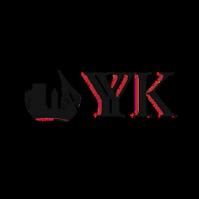






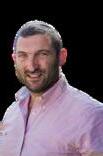
6 TORAH TIDBITS 1562 / METZORA - PESACH - ACHREI MOT
OU Pesach Guide
OU Matzah
SCAN to View:
SCAN to View: Making
Kowalsky 054-766-0338 Yitzchak@yykrealestate.com www.yykrealestate.com New Exclusivity: Penthouse in Arnona EXCLUSIVE: Great Opportunity in Katamonim 2 bedroom, 1.5 bath 66 sqm + 7 sqm balcony Architecturally renovated Central A/C + heat 2nd floor walk up Option for Pinui/Binui 150 sqm penthouse 40 sqm terrace Breathtaking views! 5 bedrooms, 2 full baths Central A/C & heat Shabbat elevator 2 underground parking spots Large storage: 10 sqm FOR RENT: Luxurious Apartment in the Wolfson Towers 320 sqm- all on 1 floor 5 bedrooms, 4 bathrooms Renovated to the highest standards Breathtaking views Storage Available: Immediately Large Triplex Family Apartment in the Heart of Ba’aka 200 sqm on 3 levels 4 bedrooms, 3.5 bathrooms, Small Succah balcony A/C + private heating Full of light & air Quiet Street 2 bedroom, 2 baths 85 sqm 4th floor Shabbat elevator Central A/C + heat Small balcony off the bedroom Full of light & air N e w E x c l u s i v i t y o n R i v k a S t r e e t i n B a k a
Yitzchak









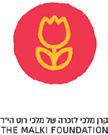




OU ISRAEL CENTER 7 MASSAGE THERAPIST & FITNESS TRAINER 052.673.3704 I www.andyhealth.com | jerusalemmyhome@hotmail.com TUVIA ANDY HAAS BALANCE and FALL-PREVENTION SPECIALIST for OLDER ADULTS Maintain Healthy Bones and Muscles Decrease Stiffness and Joint Pain Increase Strength! Stay Independent! True wholesaler from the diamond boursa with over 25 years experience member diamond dealers club Engagement Rings ∙ Stud Earrings Pendants ∙ Tennis Bracelets 050-573-9061 jeffmor36@gmail.com www.JeffMorDiamondJewelry.com kerenmalki.org 02-567-0602
needs
to choose home care.
are
in
and
Keren Malki empowers families of children with special
in Israel
Donations
tax-approved
Israel, US
UK.
Honoring the memory of Malka Chana Roth ד”יה 1985-2001, killed in the Sbarro bombing.

FROM THE DESK OF RABBI
MOSHE HAUER
OU EXECUTIVE VICE PRESIDENT SHABBAT HAGADOL
Jews Stand Together
Klal Yisrael is being attacked and challenged from all sides. Some threaten us physically, others attack our moral standing, yet others try to block us from having the resources to protect ourselves. The world’s social justice warriors who could always count on the support and allyship of Jews have joined forces with those who oppose the Jewish people’s right to defend their very existence. The nation that dwells alone would be justified in feeling lonely.
Our emunah, our faith and recognition that Ata imadi, Hashem is with us, is critical to our continued strength. But no less fundamental to our future as a people is the extent to which we are there for each other, standing up proudly and protectively against those who cast at us both aspersions and stones.
Vayigdal Moshe vayeitzei el echav. Moshe first emerged from Pharaoh’s palace to concern
In loving memory of our dear mother, grandmother and great-grandmother
DOROTHY WEINER z”l
On her 19th Yahrtzeit
Rena and Zev Lewis
Heschel and Sarelle Weiner
himself with and connect to the Jewish people (Shemos 2:11). He observed their oppression and was immediately there for them, defending a Jew under attack by subduing his Egyptian attacker. Moshe was nevertheless left wondering and confused as to why specifically his people, Klal Yisrael, deserved to suffer such persecution, until on the very next day he encountered two Jews fighting with each other who respond to Moshe’s attempted intervention by turning on him and informing on him to Pharaoh. Here Moshe sadly saw that instead of Jews closing ranks to be there for each other, they were fighting with and turning on each other, leading Moshe to remark, achein noda hadavar, “the matter is now known.” As our sages rendered this, Moshe now understood that the reason for our unusual suffering was this kind of betrayal (Rashi Shemos 2:14). The key to our fate as a people is the extent to which we are there for each other. Lacking that bond of mutual care and responsibility, we did not deserve freedom.
Moshe would be the one chosen to lead the Jewish nation to freedom because it was he who came out of the safety of the palace to take notice of how individual Jews were suffering and to do his part to stand up for them.
This idea reappears later in the story (Shemos 5:23), when Moshe - after having been charged by G-d to go to Pharaoh to seek freedom for the Jewish people – saw things go from bad to worse. Why would Hashem send him on a mission of redemption that produced failure instead of success? Why
8 TORAH TIDBITS 1562 / METZORA - PESACH - ACHREI MOT
חספ לש יעיבש
did it have to get worse before it got better? “Why have you harmed this people? Why did you send me?!”
While Moshe was correct that his request made the bondage worse, it also made the Jewish people better, moving them to rise to the challenge and stand up for each other.
In response to Moshe’s plea for relief, Pharaoh chose instead to double down and stopped giving straw to the Jewish people to make the bricks while maintaining the same production quotas. As the Torah records (Shemos 5:14), there were Jewish officers accountable to the Egyptians whose job it was to ensure that the quotas were met who at this point refused to squeeze any more out of their fellow Jews. Instead, they chose to absorb the blows of the Egyptians and protect their brothers from being unjustly punished (see Rashi to Bamidbar 11:16). After seeing from Moshe’s “failed mission” that Pharaoh would not be there for the Jews, these officers realized that the Jews would only find support from each other. Now, instead of a Jew turning on another Jew, they stood up for and protected each other.
“Hashem said to Moshe, ‘Now you will see what I will do to Pharaoh, for with a mighty hand he will send them out and with a mighty hand he will drive them out of his land.’” (Shemos 6:1) Once Hashem sees us standing up for each other, He is ready to redeem us. Achein noda hadavar. Here again, the key to our fate as a people is the extent to which we are there for each other.
The Haggadah refers to the wicked son who removes himself from the community by speaking as an outsider about the Jewish people’s behaviors and experiences. As Rambam wrote (Hilchos Teshuva 3:11):

our properties were only seaside apartments of 2, 3, 4 or 5 rooms, some with a health club and pool
it would be enough it would be enough
Ashkelon Properties only offered superior interior design and rental management services
Ashkelon Properties was only managed by David Zwebner, a licensed real estate professional with over 50 years of experience
it would be enough

A person who separates himself from the community even though he has not transgressed any sins… who separates himself from the congregation of Israel and does not fulfill mitzvot together with them, does not take part in their hardships, or join in their communal fasts, but rather goes on his own individual path as if he is from another nation, does not have a portion in the world to come.
At this treacherous time, our identification with each other and our standing up for each other is most needed, but it is also most telling. Let us not – as the metzorah – park ourselves outside the machaneh of Jewish community and experience by speaking negatively of each other in any forum. Let us both privately and publicly speak proudly and protectively of every individual Jew and of our precious nation and then be privileged to merit geulah.
OU ISRAEL CENTER 9
properties
ashkelon
וניד
IF IF IF וניד
וניד
וניד L I V E O P P O S I T E T H E S E A d av id z @ A s h ke lo n P ro p e rt ie s .c o m c a l l D a v i d a t 0 5 4 - 4 3 3 - 2 6 2 1 w w w.a s h ke lo n p ro p e r ti e s .c o m
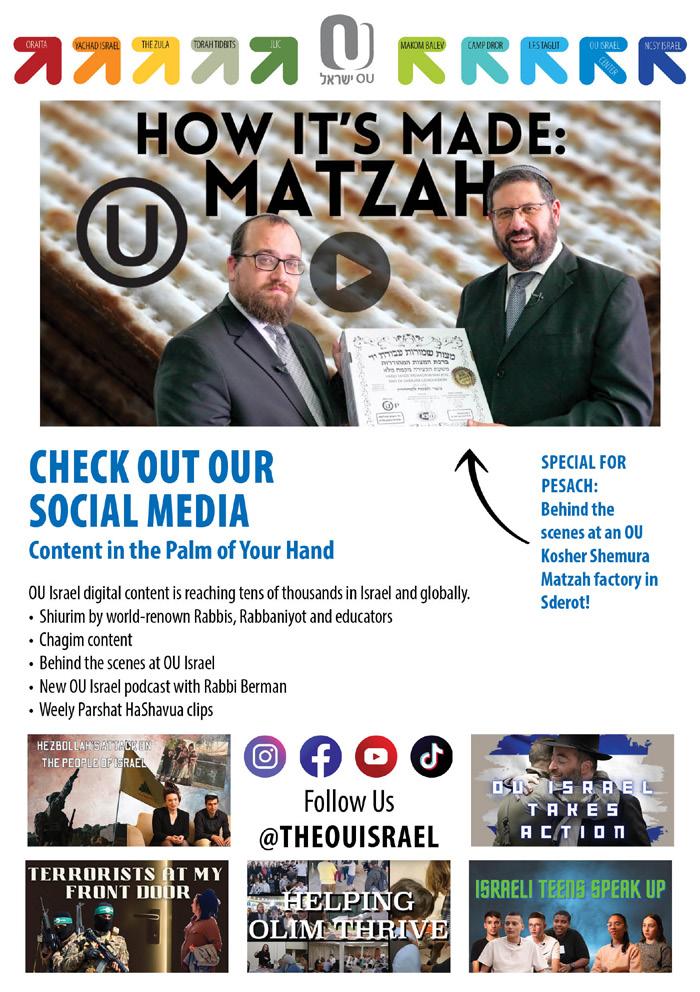
and our next step will be to plant a fruit tree. I never thought of myself as being the agricultural type, but the feeling of settling and planting a portion of Eretz Yisrael, has been truly euphoric. Iy”H, when we plant our tree, and eat the fruits that will grow one day, I think we will be able to truly appreciate that unique Kedusha found in the fruit of Eretz Yisrael!
To conclude, when you buy your Tu B'shvat fruit this year, don’t search for those dried apricots and banana chips imported from Turkey. Rather, head over to the fresh produce and buy yourself some nice juicy Kedusha-filled Jaffa oranges and thank Hashem for bringing you to this land in order , imbibing that Kedusha in every bite that you take!!




before after
Revitalize Your Home:
Sofa | Mattress | Carpet with CLEANEXT Cleaning Experts!
Transform your living space with our professional cleaning services. Say goodbye to stains and odors, and hello to freshness and comfort.
Experience our exceptional service with a highly recommended, no-obligation demonstration in your home.
We work all over Israel
Contact us now for a consultation!
052-2200222

GIVAT MORDECHAI
3 rooms, good investment
1.990.000NIS - MICHAEL 052-3202488
In the heart of calm and pastoral BAKAPrivate arab house, 6 rooms, 500m + possibility of building 250m, huge garden, approx. 700m, completely renovated, underfloor heating + a/c, large parking, 5 bathrooms, 5 toilets, green
MENDEL 0528980111
TALPIOT - Luxurious 4 room apartment, master bedroom, sukkah porch
BAKA - New penthouse, 4 rooms in a small luxurious building with character, alone upstairs, 3rd floor + elevator, 4 orientations, 3 toilets, 2 bathrooms, terrace / sukkah, 70m, parking, store-room
3.760.000 NIS - MICHAEL 052-3202488
HAMOSHAVA GERMANIT
5450000 NIS MENDEL 052-8980111
MOSHAVA / In a building after TAMA 38, new apartment, 4 rooms, 3rd floor + elevator, balcony/partial sukah, opened sight, 2 bathrooms, calm, parking
MENDEL 052-8980111
Large beautiful house, 7 rooms, 300m on 3 levels with elevator, private garden, 175m, beautiful roof terrace, 100m, quiet location pastoral & green, 2 parking spots, 2 large storage rooms, basement, building rights
MICHAEL 052-3202488
BAKA / MEKOR HAIM - 4 rooms, 90m, 2nd floor + elevator, completely renovated, fireplace, a/c, gas heating, very central, close to all amenities
MENDEL 052-8980111
Near Arnona Hatzaira, in a step building, very
OU ISRAEL CENTER 11 OU ISRAEL CENTER 75
הידמ קויד

ALIYA-BY-ALIYA SEDRA SUMMARY
RABBI REUVEN TRADBURKS RCA ISRAEL REGION
PARSHAT METZORA
1ST ALIYA (VAYIKRA 14:1-12)
Purification from Tzaraat : When the Kohen determines that the Tzaraat of the skin has subsided, the Metzora undertakes a process to allow him to reenter the camp, though for 7 additional days he may not enter the Mikdash. Outside of the camp, 2 birds are taken, one slaughtered, the other dipped into its blood and water, along with cedar wood, a red thread and hyssop. The blood and water are sprinkled on the Metzora. The live bird is sent away. The Metzora immerses. The 8th Day: On the 8th day, his hair is shaved, he immerses and brings offerings.
The purification process of the Metzora has 2 stages. The first stage is done out of the camp, or city. After 7 days, a second process is done on the 8th day. This will be described in the next aliya.
The Metzora purification process is unique. It has 3 unusual elements. 1) 2 birds are taken, outside of the city, with one slaughtered, one sent away free. 2) Hyssop, a thread and wood, along with the bird are used to sprinkle upon the Metzora to purify him. 3) On the 8th day, blood and oil are placed on the ear, thumb and big toe of the Metzora.
Each of these unusual elements is found elsewhere. Yom Kippur. Para Aduma, the red heifer. And the inauguration of the Kohanim.
The 2 birds, one offered and one sent
free – well, that is Yom Kippur. 2 goats. One offered and one sent to the wilderness. The goats are instruments of atonement, kapara.
Hyssop used to sprinkle upon a person –well, that is the Para Aduma, the purification of a person after contact with the dead. The sprinkling is the instrument of purification, tahara.
The placing of oil on the ear, thumb and toe was the instrument of inauguration of the Kohanim, achieving holiness, kedusha.
The purification of the Metzora is the kapara of Yom Kippur, the tahara of Para Aduma and the kedusha of the inauguration of the Kohanim. Kapara, Tahara and Kedusha; atonement, purification, holiness.
The Metzora is the most dramatic tuma. He is sent out of the camp entirely. His re-entry to the camp and then to the Mikdash is also the most dramatic: Yom Kippur elements of kapara, atonement, Para Aduma elements of tahara, purity and inauguration elements of kedusha, of holiness.
We have a notion of tuma that we have been developing. The Mikdash is the encounter of man with the Shechina. The Divine invites us to this encounter. We are invited due to G-d’s view of man as regal, noble, dignified. Worthy of invitation.
Tuma is the encounter of man with life situations that bruise our sense of nobility and dignity. Encounters with our mortality, our gross material corporeality, the part of our life we share with all the animal world. This
12 TORAH TIDBITS 1562 / METZORA - PESACH - ACHREI MOT
SHABBAT HAGADOL
includes death, illness, procreation, food. Our nobility resides in our human uniqueness, our communication, our social nature.
The dignity and nobility of the Metzora is bruised by the public nature of the lesions or discoloration on his skin. His regal nature is further damaged by the need for isolation, the loss of social interaction. A double hit to his dignity: the shame of his visible skin blemishes and his need to socially isolate.
In order to regain his lofty dignity, he needs kapara and tahara, 2 processes of renewal, of Divine cleansing. Kapara and Tahara are Divine signals to us of Divine favor. The Divine love for man expresses itself in His willingness to reach for us, to forgive, to wipe clean the past. Kapara and Tahara are G-d’s affirmation of man. Man’s true nobility is the knowledge of G-d’s love and affirmation; the essence of atonement and purity.
2ND ALIYA (14:13-20)
The offering is brought: its blood is placed on the right ear, thumb and big toe of the Metzora. Oil is sprinkled in front of the curtain and placed on the right ear, thumb, big toe and head of the Metzora. With these the Kohen has provided kapara for the Metzora and he becomes tahor.
The unusual placing of blood and oil on the ear, thumb and toe are elements borrowed from the inauguration of the Kohanim, the entry into Kedusha. The Metzora is being equated to or at least associated with the holiness of the Kohanim. In so doing he is affirming that we all are endowed with holiness, that our purpose is an elevated one. The Metzora emerges from his elaborate process of tahara having affirmed anew the dignified, lofty station of man, beloved of his Creator, endowed with kedusha. In this newly
affirmed state, he may rendezvous anew in the Mikdash, as the dignified being beckoned by the Shechina.
3RD ALIYA (14:21-32)
The less expensive alternative: If one is unable to afford the above offerings that are brought on the 8th day for the Metzora, a less expensive alternative is offered, including birds in place of one of the animal offerings. The entire process outlined above is then done to provide kapara and tahara for the Metzora.
The sliding scale of offerings perhaps expresses this theme: it is not what you bring, but that you bring.
4TH ALIYA (14:33-53)
In the Land of Israel, homes will be subject to Tzaraat as well. The Kohen will examine the marks. If declared Tzaraat, all that is in the home becomes tamei, hence all shall be removed before the Kohen’s declaration. If the marks spread over the next 7 days, the Kohen shall order stones removed and replaced. If the spread persists, the Kohen may order the home demolished. If the Kohen declares the home tahor, 2 birds are taken, one slaughtered, the other dipped in its blood with cedar wood, a crimson thread and hyssop. The bird is set free.
We have been arguing that entry into the Mikdash requires a person to recognize their noble station in life. Life can damage our nobility, causing us to underestimate our nobility. But life may also be served to us on a golden platter, inflating our self-perception. Noble we are. But not by virtue of what we have. Rather by virtue of what we are. Our houses may be the source not of diminished dignity but of inflated self-image. Oh, we moderns know all too well how the fantastic
OU ISRAEL CENTER 13
wealth of our times can distort healthy selfperception. Man’s dignity lies not in the grandness of his home, but in the grandeur of his person. A pox on your house if your home has inflated healthy human dignity to become hubris.
5TH ALIYA (14:54-15:15)
A Zav, a male, has a discharge from his organ of procreation that is unusual. He renders others tamei and requires a purification process of 2 bird offerings at the end of 7 days.
Perhaps procreation may also lead to inflated self-perception. After all, we are creators of life. Perhaps the zav needs to re-orient his perception and cede to the real Creator proper deference. Hence, the zav becomes tamei and requires the re-orientation that the offerings express.
6TH ALIYA (15:16-28)
A regular sexual discharge of a man renders a low level of tuma. Nida: A woman’s regular menstrual bleeding renders her temeya for 7 days, transferring her tuma to others including through touch. Zava: A woman who has bleeding inconsistent with her regular period is a Zava, a similar Tuma to the male Zav. She counts 7 days before becoming tahor.
Procreation may lead to an inflated self-image for both men and women. He gives life. We give life. Healthy self-image of our dignity
The OU Israel Family wishes Mazal Tov to Tzivia & Jonathan Cohen on the marriage of their daughter
Yaela to Elad Elbaum
and majesty can be damaged by our physicality in both directions; deflated and inflated. Too low a view, that we are nothing more than animals. Or too high, as creators, leaving less room for the Creator. Perhaps these laws, relating to abnormalities in organs of procreation relate to the possibility or perhaps tendency of human beings to ascribe inflated views of themselves as creators, in place of the Creator.
7TH ALIYA (15:29-33)
Offerings are brought following the cessation of this unusual bleeding.
The laws of tuma and tahara are not a part of our world. The laws are complex. Life in the times of the Mikdash, the world of tuma and tahara would be unrecognizable to us. We would be lost in that world, not knowing what to do. We have vestiges – the washing of hands before bread. And washing our hands at the seder before karpas. The seder is perhaps the only time we really dip our toe into the world of tuma and tahara, just a tad, to transport ourselves, even for a moment to the world of the Mikdash, the world of tuma and tahara.
HAFTORAH
SHABBAT HAGADOL
MALACHI 3:4-24
The Shabbat before Pesach is referred to as Shabbat Hagadol, or The Great Shabbat. Though it is not absolutely certain why Shabbat HaGadol was given this name, some suggest that it is based on a pasuk at the end of the haftorah of this Shabbat. A day will come in the future, says that prophet, that will
14 TORAH TIDBITS 1562 / METZORA - PESACH - ACHREI MOT
your
be ‘gadol’, or awesome. “Lo, I will send the prophet Eliyahu to you before the coming of the awesome, fearful day of the Lord.” (3:23)
The message of Malachi is clear: The people have been committing various sins. He warns the people that there will be a day of reckoning. Every act, every word, we engage in is judged by God. Now is the time to return.
There is a subtle hint in the haftorah to our celebration of the Seder with the reference to the coming of Eliyahu Hanavi. The haftorah ends with a reference to Eliyhau who will come at the end of days to herald the coming of the Mashiach. An uplifting message tops off the haftorah. In the final pesukim the powerful notion is conveyed that just as the people of Israel were redeemed from Egypt after generations of slavery, so too will the people be redeemed with the coming of the Mashiach in the time to come.
May that day come soon be”H!
STATS - METZORA
28th of 54 sedras; 5th of 11 in Vayikra. Written on 159 lines in a Torah (40th). 7 Parshiot; 4 open, 3 closed. 90 pesukim (42nd), 5th in Vayikra. 1274 words (39th), 4th in Vayikra. 4697 letters (48th), 8th in Vayikra.
MITZVOT - METZORA
11 mitzvot; 11 positives, 0 prohibitions.

Most Exquisite Properties in Jerusalem!
180m new penthouse on one level in Baka
5 rooms, large succah terrace, additional 40m storage, high ceilings, Shabbat elevator, parking, close to Nitsanim Synagogue. DEBORAH - 054-4804767
Unique penthouse on Smuts St., German Colony
300m spacious penthouse, private elevator, 6 rooms, double height ceilings, terrace Sukkah, boutique building. MAYA - 054-6650184
Perfect investment apartments in Talbieh
Boutique project, 3 last apartments for sale of 56m, 2 spacious rooms + balcony. JULIA – 054-7007436
Small quiet lane of German Colony - New private house of 500m built, prime location, plot of 560m, 3 levels, possibility for a pool, high ceilings, full of character and light, views. DEBORAH - 054-4804767
In a fresh new building in Rechavia
Luxurious 180m apartment on one level, 5 rooms, 4 bedrooms & Sukkah balcony. JULIA - 054-7007436
New development in the best German Colony
Last 200m penthouse, 140m garden apartments, and 3-4 room apartments, Ready in 3 years. MAYA - 054-6650184
Unique luxurious 450m penthouse with private pool on rooftop in Talbieh - New boutique residence, high ceilings, several large terraces, private roof, magnificent views of Jerusalem, FOR SERIOUS BUYERS ONLY. DEBORAH - 054-4804767
Model apartment for sale in a luxurious residence building in Talbieh - New 105m with 15m balcony. JULIA – 054-7007436
BEST INVESTMENT - PRESALE new development close to Baka - 2,3,4 & 5 rooms, terraces, gardens, private parking, ready in 3 years, great terms of payment!
A small Sefer Torah with its own Aron Kodesh is available to shiva houses or for any other necessary occasion on a temporary free-loan basis. If needed call Uri Hirsch 0545513173
02-6744000
0544804767
www.real-estate-jerusalem.co.il
deborah@realestatejerusalem.co.il
OU ISRAEL CENTER 15




Pesach Themed Tours • Public & Private Tours • Israel Museum • Bible Lands Museum • Virtual Tours www.museumtours.co.il 054-452-0209 Pesach-10-spring 10% discount coupon: by Nachliel Selavan M.Ed “The Museum Guy”
STATE-OF-THE-ART
Dental Implants
Teeth In An Hour
Dr. Gedaliah Mordechai Stern
Diplomate of Oral Implantology
Faster, Easier and Better than ever before.
Come and get a second opinion, if you were told you need:
Bone grafts or sinus lifts Cutting and stitching Months without teeth Not enough bone (These can usually be avoided today)
Almost always with less pain and less swelling, thanks to Lasers and Advanced Technologies. No-cost consult. No-cost x-rays (2D/3D) if have already, within last 6 months.


implantsandlasers-r-us.com
Ussishkin 57, Rechavia, Jerusalem 02-6258258

THE PERSON IN THE PARSHA
BY RABBI DR. TZVI HERSH WEINREB OU EXECUTIVE VICE PRESIDENT, EMERITUS
The Great, But Not Yet Holy, Sabbath
There are many steps that we ascend on our journey towards the holiday of Passover. It is as if it is impossible to just plunge into the holiday without proper preparation. These steps include the many special Sabbaths that precede the holiday. They include the Parshiyot of Shekalim, Zachor, Parah, and HaChodesh, and they culminate this week with Shabbat HaGadol, the Great Sabbath, the final Sabbath before Passover.
I fondly remember the wise old rabbi whose little shul I frequented before I became a shul rabbi myself, back in Baltimore. His name was Rav Yitzchok Sternhell, may he rest in peace. He had many astute observations, only a few of which I recall.
In one of these insights, he pointed out that when one has a question about some aspect of Torah study and finds a single answer, then, essentially, there is no longer a question. It is answered, plainly and simply, once and for all.
Bat Sheva Rubinstein a”h
On her 30th yahrzeit - 26th Nisan Mark & Livia Rottenberg
But when one has a question and there are many answers, then the question remains as strong as when it was posed. There is no need for many answers when there is one correct answer. The multitude of answers indicates that not one of them was sufficient enough to completely resolve the question posed.
One question that has received many answers over the centuries is, “Why is this Sabbath called the Great Sabbath, Shabbat HaGadol?” One answer points to the closing phrase of this week’s selection from the Prophets, the Haftarah, which reads: “Behold, I will send you
Elijah the Prophet
Before the coming
Of the great and awesome day of the Lord.” (Malachi 3:24)
Since we read of the “the great day,” we call it “the Great Sabbath.”
Another approach emphasizes that on the Sabbath preceding the Exodus, the Jews were finally able to prepare lambs and goats for the paschal offering. They did so in the face of their Egyptian slave masters, for whom those animals were considered divine. To be able to fearlessly defy their former slave masters was a “great miracle.” Hence the term “the Great Sabbath.”
18 TORAH TIDBITS 1562 / METZORA - PESACH - ACHREI MOT
יוליעל
הירא בקעי תב
תומשנ
ה”ע
עבש תב
SHABBAT HAGADOL
The list of answers goes on, and space does not allow even a small sample of the others. But I would like to share with you, dear reader, a very creative approach to the term “the Great Sabbath.” This approach is creative because, contrary to all the other interpretations with which I am familiar, this approach sees this week’s Sabbath not as greater than all the others of the year, but as lesser.
The creative commentator to whom I refer is the Chassidic Rebbe, Rabbi Shaul of Modzitz, may he rest in peace. He was known for his prodigious repertoire of musical compositions. The musical creativity of Rabbi Shaul was expressed in his ability to surprise the ear of the listener. His homiletic creativity also contains the element of surprise, of divergent thinking. Using this same divergent thinking, he held a very unique and thought-provoking approach to the Passover Haggadah.
Most of the reasons that are given for the fact that this week’s Sabbath is called the Great Sabbath insist upon the superiority of this particular Sabbath over all the others of the year. Rabbi Shaul diverges from all these other explanations and provocatively suggests that this week’s Sabbath is inferior to all the others.
Therein he asks the question, “Why do we praise this Sabbath as ‘great?’ Is every Sabbath not ‘great?’ In the special blessing that we incorporate in the Grace After Meals, the Birkat HaMazon, every Sabbath, we refer to ‘this great and holy Sabbath... this day which is great and holy before Thee...’”
His surprising answer is that every Sabbath of the year is both “great and holy,” but this final Sabbath before Passover is, in a certain sense, merely “great” and not “holy.”
For every Sabbath, argues Rabbi Shaul,






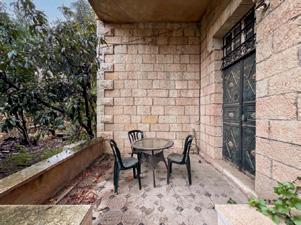
has two components. We might refer to them as the physical component and the spiritual component. The former is built in to the cosmos and can be traced back to the verses in Genesis 2:3. There, God blesses and hallows the Sabbath as part of the process of creation. That is the Sabbath of the physical rest and gives recognition to God’s creative powers and omnipotence. It is “holy,” but only potentially so.
The second aspect of the Sabbath is a spiritual one; “zecher l’yetziat Mizrayim,” a memorial day celebrating the Exodus from Egypt. This has to do with the experience of freedom, of becoming a nation, of undertaking an historical mission.
On this last Sabbath before Passover, the Exodus had not yet taken place. And so, the Sabbath was merely “gadol,” “great.” On that Sabbath, the Jew could only celebrate
OU ISRAEL CENTER 19 NEW CONSTRUCTION PRE-SALE IN OLD KATAMON Whatsapp +972 (0) 52-2636656 usa# 5164675892 , uk# 2037697899 COSY 2BR , 60 SQM WITH ELEVATOR, BALCONY, HIGH CEILINGS - 2.690.000 NIS 1-5 BEDROOMS APARTMENT, ONLY 13 UNITS AVALIABLE - 2.45M NIS RECHAVIA BORDER CITY CENTER - SHATS STREET For more offers more Call now: 077-9973185 OVERSIZED 3BR - 122 SQM ,CHARACTER AND BEAUTY - 4,7 00,000 NIS BAKA – FOR SALE IN AN HISTORICAL BUILDING Gershon Agron 24, Mamilla - Jerusalem PRIVATE INQUIRIES ONLY UNIQUE GARDEN APARTMENT IN THE GERMAN COLONY 4 METER HIGH CEILINGS , GREAT POTENTIAL FOR THOSE LOOKING FOR 250-300 SQM
his freedom from utter bondage and his ability to defy his former slave master. That was “great,” but not yet “holy.” He did not yet have a sense of spiritual freedom and religious destiny.
Only after the first day of Passover, with the actual departure from Egypt, and the march into the desert and towards Mount Sinai, could the Jews begin to sense that something “holy” was in store for them. Only then could they begin to anticipate not just “great” freedom, but “holy” freedom, in order to sense that something spiritual and “holy” was in store.
After that first Passover day, and with every ensuing Sabbath since, the Jewish people experienced not just “a great Sabbath,” but a “great and holy Sabbath.”
Sabbath prior to Passover is “great,” but not yet fully “holy.” After Passover, every Sabbath is transformed and is not only “great,” but “great and holy.” Passover and all that it symbolizes adds a new dimension to every Sabbath that follows it.
This week, then, we remember a Sabbath long ago that was the last of the merely “great” Sabbaths: A Sabbath only of respite from slavish toil, of relief from physical slavery. Next week, after we tell the full narrative of the Exodus and experience all of the Seder night’s rich symbolism and profound lessons, we will be able to celebrate a complete Sabbath, a Sabbath of spiritual freedom and full religious significance. Not just “Shabbat HaGadol,” but “Shabbat HaGadol VeHaKadosh.”


20 TORAH TIDBITS 1562 / METZORA - PESACH - ACHREI MOT


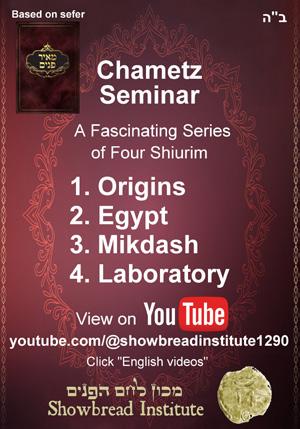
OU ISRAEL CENTER 21
Passover in Gush etzion
The ultimate spring experience, Israeli-style

Special discounts for reservists' families
For all the attractions and activities search "Gush Etzion Tourism" or call for more information: 02-9933863
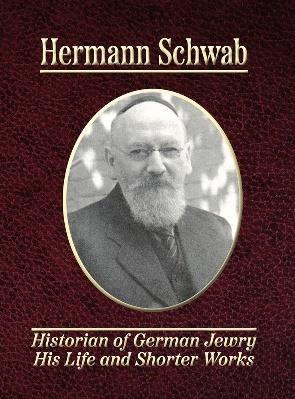
An accomplished and prolific Jewish writer, historian and community leader, Hermann Schwab, presents readers with deep and e nduring life lessons He lived through a tumultuous and heartbreaking period in Jewish history but never lost his fervent faith in God and the Torah.
“ …The writing is beautiful… a very splendid and meaningful work … wonderful words of Torah and wisdom… ”
Rabbi Dr. Abba Engelberg
Enquiries: 0544916128
Distributed by Feldheim Publishers
Available at Jewish bookstores or at https://www.feldheim.com/hermannschwab
22 TORAH TIDBITS 1562 / METZORA - PESACH - ACHREI MOT
Spectacular lookout points
Heritage sites
Cool springs
Attractions and extreme activities
Tours inspired by heroes
L'shana Haba'ah B'yerushalayim Habnuyah
Pesach: A time of renewal and liberation. Celebrate in your own Jerusalem haven. Let our homes be your exodus to joy and freedom. Find your perfect sanctuary today!
The largest collection of exclusive Jerusalem properties is just one search away
www.remaxjerusalem.com

Arza St, Motza Ilit
Stunning 8-room duplex garden apt. Highend renovation, large garden, rental unit option, 2 parking. NIS 6,750,000 Shlomo Benzaquen 052-601-4411


French Hill
Lovely 5-room home in Hill Top luxury complex, Bar Kochba. Private entrance, spacious living area, sukkah balcony. NIS 4.6M

Alyssa Friedland +972 54-668-4111


Anusei Mash'had St, Armon Hanatziv
Spacious garden apartment: abundant natural light, 3 bedrooms, 2 full baths. Experience comfort and convenience in every corner NIS 2,990,000

Micha Paul 052-511-6340

Mevo Hamatmid, City Center

Renovated 2-room, 44 sqm furnished apt with breathtaking view of Old City walls. Full amenities, pool, spa, gym 24/7 security. Prime location. NIS 2,990,000 Orna Even 054-621-6069

Baka


Historical Old Arab Garden apts, combine for 94 sqm. Each apt: ~47 sqm + garden, building rights. Investment/home. Needs reno. NIS 2.95M each, Both 6.2M Alyssa Friedland +972 54-668-4111

Caspi St, Arnona
This Stunning 5-rm apt offers views and optimal airflow from all four directions. Enjoy living in this prestigious location. NIS 5,900,000

Micha Paul 052-511-6340



Ma'alot Nakhalat Shiv'a St, City Center, A truly charming apartment with all the original features beautifully preserved with a little garden adjoining, 100 sqm, 3 rooms, key fee NIS 1,699,000

Judit Blumenfrucht 054-431-8814

Moshav Aminadav
For sale: Stunning estate near Jerusalem, 4 dunams, can divide into 3 plots, with homes, warehouse, agriculture land. NIS 8.500,000 (net)

Alyssa Friedland +972 54-668-4111

HaOranim St, Karnei Shomron
Stunning 3-bedrm duplex row house, fully renovated, offering a special holiday discount of NIS 100,000. Act fast! NIS 2,080,00

Micha Paul 052-511-6340
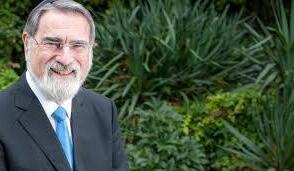
COVENANT & CONVERSATION
Is There Such A Thing As Lashon Tov?
The Sages understood tsara’at, the theme of this week’s parsha, not as an illness but as a miraculous public exposure of the sin of lashon hara, speaking badly about people. Judaism is a sustained meditation on the power of words to heal or harm, mend or destroy. Just as God created the world with words, He empowered us to create, and destroy, relationships with words.
The rabbis said much about lashon hara, but virtually nothing about the corollary, lashon tov, “good speech”. The phrase does not appear in either the Babylonian Talmud or the Talmud Yerushalmi. It figures only in two midrashic passages (where it refers to praising God). But lashon hara does

Mazal Tov to Ezra Spiewak on your Bar Mitzvah
Love from your parents, grandparents and siblings
not mean speaking badly about God. It means speaking badly about human beings. If it is a sin to speak badly about people, is it a mitzvah to speak well about them? My argument will be that it is, and to show this, let us take a journey through the sources.
In Mishnah Avot we read the following:
Rabban Yochanan ben Zakkai had five (pre-eminent) disciples, namely Rabbi Eliezer ben Hyrcanus, Rabbi Joshua ben Chananya, Rabbi Yose the Priest, Rabbi Shimon ben Netanel, and Rabbi Elazar ben Arach.
He used to recount their praise: Eliezer ben Hyrcanus: a plastered well that never loses a drop. Joshua ben Chananya: happy the one who gave him birth. Yose the Priest: a pious man. Shimon ben Netanel: a man who fears sin. Elazar ben Arach: an ever-flowing spring.
Ethics of the Fathers 2:10-11
However, the practice of Rabban Yochanan in praising his disciples seems to stand in contradiction to a Talmudic principle:
Rav Dimi, brother of Rav Safra said: Let no one ever talk in praise of his neighbour, for praise will lead to criticism. Arachin 16a
Rashi gives two explanations of this statement. Having delivered excessive praise [yoter midai], the speaker himself will come to qualify his remarks, admitting for the
24 TORAH TIDBITS 1562 / METZORA - PESACH - ACHREI MOT
zt"l
May the learning of these Divrei Torah be תמשנ יוליעל HaRav Ya'akov
Zvi ben David Arieh
THOUGHTS ON THE WEEKLY PARSHA תומשנ יוליעל ה״ע רטרש קחצי תב הינעמו בייל הירא ןב לאירזעו ה״ע זייא דוד לארשי תב הדלוגו רשא בקעי ןב סחנפ FORMER CHIEF RABBI OF THE UNITED HEBREW CONGREGATIONS OF THE COMMONWEALTH
RABBI LORD JONATHAN SACKS ZT"L
SHABBAT HAGADOL
sake of balance that the person of whom he speaks also has faults. Alternatively, others will point out his faults in response to the praise. For Rashi, the crucial consideration is, is the praise judicious, accurate, true, or it is overstated? If the former, it is permitted; if the latter, it is forbidden. Evidently Rabban Yochanan was careful not to exaggerate. Rambam, however, sees matters differently. He writes: “Whoever speaks well about his neighbour in the presence of his enemies is guilty of a secondary form of evil speech [avak lashon hara], since he will provoke them to speak badly about him” (Hilchot Deot 7:4). According to the Rambam the issue is not whether the praise is moderate or excessive, but the context in which it is delivered. If it is done in the presence of friends of the person about whom you are speaking, it is permitted. It is forbidden only when you are among his enemies and detractors. Praise then becomes a provocation, with bad consequences.
Are these merely two opinions, or is there something deeper at stake? There is a famous passage in the Talmud which discusses how one should sing the praises of a bride at her wedding:
Our Rabbis taught: How should you dance before the bride [i.e. what should one sing]? The disciples of Hillel hold that at a wedding you should sing that the bride is beautiful, whether she is or not. Shammai’s disciples disagree. Whatever the occasion, don’t tell a lie. “Do you call that a lie?” the Hillel’s disciples respond. “In the eyes of the groom at least, the bride is beautiful.”
What’s really at stake here is not just temperament – puritanical Shammaites versus good-natured Hillelites – but two views about the nature of language. The Shammaites


Jerusalem Real Estate is My Business Eta: 054-723-3863
Amazing stand alone homes in OLD KATAMON, TALBIYA, BAKA, GERMAN COLONY
GERMAN COLONY/TALBIYA
400 sqm on one floor parking storage large sukka terrace
In OLD KATAMON 220 sqm plus 80 sqm of outdoor space. For renovation, pkg & storage. Includes separate unit. 8,999,000 NIS
In GERMAN COLONY. 300 sqm plus 170 sqm registered garden. Plus parking and roof top terrace. Price: 18,000,000 NIS
ARNONA exclusive:
Fantastic cottage for sale, registered at 182 sqm plus ground floor unit (can be granny flat). Parking. Built on 3 levels with large terrace on 2nd floor. 5 bedrooms!!! Perfect for a young family. Price 6,900,000 NIS
In BAKA, 236 sqm on two floors, plus 80 sqm of outdoor space, high ceilings, authentic Jerusalem bldg with modern addition. 4 bedrooms, office/ or sitting room. Master suite on entrance level. Parking & storage. Price: 15,950,0000
BAKA Two story penthouse
200 sqm. Light open space
kitchen & living room, sukkah terrace. Elevator, balconies, 2 parking, elevator, storage room. 12,500,000 NIS






Eta Morris Realty, Ltd.
etamorrisrealestate@gmail.com
Eta: 054-723-3863
etamorrisrealty.co.il
OU ISRAEL CENTER 25
think of language as a way of making statements, which are either true or false. The Hillelites understand that language is about more than making statements. We can use language to encourage, empathise, motivate, and inspire. Or we can use it to discourage, disparage, criticise, and depress. Language does more than convey information. It conveys emotion. It creates or disrupts a mood. The sensitive use of speech involves social and emotional intelligence. Language, in J. L. Austin’s famous account can be performative as well as informative.
The discourse between the diciples of Hillel and Shammai is similar to the argument between Rambam and Rashi. For Rashi, as for Shammai, the key question about praise is: is it true, or is it excessive? For Rambam as for Hillel, the question is: what is the context? Is it being said among enemies or friends?

Will it create warmth and esteem or envy and resentment?
We can go one further, for the disagreement between Rashi and Rambam about praise may be related to a more fundamental disagreement about the nature of the command, “You shall love your neighbour as yourself” (Lev. 19:18). Rashi interprets the command to mean: do not do to your neighbour what you would not wish him to do to you (Rashi to Sanhedrin 84b). Rambam, however, says that the command includes the duty “to speak in his praise” (Hilchot Deot 6:3). Rashi evidently sees praise of one’s neighbour as optional, while Rambam sees it as falling within the command of love.
We can now answer a question we should have asked at the outset about the Mishnah in Avot that speaks of Yochanan ben Zakkai’s disciples. Avot is about ethics, not about history or biography. Why then does it tell us that Rabban Yochanan had disciples? That, surely, is a fact not a value, a piece of information not a guide to how to live.
However, we can now see that the Mishnah is telling us something profound indeed. The very first statement in Avot includes the principle: “Raise up many disciples.” But how do you create disciples? How do you inspire people to become what they could become, to reach the full measure of their potential? Answer: By acting as did Rabban Yochanan ben Zakkai when he praised his students, showing them their specific strengths.
He did not flatter them. He guided them to see their distinctive talents. Eliezer ben Hyrcanus, the “well that never loses a drop”, was not creative but he had a remarkable memory – not unimportant in the days before the Oral
26 TORAH TIDBITS 1562 / METZORA - PESACH - ACHREI MOT
Torah was written in books. Elazar ben Arach, the “ever-flowing spring,” was creative, but needed to be fed by mountain waters (years later he separated from his colleagues and it is said that he forgot all he had learned).
Rabban Yochanan ben Zakai took a Hillel-Rambam view of praise. He used it not so much to describe as to motivate. And that is lashon tov. Evil speech diminishes us, good speech helps us grow. Evil speech puts people down, good speech lifts them up. Focused, targeted praise, informed by considered judgment of individual strengths, and sustained by faith in people and their potentiality, is what makes teachers great and their disciples greater than they would otherwise have been. That is what we learn from Rabban Yochanan ben Zakkai.
So there is such a thing as lashon tov. According to Rambam it falls within the command of “Love your neighbour as yourself.” According to Avot it is one way of “raising up many disciples.” It is as creative as lashon hara is destructive.
Seeing the good in people and telling them so is a way of helping it become real, becoming a midwife to their personal growth. If so, then not only must we praise God. We must praise people too.
These weekly teachings from Rabbi Sacks zt”l are part of his ‘Covenant & Conversation’ series on the weekly Torah teaching. With thanks to the Schimmel Family for their generous sponsorship, dedicated in loving memory of Harry (Chaim) Schimmel. Visit www.RabbiSacks.org for more.
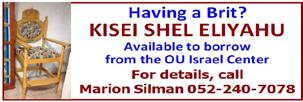

ANGLO- SAXON-JERUSALEM
ISRAEL’S
FOR SALE IN JERUSALEM:
IN QUIET & PASTORAL GERMAN COLONY
3-room apartment with private, beautiful & large courtyard, small original & intimate house, easily dividable into 2 apartments: 2-room + studio apartment (ideal for clinic), both with private entrance & own courtyard, full privacy & quiet.
Near synagogues, parks, Jerusalem’s Nature Museum, Emek Refaim shops, cafes & more.
Exclusive! Moshe 053-6305725
BAKA (MORDECHAI HA YEHUDI ST.)
Beautiful 5.5-room garden apartment in the heart of Baka, an Arab-style house. Next to Derech Beit Lechem shops & restaurants. Private entrance, 152 sq meters, stunning large garden, lots of light.
Exclusive! Nava 053-6642512
YEMIN MOSHE
Unique picturesque home with views to the Old City. 174 sqm, 5.5 rooms, arched ceilings & windows. Separate entrance unit, close to parking, walking distance to the Old City, Mamila, major hotels.
Exclusive! Nava 053-6642512
3 Moshe Hess St., Jerusalem 0778038511

OU ISRAEL CENTER 27
LEADING REAL ESTATE NETWORK
donated by Marion & Michael Silman Ita Rochel 02-560-9125 Dr. Harry Weisman
Assist. Clinical Professor of Medicine, UCLA School of Medicine; Div. of Endocrinology & Metabolism Weight loss Consultation +972 53 472 2159 Author of The 18% Solution –Lose 18% of Your weight in 18 Weeks
Former
LIFE SETTLEMENTS
Do you have a life insurance policy you:
• No longer want?
• No longer need?
• Can no longer afford the premium?
• Could you use extra money instead of keeping your policy?
I can guarantee that if you qualify with the underwriting process I can get you more money than if you cash it in with the company.
Please contact Moshe Russell at: Buymypolicy32@gmail.com
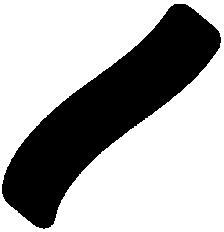

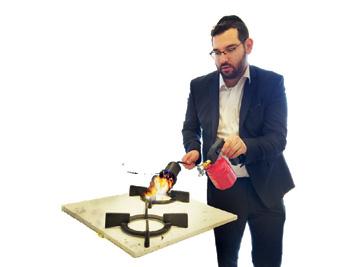
HELPING THE HOME FRONT, ASSISTING THE NEEDY
YESH EZRA – We are there when most needed!

THIS WEEK: In cooperation with Achim Beyachad
• Providing provisions for displaced families
• Assisting the poor for Pesach
• Acquiring special medicines and equipment for the sick
• Sending care packages to our brave soldiers
• Celebrating a Bar Mitzva with a needy family
• Advancing therapy for distressed individuals
• Visiting families whose fathers and sons are in the IDF
Pesach is around the corner. Please donate generously and further assist us in raising funds for our forthcoming social worker.
See our updated website: www.yeshezra.org INQUIRIES: Menachem Persoff - 050-570-1067
Bank Transfer:
Mercantile (17), Branch 642, A/C 79747843
Send Asmachta for tax receipt
Checks: “Yesh Ezra,” POB 31476, Romema, Jerusalem
Credit Card: Sara – 077-820-0196.
Sun/Mon/Wed (10:15am-2.45 pm)
28 TORAH TIDBITS 1562 / METZORA - PESACH - ACHREI MOT
| menpmp@gmail.com
!חמשו רשכ גח
Pesach & year round kitchen kashering 026431427


GERMAN COLONY
FOR RENT
Great location, duplex, 4.5 rooms, 109m, ground floor, large sukkah balcony, 40m, renovated, master bedroom, parking, exclusive, 12,000NIS/month
FOR SALE
RASKO, GOOD DEAL!
4 rooms + large separate unit, elevator, balcony, good shape, 3 directions, parking, quiet, 3,350,000 NIS
ARNONA
Nice 4 rooms, 90m, elevator, balcony with view, good shape, large living room, master bedroom, quiet, 2 parking spots, storageroom, 3,350,000 NIS
KIRYAT SHMUEL
Large 4 rooms, 96m, Shabbat elevator, balcony with view, good shape, large living room, master bedroom, parking, 3,950,000 NIS
28, Kovshei Katamon Street, Jerusalem
Tel: 02.5633008 - www.ben-zimra.com



29 1898 2024 WISHING ALL OF OUR PAST, PRESENT & FUTURE CUSTOMERS A חמשו רשכ גח גח

PROBING THE PROPHETS
BY RABBI NACHMAN (NEIL) WINKLER Faculty, OU Israel Center
After studying today’s haftarah reading we may realize that it has very little connection to the chag of Pesach – even though the decision of the ancient scholars to have this perek from Sefer Malachi (chp. 3) read on the Shabbat preceding Pesach was due to its proximity to the holiday! Additionally, this reading, as opposed to the previous special pre-Pesach parashot, readings, is NOT ordained by Tanna’im in the Mishna and this Shabbat carries with it no obligation to read a special Maftir. In fact, we do not find the custom of reading this haftarah mentioned in the Talmud at all, with the earliest source found for reading this haftarah, dates back to the 12th century!
So what is this all about?
It would seem clear that the Rabbis wished to connect this Shabbat with the Y’mot HaMashi’ach, the final, ultimate redemption, a theme that runs throughout the days of Pesach. The haftarah, therefore, is particularly fitting for that theme of a future redemption, as these are final prophetic
May the learning from this Torah Tidbits be in memory of our beloved father and patriarch
Harav Avraham Yeshayahu (Simon) Dolgin zt”l
Born - Shabbat Hagadol
Yahrzeit - 28 Nissan
Dolgin, Glasser, Weinstock & Slomiansky families
SHABBAT HAGADOL
words of Mal’achi, the last and latest navi in Tanach. In effect, therefore, what we read this Shabbat is Hashem’s last prophetic message to be relayed to the nation. And. were we to begin reading from the first verse of the chapter, we would understand that the prophet speaks of the day when Hashem will send his messenger to harbinger G-d’s arrival to judge the people, to purify and refine them in preparation for the Messianic era.
After promising G-d’s promise of future economic success and a “rebirth” of the land’s productivity, the prophet focuses upon the failure of the nation to worship G-d loyally. Malachi reminds the people of how faithFUL G-d had been to them and how faithLESS they had been to G-d, pointing out that the very survival of the tiny nation was proof of Hashem’s love! For that reason, he urges the nation to recognize Hashem’s kindnesses and remain faithful to Hashem. In effect, the navi’s message connects to Chag HaPesach and Israel’s exodus from Egypt. The demand Moshe’ made of Par’oh was to release the people from Egypt so that they could worship their Hashem. This was the ultimatum that brought them their freedom! And yet, bemoans the prophet, the nation had now forgotten their obligation to do just that.
As the Book of Mal’achi closes, the people are given a haunting message, one that we realize, only in hindsight, was meant as a the essential key for their survival in the
30 TORAH TIDBITS 1562 / METZORA - PESACH - ACHREI MOT
soon-to-be exile: “Zichru Torat Moshe Avdi…,” “Remember the Torah of Moshe my servant, and the laws and statutes which I commanded him.” With the eventual destruction of the Bet HaMikdash and the dispersion of the Jewish nation, there would seem to be nothing to keep them surviving as a united nation, a Jewish nation. They would not be remaining in their homeland, nor making pilgrimages to their Beit HaMikdash; there would be no Kohen Gadol and no Melech. For this reason, Malachi reminds the future generations that they indeed DO have something. They will have the Torah – and THAT would be the force that would keep them one and keep them as Jews.
Today, we look back at the truth of these words and realize that, because of our adherence to them, we can now look forward to the final verses of the haftarah, the sefer and the era of prophecy: “Behold I shall send you the prophet Eliyah before the arrival of the great and awesome day of Hashem.”

Original
550sqm plot
Building rights
Free-standing
Extremely quiet location
May we all merit to see that day when the Mashiach arrives that, we pray, will take place in the very near future. NORTH BAKA
Rabbi Winkler’s popular Jewish History lectures can be viewed by visiting the OU Israel Video archive: https://www.ouisrael.org/video-library


Fabulous Arab house
650sqm of living space
Building rights
45 sqm store front with business license
Garden parking

OU ISRAEL CENTER 31
BAKA
Arab/Templar house
For more details: Call Rivka +972544407610 rivkasch@gmail.com Lily Lewit +972505248930 lilylewit@gmail.com Capital Property Consultants and Lily Lewit present: 3 OUTSTANDING, EXCLUSIVE JERUSALEM PROPERTIES FOR SALE
mansion
sqm recently built
Bedrooms
Bathrooms
street off Emek Refaim
private garden LILY LEWIT ן”לדנ ץועייו ךווית טיול יליל property consultants A R E Y O U A D D I C T E D T O S U G A R ? Get free from food obsession Improve metabolic health Lose weight without hunger Tailored to frum lifestyle Z i p p i L i v n e h Nurse, Certified Food Addiction Counselor i n f o @ z l i v n e h . c o m 0 5 5 - 6 6 4 4 8 5 4 If yes, another diet is NOT the solution, THIS PROGRAM IS! S U G A R - F R E E R E C O V E R Y
GERMAN COLONY Superb
570
11
8
Quiet
400sqm




Don't let them wither, They deserve to blossom Come disCover our luxury dayCare for religious people CopINg WITH alzHeimer's disease & demeNTia Limited time offer! One week free trial without obligation We beleive every person desrves to live with Kavod 054.666.3170 rutiwbraincare@gmail.com recreational activities Multi lingual HigH standard Family Support Cognitive Training Mehadrin Meals Flexible Schechuling Subject to the regulations. EOE ד"סב
been memorialized in a popular song, "An eternal people does not fear the long and arduous path."
Doris Weinberger a"h
Max Weinberger z”l
Patience is necessary for those who follow Isaac's way. But a wise woman taught us that patience is but another name for hope. That woman was Jane Austen, who put these words into the mouth of one of the characters in her great novel, Sense and Sensibility: "Know your own happiness. You want nothing but patience—or give it a more fascinating name: call it hope."
Greatly missed by their children, grandchildren and great grandchildren
Rav Aryeh and Dvora Weinberger
Bernie and Leah Weinberger
Menachem and Hannah Katten
052-385-9944
In observance of the Shloshim of our friend
Yehuda Leib Berren z"l
Rav Menachem Weinberg will give a shiur in his memory "Heroic Joy"
Monday evening, 23 November/ 8 Kislev 7:30pm
Zoom Meeting: 853 8980 1519
Password: Yehuda shmuelnathan4@gmail.com
Hachnassat Kalla - YAD GITTEL
Get your trousseau (nedunya) at COST PRICE
For more details call 0523882751 or Sonia 0528066664
yadgitteltrudy@gmail.com

1unitravel.brokersnexus.com
1UniSim - Sims for USA and Worldwide
Starting at $40 sales@1unisim.com
Call 077-400-3199 or USA 718-715-0001

OU ISRAEL CENTER 33
Flying Soon? Travel with Confidence
1UniTravel - Medical Insurance at great prices Choose from multiple options
EX-FLORIDIANS
OU ISRAEL CENTER 15
Listen to "Shalom South Florida" every Sunday 16:30-18:00 on www.ShalomSouthFlorida.com
SEALING SERVICES
• 054-499-9043
נ
על
be in loving memory and
"
our dear parents whose yahrtzeits are in Kislev
תב האל הרובד
ולסכ 'ד -ה"ע המלש לאקזחי
ז"כ -ל"ז בד ןב ךלמילא
ולסכ
FOR SALE: IN ARNONA
building, Garden apartment, (3 years), 123 SQm, 35 sqm basement, 27 SqM garden, 6.4 million Shekel
Glatzer
Real Estate
New
Nahum
Gilinski
0507225694
 RABBI REUVEN TRADBURKS RCA ISRAEL REGION
RABBI REUVEN TRADBURKS RCA ISRAEL REGION
1ST DAY PESACH FROM PARSHAT BO
EXODUS 12:21-51
The Torah reading is the description of the night of the 15th of Nissan, the night of the Exodus from Egypt. The people place the blood of the Pesach on their doorposts, consuming it with expectation. The first-born Egyptians die at midnight. Paro orders the Jewish people to leave. They travel into the wilderness, after a sojourn of 430 years on the night so anticipated.
This Torah reading is brief but dramatic. It is the moment of the Exodus. The abruptness of the Exodus is emphasized – that very night. Revolutions take time. Uprisings have trajectories. Although the 10 plagues led to this moment, the abruptness, the dramatic and total reversal of fortune, from slavery to freedom in a heartbeat – this haste is a signature of Divine involvement. Hence, the haste of Matza – it is the holiday of dramatic and total change of destiny, at the snap of a finger.
But at the same time, the Jews in Egypt celebrated their Exodus – before it happened. They took the lamb a few days before. Then offered it on the 14th of Nissan. They celebrated that night with matzah and consuming the Pesach, shoes on, walking stick at the ready. In spite of this anticipation, we celebrate the abruptness of the redemption, the speed and the drama of slavery to freedom at the drop of a hat.
PESACH



Anticipation tempers the shock. But when the moment finally comes it is still wondrous. We can know something is about to happen while still being overwhelmed by the moment itself. We experience this on the other extreme of emotion, in death. We can know the end is near, but the moment of death remains searing in its pain. Here, we know the end of slavery is near, but the redemption nonetheless is shocking.
7TH DAY PESACH FROM PARSHAT BESHALACH
EXODUS 13:17–15:26
We read the story that occurred on the 7th day after leaving Egypt, the splitting of the Sea. The crossing of the sea closed the book on the sojourn in Egypt. Exodus is now complete. The song of Az Yashir is sung by Moshe and all the people upon this full redemption.
The song at the Sea creates a religious paradigm; redemption, salvation demands a human response of appreciation and song. In halachic lingo – redemption is a mechayev – it demands a religious response. And that response is song. When He pulls us from the dust, we sing. We, the privileged, blessed ones who dwell in Jerusalem, we too are a generation who have seen redemption. Our redemption too demands a human response by us of song, at the good fortune of our lot.
34 TORAH TIDBITS 1562 / METZORA - PESACH - ACHREI MOT
ALIYA-BY-ALIYA SEDRA SUMMARY
Happy Passover From Mizrahi-Tefahot


Mizrahi-Tefahot Bank offers a team of banking experts who understand your culture and language. We provide you with personal and professional services for all your financial needs.
Come and join us.

For further information, contact:
Jonathan Gross
+972-52-569-0674 | grossj@umtb.co.il
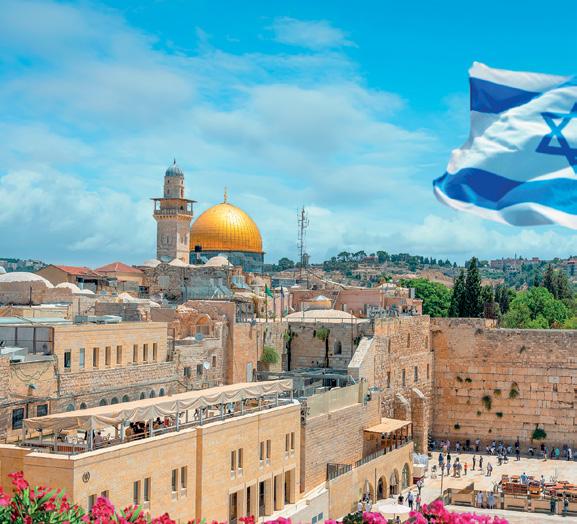
OU ISRAEL CENTER 35
People first and foremost

Pesach Laws & Customs
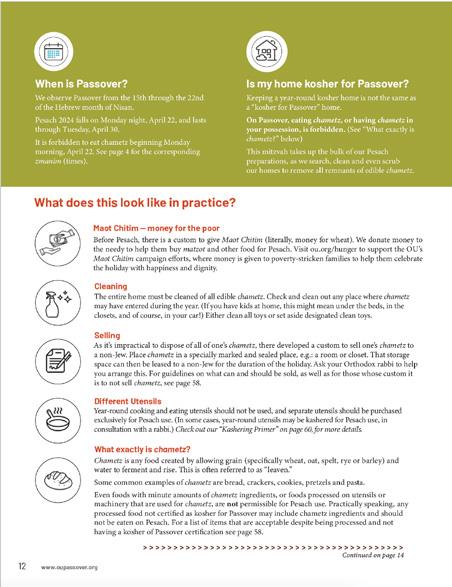
When is Pesach?
We observe Pesach from the 15th through the 22nd of the Hebrew month of Nisan.
Pesach 2024 falls on Monday night, April 22, and lasts through Monday, April 29.
It is forbidden to eat chametz beginning Monday morning, April 22.

Is my home kosher for Pesach?
Keeping a year-round kosher home is not the same as a “kosher for Pesach” home.
On Pesach, eating chametz, or having chametz in your possession, is forbidden. (See “What exactly is chametz?” below)
This mitzvah takes up the bulk of our Pesach preparations, as we search, clean and even scrub our homes to remove all remnants of edible chametz.
What does this look like in practice?
Maot Chitim - money for the poor
Before Pesach, there is a custom to give Maot Chitim (literally, money for wheat). We donate money to the needy to help them buy matzot and other food for Pesach. Visit ou.org/hunger to support the OU’s Maot Chitim campaign efforts, where money is given to poverty-stricken families to help them celebrate the holiday with happiness and dignity.
Cleaning
The entire home must be cleaned of all edible chametz. Check and clean out any place where chametz may have entered during the year. (If you have kids at home, this might mean under the beds, in the closets, and of course, in your car!) Either clean all toys or set aside designated clean toys.
Selling
As it’s impractical to dispose of all of one’s chametz,
there developed a custom to sell one’s chametz to a non-Jew. Place chametz in a specially marked and sealed place, e.g.: a room or closet. That storage space can then be leased to a non-Jew for the duration of the holiday. Ask your Orthodox rabbi to help you arrange this.
Different Utensils
Year-round cooking and eating utensils should not be used, and separate utensils should be purchased exclusively for Pesach use. (In some cases, year-round utensils may be kashered for Pesach use, in consultation with a rabbi.)
What exactly is chametz?
Chametz is any food created by allowing grain (specifically wheat, oat, spelt, rye or barley) and water to ferment and rise. This is often referred to as “leaven.” Some common examples of chametz are bread, crackers, cookies, pretzels and pasta. Even foods with minute amounts of chametz ingredients, or foods processed on utensils or machinery that are used for chametz, are not permissible for Pesach use. Practically speaking, any processed food not certified as kosher for Pesach may include chametz ingredients and should not be eaten on Pesach.
The busy days before Pesach - special mitzvot and customs
Have you combed every inch of your home for wayward chametz, turned over your kitchen into an aluminum-foil-covered spaceship, and searched all corners? You’re ready for the next step!
Bedikat Chametz
Bedikat Chametz means the “search for chametz.”
Using a candle or flashlight we comb our homes for any chametz that we might have overlooked. This year, Bedikat Chametz will take place on Sunday evening, April 21, after dark. Kol chamirah should be recited. Any chametz found is set aside to be burned the next morning.
36 TORAH TIDBITS 1562 / METZORA - PESACH - ACHREI MOT
Burning the Chametz
On the morning of Erev Pesach, we burn the chametz. Kol chamirah should be recited.
The Fast of the Firstborns
Erev Pesach - Monday, April 22, is a fast day for firstborn males (Ta’anit Bechorim). During the tenth plague, all the firstborns in Egypt died. G-d passed over the homes of the Jews and spared their firstborns. To commemorate this, firstborns fast on Erev Pesach. Many congregations conduct a siyum. (The conclusion of a portion of Torah learning is a celebratory occasion that allows for a seudat mitzvah, a ritual feast). A siyum exempts firstborn males from fasting altogether.
Pesach is here
Not all the days of Pesach are the same or have the same laws.
The first day and the last day
The first day (sundown Monday night, April 22, through nightfall Tuesday, April 23) and the last day (sundown Sunday night, April 28, through nightfall Monday, April 29) are observed with Shabbat restrictions on work and creative activity.The exceptions are carrying and the use of fire, which are both permitted (in certain ways) if needed for cooking and food preparation.
Chol Ha’moed - The Intermediate Days
The intermediate days of Pesach (Tuesday night, April 23 –Sunday, April 28) are considered “semi-festive.” Although they are the “weekdays” of the holiday, not all work, activities and crafts are permitted. The laws of Chol Ha’moed are pretty nuanced. An Orthodox rabbi will be able to give you detailed guidance. Note that of course for Shabbat, April 27, despite falling during the Chol Ha’Mmoed period, the usual Shabbat restrictions apply.
OU ISRAEL CENTER 37 SHVII SHEL PESACH SHABBAT CHOL HAMOED LEIL HASEDER HAVDALA CANDLES HAVDALA EARLY CANDLES HAVDALA CANDLES 7:56 6:41 7:56 5:53 6:40 7:52 6:37 Yerushalayim/Maale Adumim 7:58 6:59 7:58 5:55 6:58 7:54 6:55 Aza Area (Netivot, Sderot et al) 7:56 6:59 7:56 5:54 6:59 7:52 6:57 Beit Shemesh/RBS 7:57 6:57 7:56 5:53 6:56 7:52 6:53 Alon Shvut 7:59 6:59 7:58 5:55 6:57 7:54 6:55 Raanana/Tel Mond/Herzliya/K.Saba 7:57 6:58 7:57 5:54 6:56 7:53 6:54 Modiin/Chashmonaim 7:59 6:59 7:58 5:55 6:58 7:54 6:55 Netanya 7:57 6:58 7:56 5:54 6:56 7:52 6:54 Be’er Sheva 7:58 6:59 7:57 5:55 6:57 7:53 6:54 Rehovot 7:58 6:41 7:57 5:55 6:40 7:53 6:37 Petach Tikva 7:58 6:58 7:57 5:54 6:56 7:53 6:54 Ginot Shomron 7:59 6:49 7:59 5:55 6:48 7:54 6:45 Haifa / Zichron 7:57 6:57 7:56 5:53 6:56 7:52 6:53 Gush Shiloh 7:59 6:59 7:58 5:55 6:58 7:54 6:55 Tel Aviv / Givat Shmuel 7:57 7:01 7:56 5:53 7:00 7:52 6:57 Givat Zeev 7:56 6:57 7:56 5:53 6:56 7:52 6:53 Chevron / Kiryat Arba 7:59 6:59 7:58 5:55 6:58 7:54 6:55 Ashkelon 7:58 6:58 7:57 5:55 6:57 7:53 6:54 Yad Binyamin 7:57 6:52 7:57 5:53 6:50 7:53 6:47 Tzfat / Bikat HaYarden 7:57 6:57 7:56 5:53 6:55 7:52 6:52 Golan 7:59 6:58 7:59 5:55 6:57 7:54 6:54 Nahariya/Maalot 7:58 6:58 7:57 5:54 6:56 7:53 6:53 Afula Rabbeinu
• Shabbat Chol Hamoed 8:33
• Shvii Shel Pesach 8:34
Tam (Jerusalem): Leil HaSeder 8:30 PM
PM
PM
Please see the OU Magazine for more Pesach details and halachot See: www.ouisrael.org/pesach-guide-5784/

RABBI SHALOM ROSNER
Thoughts on Hallel
We recite Hallel throughout Pesach. Hallel is even included in the Haggada and recited at the Seder. We will share several ideas on Hallel (see also Shalom Rav Haggada, published by Koren).
A BREAK IN THE ACTION?
The Hallel that is recited at the Seder is a bit strange. First, we interrupt the recitation of Hallel and break for a meal. Second, we do not recite a bracha over Hallel.
Perhaps we can explain this phenomenon based on a suggestion by Rav Hai Gaon, quoted in the Ran at the end of Massechet Pesahim. He explains that this Hallel is classified as song, as shira, rather than as a reading, a kriya. What does Rav Hai Gaon mean by this?
Rav Yosef Dov Soloveitchik explains that after spending two hours discussing the exile and Exodus, we should truly feel an outburst
PESACH



of emotion, the desire for spontaneous praise.
Thus, if we were to recite a beracha, it would diminish the authenticity of our passion. We are praising God at this time because we want to, not because we are commanded. That is why we can interrupt our outpouring of praise, and that is also why we do not recite a blessing over this praise. To do so would dilute its personal authenticity and spontaneity.
SHIRA CHADASHA
When we recite Hallel at the Seder, we introduce it with the words, venomar lefanav shira chadasha, we will sing a new song before You. With that introduction, one would expect to use new and different words that are uttered only at the Seder. Yet we then reiterate the same Hallel that we recite on holidays and on Rosh Chodesh. So why do we refer to it as a new song, a shira chadasha?
Rabbi Lamm (The Royal Table) explains that in Judaism, we take the old and instill it with vigor and newness. The same religion that has been practiced for centuries does not go out of vogue. It crosses the chasm of time.


It is amazing how each year we once again read the same Torah, and yet we uncover new insights on each parsha. When we recite Hallel at the Seder, it may be the same words that have been sung over thousands of years, but it is not outdated. Its words are applicable today and express our appreciation to the Almighty. Hallel and Judaism maintain their freshness throughout the generations.
HALLELU ET HASHEM KOL GOYIM
A priest once asked Rav Chaim of Volozhin
38 TORAH TIDBITS 1562 / METZORA - PESACH - ACHREI MOT
Rav Kehilla, Nofei HaShemesh Maggid Shiur, Daf Yomi, OU.org Senior Ra"M, Kerem B'Yavneh
Religious Caregiver Car owner
a question regarding a pasuk in Tehillim that we recite in Hallel. It says in Tehillim (117), Hallelu et Hashem kol goyim, shabehuhu kol ha’umim, all the nations of the world will praise God. Why? Ki gavar aleinu hasdo, because God showered us Jews with compassion. The priest did not comprehend why gentiles would praise God for showing compassion to the Jews.
Rav Chaim Volozhin explained to the priest that we are not cognizant of all the evil schemes that you plotted against us. Only you know exactly what you have planned for us, and Hashem acts to protect us. That is to say, you may plan to blow up a bridge and destroy a caravan of Jews, but Hashem causes your explosive device to jam, and the Jewish caravan is saved. Only you are aware of this compassionate act of the Almighty, and therefore, only you can praise Him for His chesed toward us.
Even in those generations where there appears to be tranquility, the other nations either plot unsuccessfully against us or seek to annihilate us not through physical means, but by doing all they can to degrade us spiritually. They recognize how God protects us even when it is not apparent to us.
ANA HASHEM KI ANI AVDECHA
A story is told that the Lev Simha, one of the Gerer Rebbeim, told his chasidim to have special kavana when reciting the words ana Hashem during Hallel. There was an argument among the chasidim as to whether the Rebbe was referring to ana Hashem hoshia na, or ana Hashem hatzlicha na. The Rebbe’s son approached Rav Simha to resolve the debate among the chasidim.
The Rebbe responded that it was neither. He was referring to ana Hashem ki ani avdecha, please Hashem, for I am your servant. This
is the key to being a Jew: understanding that we are here to serve Hashem. Seder night in particular, we should state this verse with special concentration, special kavana, as we are proclaiming that we went from being servants of Pharaoh to being avdei Hashem!
ANA HASHEM HOSHIA NA
As we recite Hallel and feel like we are on top of the world, it seems a bit strange that we are also asking for a yeshua, for salvation. Similarly, on Sukkot, we perform Hoshanot at a time of tremendous celebration. We cry out hoshia na! It would seem more appropriate to conduct Hoshanot on Rosh Hashana or Yom Kippur, rather than on Sukkot which is zman simchatenu.
The Shemen Hatov explains that calling out to Hashem should not be limited to an eit tzara, to challenging times. We should turn to Hashem even at times of celebration, during Hallel and on Sukkot, expressing that we know Hashem is in charge, no matter what we are experiencing.
In addition, twice in Tanakh the statement yehi shem Hashem mevorach appears. Once in Tehillim (113:2) which is cited in Hallel and the other at the beginning of Iyov (1:21) when it states Hashem natan veHashem lakach, yehi shem Hashem mevorach. Thus, we recognize and turn to Hashem in times of difficulty, as well as in times of celebration.
Fantastic Rechavia Sale!
6 rooms on one level, plus 30m balconies (succah), parking, storeroom, exit to garden, potential to extend to 190m!
8.5 mil NIS
Hellen


OU ISRAEL CENTER 39
Duman Realty
www.hellenrealestate.com
054-462-9963 |
In Memorium
תמשנ יוליעל
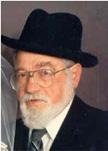
Rav Avraham Yeshayahu (Simon) Dolgin zt”l
Rabbi of Beth Jacob Congregation, Beverly Hills and Ramot Eshkol, Yerushalayim, Director General of the Ministry of Religious Affairs, Chairman of World Mizrachi and of Ariel Institutes, Yakir Yerushalayim on the occasion of his 20th yahrzeit, 28 Nissan
Physical and Spiritual Protection
Speak unto the Children of Israel and say unto them: I am the Lord your G-d. As the deeds of the land of Egypt wherein you dwelt you shall not do, and as the deeds of the land of Canaan where I bring you, you shall not do, and in their statutes you shall not walk. My ordinances shall you do and My statutes shall you keep to walk therein, I am the Lord your G-d. (Vayikra 18:2-4, Acharei Mot)
“As the deeds of the land of Egypt.” Rabbi Eliezer interpreted the verse (Song of Songs 2:2) “As a rose among the thorns” in the context of the deliverance from Egypt. Just as the rose is difficult to pick, so Israel was difficult to deliver…These (Israelites) were uncircumcised and these (Egyptians) were uncircumcised… Therefore, the measure of justice would not have allowed Israel to have been delivered from Egypt. (Vayikrah Rabbah 23:2)
The Jewish People throughout history have had to defend themselves from external enemies. This self-fortification, however, was spiritual no less than physical. When we defend our lives and property we maintain our physical existence, but when we protect our spiritual identity through Torah, we safeguard the purpose and meaning of that very existence.
The Children of Israel had to shield themselves not only from the immoral influences of the Egyptian civilization
that they left behind, but also from the atrocities of the Canaanites who populated the land for which they were destined. And how were they to protect themselves? “My ordinances shall you do and My statutes shall you keep to walk therein, I am the Lord your G-d.”
By having our own set of ordinances and statutes, our own guidelines for moral behavior, truth, and justice, we can become “a rose among the thorns.” Even if our deliverance comes amid great difficulty and painful trials, we will achieve redemption, both in body and in spirit.
As we seek out solutions to life’s various problems, be they related to our external or internal security, we must realize that not by physical strength alone will we overcome the threats that we face. The Torah instructs us that we not do as the nations of the world do, and that we not adopt their ordinances, statutes or standards of conduct. In this way G-d’s promise to us (Vayikrah 20:26), “And you shall be holy unto Me, for I the Lord am holy and I have set you apart from the peoples that you should be mine,” will be fulfilled.
From Rabbi Dolgin’s Divrei IS”H: A Selection of Sermons and Thoughts on the Weekly Torah Portion. The Hebrew and English editions of Divrei IS”H (in PDF format), can be requested at mdolgin@netvision.net.il
40 TORAH TIDBITS 1562 / METZORA - PESACH - ACHREI MOT

During times of war, families of soldiers face immense challenges. The devoted wives of these soldiers courageously care for their children while offering unwavering support for their husbands on the front lines. Your generous support can be their lifeline, providing strength and stability in these difficult times.
Donate today and be a beacon of hope for these families in need to support a couple for the entire Passover holiday in 10 payments, totaling 1500 NIS 150 NIS to support a family for the entire Passover holiday in 10 payments, totaling 3600 NIS 360 NIS
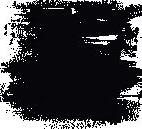
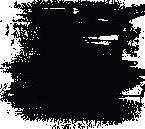
Do you know soldiers' wives? Send us their details 050-687-2664, and we'll assist them too

Donations are tax-deductible in IL, EU and US. KH Certified by the government To donate via Bit, send a message 0525-100-90
To donate on dollars visit WWW.HATZADIK.ORG

OU ISRAEL CENTER 41
US or EU .תיתדה תונויצהמ םיישקב תוחפשמב תכמותו 2002 תנשמ תלעופ ןרקה :םינברה תצלמהב תלעופ ןרקה Rav Herschel Schachter • Rav Benjamin Yudin ל"צז תרופ ןנח ברה • ל"צז ןמקורד םייח ברה • ל"צז והילא יכדרמ ברה ןואגה ןרמ • א"טילש אריפש בקעי ברה • א"טילש רמע המלש ברה ןואגה ישארה ברה • א"טילש ןטק לאננח ברה תושארב רודה תבשחמ תעונת תתומע י״ע קידצה ןרק ל״צזןיול הירא יברש״ע
A beautiful gift will arrive at your home in ISRAEL,
Scan for
donation
Everything B"H
Empower the families of our brave soldiers!
PESACH
Existential Egg
The egg sits comfortably on the upper left side of the Seder plate, a representation of the korban Chagigah, the festival sacrifice offered in the days of the Temple. It carries deep symbolism and conveys a significant message to us on the elevated evening of the Pesach Seder.
In his commentary on the Haggadah, Rav Pincus discusses the profound meaning of the elements found on the Seder plate. He explains that each element reflects different sfirot; the shank bone on the upper right side represents chesed, expansiveness and spirituality, expressed through the korban Pesach. The egg, on the upper left side, represents gevurah, containment and limitation. The egg’s round shape expresses the idea that everything physical is inherently restricted by its form. The meat of the korban Chagigah was eaten, representing Man’s physical nature. Perhaps then, the egg reminds us of the constraints of our physical world, and that infinite, boundless love and kindness really only exist in the spiritual dimension.
Rav Salomon zt”l, (Matnat Chayim), contemplates the symbolism of the karpas eaten at the beginning of the Seder. He sees it as a reminder of how Am Yisrael landed in Egypt. The Torah calls Yosef’s special coat a



ketonet passim, which Rashi (Shemot 37:3), translates as karpas, a fabric made of fine, soft wool. The Egyptian exile began with the brothers convincing Yaakov Avinu that Yosef had been devoured by a wild animal with dipping Yosef’s coat into blood. The Exodus from Egypt commenced with a second dipping of blood, that of the hyssop into the blood of the korban Pesach. It is the egg, says Rav Salomon, that intimates the secret of Redemption, unity and connection with one another. It is no coincidence that each year both Seder night and the eve of Tisha B’Av fall out on the same day of the week. If we wish to avoid dipping an egg into ashes to commemorate the destruction of the Beit Hamikdash, we must develop ahavat chinam, love for our brothers and sisters, to merit Geulah.
At the Seder we not only remember the past, but we also yearn for a more complete future. Indeed, each of us can experience a personal redemption on this night. In a fascinating commentary, Targum Yonatan teaches that on the original night of Pesach in Mitzrayim, the Jews were transported on eagle’s wings to Har Habayit, the site of the holy Temple, to eat the korban Pesach and were delivered back to Mitzrayim that same night. Rav Wolfson maintains that this happens to all of us on Seder night. We too, in a sense, are transported to eat the afikoman in the makom haMikdash. He notes that although our bodies may not feel this happening, our souls do. We are profoundly affected by the holiness of this night and, in the deepest part
42 TORAH TIDBITS 1562 / METZORA - PESACH - ACHREI MOT REBBETZIN SHIRA
Faculty, OU Israel Center
SMILES
of ourselves, we become transformed.
Rav Laibele Eiger zt”l quotes the Ishbitzer Rebbe, of blessed memory, who teaches that this is the egg’s message. One cannot tell whether an egg is fertilized or not simply by looking at it from the outside. Only with time can he see this when it hatches. Likewise, we may not see any difference in ourselves after Seder night, however over time, throughout Sefirat Haomer, we will be able to notice the contrast.
Our simple egg therefore represents the past, marked by divisiveness in a powerful way. Yet it also reminds us how we can choose to change and be part of the redemptive process as we journey toward an expanded future. Let us take the lessons of galut and use them to propel us into a magnificent geulah when we will once again eat the festive chagigah offering as a united people in G-d’s rightful home.
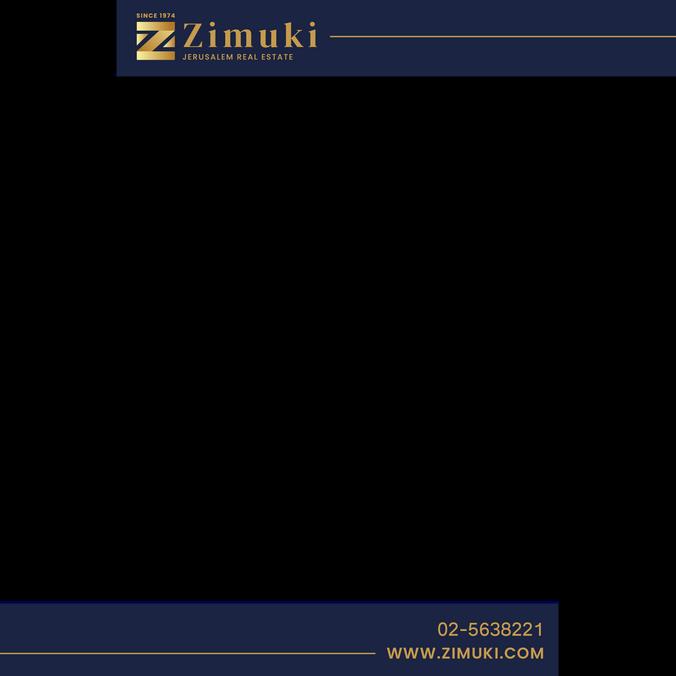

105 sqm, 3-beds duplex + 25 sqm private garden. Storage + parking. Direct access to buildings pool. 4,780.000 ₪
**SALE! BEST INVESTMENT! Old Katamon, Bruryah St. 3.5 beds, 85 sqm + 30 sqm balconies, 1st floor. The property in an advanced Tama procss for a 4 bed apt. Asking price: 4,150,000 ₪
**SALE! PRICE DROP! Rechavia, Diskin St. 130 sqm. 3 beds + 2.5 baths + private parking. Facing city view. Needs renovation. 5,600,000 ₪
**Needed for purchase! Apartments of 120 sqm and above, for serious customers, in Talbiyeh/City Center with good buying conditions. We appreciate your offers.
Ruth Abrahami - 054-8070677

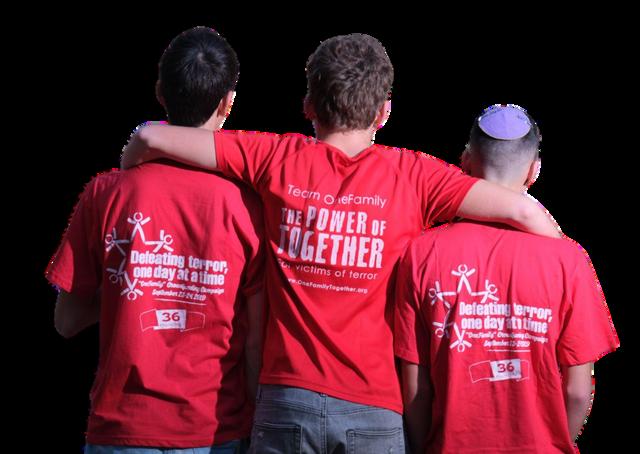
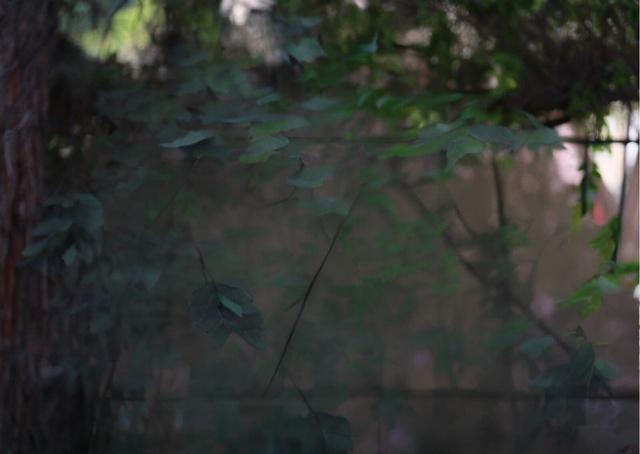
OU ISRAEL CENTER 43
W L O N E F A M I L Y P I C K S U P T H E P I E C E S P r o v i d i n g S u p p o r t t o 5 0 0 T e r r o r V i c t i m F a m i l i e s
is the circle of people we know we can count on to be there when we need it most.
are
heal, recover, renew their
on life, and flourish.
– helping “Our Collective Family” achieve emotional and economic independence W W W . O N E F A M I L Y T O G E T H E R . O R G I N F O @ O N E F A M I L Y F U N D . O R G
Family
We
a support system of people and resources to empower terror victims to
lease
OneFamily

Executive Director, Camp HASC
Executive Director, Camp HASC
Author of Baderech: Along the Path of Teshuva (Mosaica 2021)
Author of Baderech: Along the Path of Teshuva (Mosaica 2021)
MISCHEL
Pre-Pesach: On the Cusp
The dynamic and fiery first chaplain and Chief Rabbi of the fledgling Israel Defense Forces, Rav Shlomo Goren, almost single-handedly built up the religious infrastructure of Tzahal, establishing the army’s kashrus, shmiras Shabbos and other basic halachic standards. At age 12, he had become the youngest talmid of Yeshivas Chevron, was immediately identified as a Torah prodigy, and received semicha at 17. From the time he volunteered with the Haganah in 1936, this leader of great passion and creativity, participated and shaped many seminal moments in modern Jewish history, including no less than the Liberation of Jerusalem. Rav Goren’s autobiography, With Might and Strength, describes the desperate intensity gripping Eretz Yisrael Erev Pesach of 1948.
Yerushalayim had been under Arab siege for months; supplies were short, rations were at starvation levels and Yom Tov was rapidly approaching. Though the British military governor did not have ownership of the matzah, he did have authority over its distribution, and decided to allocate the scant supply of matzah to the city’s most ‘religious’ civilians; there was nowhere near the amount necessary to provide for all. After verifying that families
PESACH



who registered to receive matzah had enough to fulfill their primary obligation, Rav Goren commandeered military trucks in the middle of the night, broke into the warehouse, and requisitioned the remaining boxes:
“On the cusp of Redemption, how could it be that our holy chayalim, warriors in the first Jewish army in two thousand years, go without matzah?”
As Yeshivah students spread throughout the frontlines to spend Leil haSeder together with the soldiers under fire, Rav Goren shared a timeless message with those assembled at Schneller Army Base.
“After millenia of physical and spiritual slavery, we have merited to celebrate the Chag haCheirut, the Festival of Freedom. And just as when we left Mitzrayim we saw miracles, so too we will merit to see great nisim in the Holy Land. With great bravery and self sacrifice we shall raise high the flag of freedom. Let us envision the Complete Redemption and celebrate Chag Pesach as free men.”
Ribbon Kol haOlamim is a deeply moving tefillah often appearing between Shalom Aleichem and Eishes Chayil. This traditional Leil Shabbos prayer expresses an array of uplifting bakashos, capturing the faith, hope and yearning that a Yid uncovers in the sacred moments preceding Kiddush. In one line, we ask in a unique way for Hashem’s compassion: ינלאגל ,יתולגב דוע
, “May You further show me mercy and deliver
44 TORAH TIDBITS 1562 / METZORA - PESACH - ACHREI MOT
RABBI JUDAH
JUDAH MISCHEL
RABBI
ינמחרתש
me in my exile, to redeem me.” It seems that rather than asking to be saved from our galus, we ask to be delivered within it. The great Reb Shalom Rockeach, the first Belzer Rebbe known as the Sar Shalom zy’a explained that there are three expressions of galus, each one more harsh than the preceding. One is a physical exile among non-Jews, another is a form of exile among fellow Jews and the third is an experience of being in an internal galus, exiled within oneself.
When we beseech the Ribono Shel Olam יתולגב דוע ינמחרתש we are referring to exile consciousness which is self-induced; we are asking to be saved from ourselves. In other words, it is easier to take a Jew out of galus, than to take galus out of a Jew…
…םירצמ
I will bring you out from under the sivlos, ‘labors’, of Egypt…” (Shemos, 6:6)
Chidushei haRim interprets (Vaeira, 5636) the word sivlos as savlanus, patience. Hashem took us out from being savel Mitzrayim — ‘having patience’ for Mitzrayim. That is, He saved us from the sad state of ‘tolerating’ our exile, accepting our slavery, making peace with where we were. The greatest impediment to freedom is complacent acceptance of stuckness. Without a will to be liberated, we are at the mercy of the gravitational pull to remain mired in where we currently are, where we don’t really want to be.
Rabbi Abraham Joshua Heschel explored the insecurity of being free, and the fear of the unknown versus the safety and stability and even suffering of staying stuck. The greatness of our salvation is that it did not just take us out of Egypt; it took Egypt, the meitzarim, the slave mentality and inner
*Duplex! 5 bedrooms, 25 sqm kitchen, succah, shabbat elevator, 2 parking, storage.

*New 228 sqm duplex penthouse, 30 sqm succah, Shabbat elevator, parking, view
TALBIEH - On Private Land
*Exceptional boutique building with 3 apartments on 900 sqm lot
*New 250 sqm + 200 sqm garden
NACHLAOT
2 rms, priv entr, storage room, NIS 2,190,000
CITY CENTER
2 two room apartments, renovated. A/C. Can be combined!
OLD KATAMON

160 sqm 4 bdrms, garden, storage, parking
HAR NOF
*Centrally Located –
10 room duplex with 400 sqm garden
(room for a pool), excellent condition

*Shlav B 4 bedrooms including MB ensuite, succah, low floor, storage room, view, needs renovation, lots of Potential
MEKOR CHAIM - New Project
126 sqm, spacious 4 bdrms, succah, 3 exposures, 2 parking, storage. Close to Baka & G. Colony
FOR MANY MORE PROPERTIES:
02-651-4030
eiferman2012@gmail.com
OU ISRAEL CENTER 45
תֹ לבס תחתמ םכֶתא יתאצוהו
Eiferman Properties Ltd. www.eifermanrealty.com
PROJECTS -
Opportunities
NEW
Excellent
CHESSED/RECHAVIA
Desirable Neighborhoods - Contact Us SHAAREI
FOR SALE - NEW LISTINGS
stuckness, out of us.
In The Shawshank Redemption, Morgan Freeman’s character “Red” has a monologue reflecting on the nature of long term imprisonment and the effect it has on a prisoner. “These walls are funny. First you hate ‘em, then you get used to ‘em. Enough time passes, it gets so you depend on ‘em. That’s ‘institutionalized’... they send you here for life and that’s exactly what they take — the part that counts, anyway.”
After millenia of physical and spiritual slavery, it seems that once again, we have settled for the status quo, accepting exile as an expected, tolerable, perhaps even respectable, condition. Chas v’Shalom! That is the bitter stuckness of conceptzia, a fossilized, detrimental state of self-imposed exile, detrimental galusdik group-think that has weakened and paralyzed Knesses Yisrael. We are a people of great faith and vision who yearn for victory and redemption! For far too long we have been entrapped in a defeatist mentality, blinded from seeing our collective spiritual and national potential and our own essential greatness.
And yet, we are living in extraordinary times, a הלודג הפוקת of great historical importance. An unwanted war has led to an awakening of authentic Jewish heroism, gevurah and sacrifice, an expression of deep and renewed faith, identity and holiness, of expanded consciousness and holy pride. There is an opportunity right now to break out of our passive acceptance of golus, and say, ‘Ad masai! How long do we need to push off becoming who we really are as a people? How long will we cower in the ‘safety’ of our self-induced exile?’ .לארשיד
.ןירוח
Now we are here, this coming year we will (all) be in the Land of Israel; this year we are slaves, this coming year we will be free people!
Wherever we will be celebrating Seder this year, may each of us raise high the flag of freedom and envision the המילשה הלואג תיתימאהו, the complete and true, internal and external, final redemption. May the great, redemptive days of Nissan free us from all of our self-limiting conseptziot, so that we may celebrate Chag Pesach as a free, independent holy nation in our Land!
The family of RABBI SHOLOM GOLD TZ"L
are collecting memories/stories /videos etc ..of their father.
Please email to: Goldofjerusalem@gmail.com

Tired of trying to figure out what all the bills are that keep coming in the mail? Do you struggle with getting people on the phone from the Iriyah? Chevrat Chashmal? And the list goes on…
Tackling Israeli bureaucracy is definitely a challenge! But with the help of ShefaAdmin Aids, life can be a lot easier…Get all your mail, bills and bureaucratic work handled headache free!
We are a team of Anglo Israelis that have mastered the art of navigating through the piles of mail on your table and getting things done ASAP!
Reach out today and eliminate another major source of needless stress!
P Phone number: Yossi - 0536237128
*We can provide legal services as well.
46 TORAH TIDBITS 1562 / METZORA - PESACH - ACHREI MOT
אעראב האבה הנשל
אתשה
,אכֶה
ינב האבה הנשל ,ידבע אתשה
ןירוח ינב האבה הנשל ד"סב


Cognitive decline?
places/names?
things?



Dr. Barry Dinner MBBCH, ABAARM is a highly experienced physician, certified by the American Academy of Anti-Aging Medicine, who offers a unique approach to anyone looking to prevent and treat Alzheimer’s disease, memory loss or cognitive decline. OTHER SPECIALTIES Cardiovascular • Stress Hormone • Gastrointestinal Ask us about our new super brain supplement ReMIND




OU ISRAEL CENTER 47
FOR A FREE DEMO CALL SCOOTER
YOU
02.622.8674 info@beyoungclinics.com
077-9562852
ARE
CONCERNED ABOUT... Alzheimer's? Dementia? Memory loss?
Forgetting
Losing
Functional Medicine Clinic VISIT OUR WEBSITE AT BEYOUNG.LIFE


Sign up for the OU daily sefirah reminder email @ www.ou.org/sefirah
Sefirah is the counting of seven complete weeks from the second evening of Pesach until Shavuot. The count, which takes place after night fall for the following day, is preceded by the blessing only if done in the evening and no days have been missed in the count.
Visit www.ou.org/sefirah to receive an email reminder to count each day. Emails are pre-programmed to go out on each of the 49 days of the Omer to help make sure you don’t forget to count!
NOTE: IF YOU FORGET TO COUNT AT NIGHT, YOU MAY COUNT ALL OF THE NEXT DAY – BUT WITHOUT A BLESSING YOU MAY RESUME COUNTING THE NEXT EVENING WITH A BLESSING.
www.ou.org/sefirah WED. EVENING APRIL 24 2 THURS. EVENING APRIL 25 3 FRI. EVENING APRIL 26 4 SAT. EVENING APRIL 27 5 SUN. EVENING APRIL 28 6 MON. EVENING APRIL 29 7 TUES. EVENING APRIL 30 8 WED. EVENING MAY 1 9 THURS. EVENING MAY 2 10 FRI. EVENING MAY 3 11 SAT. EVENING MAY 4 12 SUN. EVENING MAY 5 13 MON. EVENING MAY 6 14 TUES. EVENING MAY 7 15 WED. EVENING MAY 8 16 THURS. EVENING MAY 9 17 FRI. EVENING MAY 10 18 SAT. EVENING MAY 11 19 SUN. EVENING MAY 12 20 TUESDAY EVENING APRIL 23 1
SEFIRAT HAOMER 2024/5784


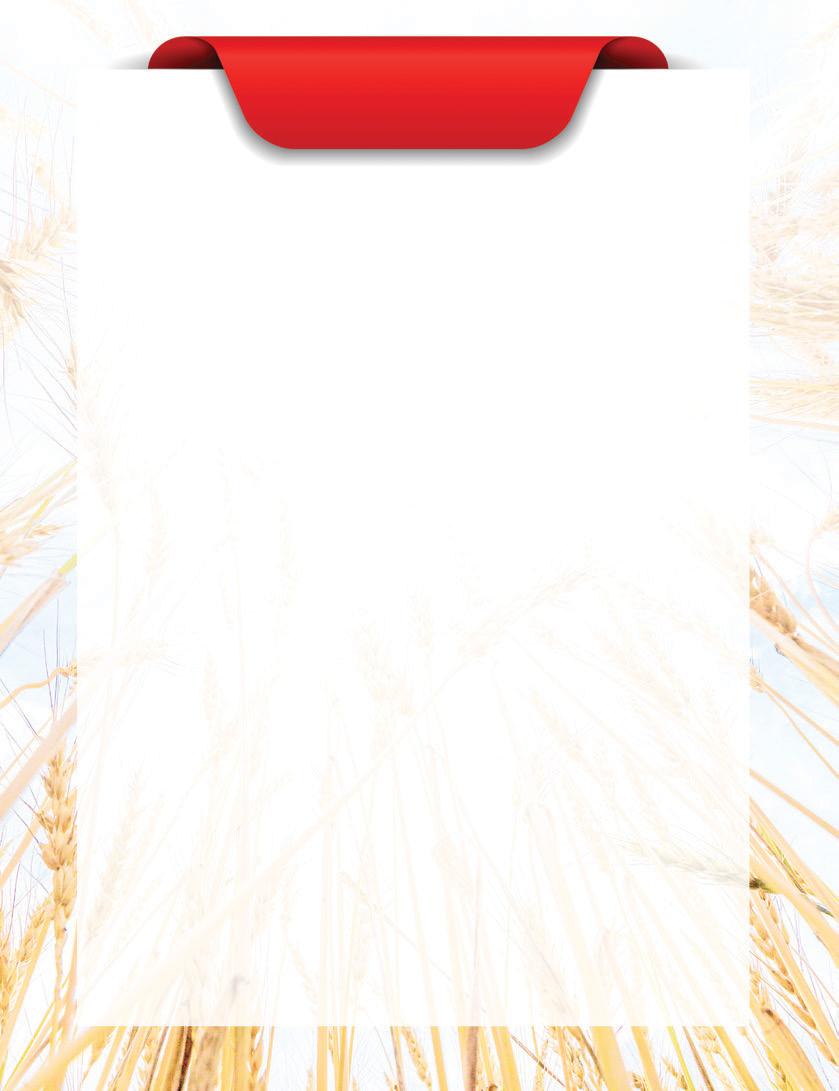













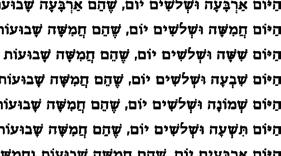






MON. EVENING MAY 13 21 TUES. EVENING MAY 14 22 WED. EVENING MAY 15 23 THURS. EVENING MAY 16 24 FRI. EVENING MAY 17 25 SAT. EVENING MAY 18 26 SUN. EVENING MAY 19 27 MON. EVENING MAY 20 28 TUES. EVENING MAY 21 29 WED. EVENING MAY 22 30 THURS. EVENING MAY 23 31 FRI. EVENING MAY 24 32 SAT. EVENING MAY 25 33 SUN. EVENING MAY 26 34 MON. EVENING MAY 27 35 TUES. EVENING MAY 28 36 WED. EVENING MAY 29 37 THURS. EVENING MAY 30 38 FRI. EVENING MAY 31 39 SAT. EVENING JUNE 1 40 SUN. EVENING JUNE 2 41 MON. EVENING JUNE 3 42 TUES. EVENING JUNE 4 43 WED. EVENING JUNE 5 44 THURS. EVENING JUNE 6 45 FRI. EVENING JUNE 7 46 SAT. EVENING JUNE 8 47 SUN. EVENING JUNE 9 48 MON. EVENING JUNE 10 49
www.ou.org/sefirah



50 TORAH TIDBITS 1562 / METZORA - PESACH - ACHREI MOT
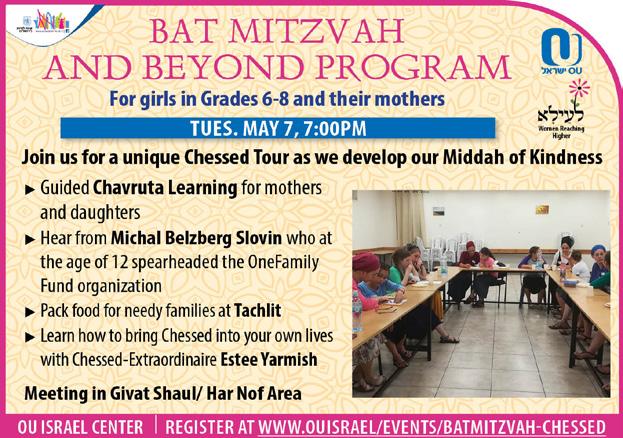
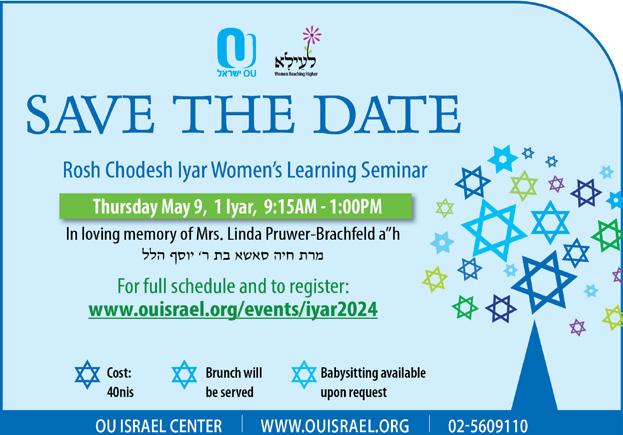
OU ISRAEL CENTER 51
 BY RABBI EZRA FRIEDMAN Director, The Gustave & Carol Jacobs Center for Kashrut Education Director, The Gustave & Carol Jacobs Center for Kashrut Education
BY RABBI EZRA FRIEDMAN Director, The Gustave & Carol Jacobs Center for Kashrut Education Director, The Gustave & Carol Jacobs Center for Kashrut Education
PESACH
Introduction to Bishul Akum
Medications on Pesach
The prohibition
Medications on Pesach is a sensitive subject both medically and halachically. Unlike most other year-round forbidden foods, the restrictions of Chametz (leavened grain material and its bi-products) on Pesach govern not only its consumption (issur achila), but also deriving any benefit (issur ha’naah). This article will focus on the basics of taking medications on Pesach. Regardless of the following article, exercise extreme caution and consult with your doctor and rabbi before making a decision not to take medicine.
According to Biblical law, food that is completely kosher and cooked by a nonJew is permitted. However, our Sages decreed that such food, even when cooked in kosher utensils, is prohibited for consumption. This prohibition is known as bishul akum. In the coming weeks we will discuss the parameters of this rabbinic prohibition, including the reasons behind the decree, when it applies, and the practical halacha for modern industrial kashrut.
The OU publishes a list of non-food items that are acceptable to use on Pesach even without special Pesach certification. Many of these items are approved because the OU has determined that they do not contain Chametz. Still others are recommended even though there is a possibility that they may actually contain Chametz. How can that possibly be?
Food is a very connecting element in every society. That is the basis behind the decree of bishul akum. Our Sages were very concerned about close relationships with non-Jews since intermarriage is a very severe transgression. The prohibition effectively limits Jews and gentiles dining with each other, although there is no specific prohibition against dining with a non-Jew per se. (See Rashi on Avodah Zara 31:b.)
Forbidding the non-Jew’s cooking would be enough to create an emotional distance such that families wouldn’t marry into each other.
Rabbeinu Tam (Tosfot Avodah Zara 38:a) and Rambam (Ma’achalot Asurot 17:9)
The Talmud (Avodah Zara 67b) teaches that although one is forbidden to eat a non-slaughtered animal, but once the meat spoils, the prohibition is removed. Halacha recognizes two levels of inedibility; Items that are unfit for human consumption, and items that would not even be eaten by a canine. Most non-kosher foods, including non-slaughtered animals, lose their non-kosher status once



they reach the threshold of being unfit for human consumption.
maintain that the decree is based on this issue of closeness to non-Jews that could lead to intermarriage; this is the opinion of most early authorities. However, Rashi and others attribute a different reasoning to the prohibition of bishul akum, which is that non-Jews might mix non-kosher ingredients into the kosher food. In future articles we will discuss whether the parameters of bishul akum are based on both of these reasons or just one. However, it is clear from numerous sources that the danger of intermarriage is the main reason behind the prohibition (See Torat Habayit 3:7).
The decree is binding regardless of the reason
Regarding chametz, the halacha is different. A spoiled loaf of bread that would still be eaten by a dog must be destroyed before Pesach. This is because although a human would not eat such bread, they can still use it to ferment other dough. The Torah does not only forbid owning chametz (edible), it also specifically forbids owning sourdough (inedible). Only once bread becomes so spoiled that even a dog would not eat it does it lose its status of chametz. However, there is one more caveat. Even if one incinerates chametz before Pesach, one is still forbidden to eat the ashes. This is due to the principle of achshivei (giving importance). By consuming the charred remnants of the chametz, one is attesting to the fact that one still considers it a food.
On a Rabbinic level this is forbidden. However, one is permitted to own and benefit from incinerated chametz and the same applies to chametz that is nifsal (disqualified) to the extent that it would no longer be eaten by a dog.
Known and tested medications in the form of creams, non-chewable pills and injections may be owned, used and consumed on Pesach, even if they contain chametz or kitniyot, since they are inedible. This covers most medicines used by adults. However, if an equally effective chametz-free alternative is available or procurable, this should be used instead. It is permissible to grind pills and mix the powder into food items so that a child can
Since the transgression of intermarriage was the primary concern behind our Sages’ decree, their goal was to powerfully discourage the possibility of developing emotional connections to non-Jews that could lead to intermarriage either in that generation or the next. Accordingly, early authorities discuss whether the prohibition of bishul akum still applies even in situations where intermarriage is not technically possible. For example, Rashba, in his responsa (1:248), examines the case of food cooked by a priest. Being that Catholic priests do not marry nor do they have children with whom to intermarry, is it permitted to eat food cooked by a priest even though the reason for bishul akum seemingly does not apply to
52 TORAH TIDBITS 1562 / METZORA - PESACH - ACHREI MOT 52 TORAH TIDBITS 1516 / BAMIDBAR
OU KASHRUT PAGE
OU Kosher Israel is the Center's director.
take medicine on Pesach. However, a doctor must be consulted to make sure that the child is getting the correct dosage and that the potency of the pill is not compromised by altering its consistency.

SHIUR SPONSORS
gentiles, even if the ingredients and utensils are kosher.
TO SPONSOR A SHIUR CONTACT
Chana Spivack - 050-229-4951 or donate online: https://www.ouisrael.org/donate/ou-israel-center/
The reason cited by most authorities is the risk of intermarriage.
MONDAY, APRIL 15TH - RABBI MANNING’S SHIUR was sponsored in memory of the late
Liquid medicines, chewable pills and pills coated with a flavored glaze are considered palatable and may contain chametz. If substitution is not possible and the person is in a state of sakana or safek sakana (any possible danger to human life), the medication may be owned and consumed. The same applies if the condition is not yet a safek sakana but may deteriorate to that point.
him? Rashba answers that we have a rule regarding rabbinic decrees: even when the reason does not apply, the prohibition still stands. This is a necessary element in every rabbinic prohibition. Otherwise, Rashba explains, people could rationalize and find reasons why any decree should not apply in their particular situation. Accordingly, Rashba concludes that even food cooked by a Catholic priest has the prohibition of bishul akum. A similar ruling is made by Ramban (Avodah Zara 35:a) regarding non-Jewish royalty who, because of their stature, are prohibited from marrying Jews. He maintains that the fact that the non-Jews are royalty is irrelevant, and that the decree of bishul akum stands regardless of the reason behind it. Taz (YD 112:1) , Shach (YD 112:4) and Pri Megadim (YD 112:1) cite these rulings as axioms of the laws of bishul akum.
Other examples
A rabbi should be consulted as to whether it is preferable to purchase the medicine before or during Pesach, and as to how to dispose of the medicine once the danger passes. If substitution is not possible and a doctor determines that there is no possibility of sakana if the person does not take the medicine, a rabbi should be consulted. He may be able to determine that the medicine does not contain chametz and/or kitniyot, or he may decide that the medicine may be consumed due to the seriousness of the patient’s condition. Unless an equivalent alternative is available, medicinal items which contain kitniyot are permitted for people who are ill. Questions on this issue should be directed to your rabbi.
Later authorities discuss similar cases where the logic behind bishul akum may not apply. Responsa Shevet Kehati (6:273) rules that even food cooked by a non-Jewish child is considered bishul akum, despite the fact that the chances of marriage seem remote. The same is true for food cooked in a faraway country where Jews cannot travel --
Professor Mark Steiner z”l - ל”ז םירפא
whose 4th yahrzeit is Shabbat HaGadol - 12 Nissan
By his wife, Mrs. Rachel Steiner and the Steiner family
Even in cases with virtually no risk of intermarriage, the food is still prohibited, including non-Jewish royalty, priests, young children, and non-Jews from distant lands.
TUESDAY, APRIL 16TH - RABBI BREITOWITZ’S SHIUR was sponsored in memory of the late
Professor Mark Steiner
By
Kashrut Questions in Israel?
Call or Whatsapp Rabbi Friedman at 050-200-4432 Meir

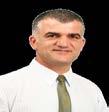
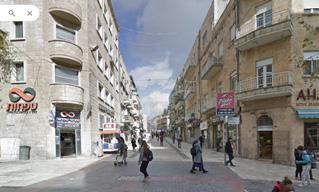


Our Sages prohibited food cooked by

OU ISRAEL CENTER 53 OU ISRAEL CENTER 53
The OU Israel Gustave & Carol Jacobs Center for Kashrut Education was created to raise awareness and educate the public in all areas of kashrut. Rabbi Ezra Friedman, Deputy Rabbinic Administrator for
Golan 077-2050015
Meir Golan Old Katamon: 4-room apartment in a small and quiet street, 101 sqm, renovated, very bright and airy, master bedroom, Safe room (mamad), sukkah balcony, view, elevator, 3,400,000 NIS RASCO: new 4 room apartment, 95m, master suite, elevator, balcony, very nice view 2,950,000 NIS BAKA: 5-room garden apartment, 140m, master suite, private parking, storage, full of light, airy, nice garden, 5,000,000 NIS
052-2678749 golanechasim@gmail.com
ןב הדוהי יכדרמ
ל”ז םירפא ןב הדוהי יכדרמ
4th yahrzeit is Shabbat HaGadol - 12 Nissan
z”l -
whose
his wife, Mrs. Rachel Steiner and the Steiner family SAVE THE DATE Wednesday, May 8, 2:30pm at the OU Israel Center Premier Presentation "On the Road to October 7" - 2009-2023: How Unrwa Summer Camps Rehearsed the Simchat Torah Invasion of Israel with David Bedein NEW ON MARKET! PERFECT LOCATION ON THE BEN YEHUDA MIDRECHOV JUDIT BLUMENFRUCHT 072-393-5764 HISTORIC BUILDING . 4000M TO BUILD HOTEL, RESIDENTIAL, OR COMMERCIAL

SIMCHAT SHMUEL
BY RABBI SAM SHOR Program Director, OU Israel Center
Perhaps my earliest memory of our family’s annual Pesach Sedarim, was the daunting moment when I was called upon to recite for the first time, the Ma Nishtana, the segment of the Haggadah text commonly referred to as the “Four Questions.” This year (More than 40 years since my personal four questions debut), I look forward to once again hearing those very same words from my adorable nine year old daughter .
What exactly is the origin of the custom for the youngest child who is capable of reciting this section of the Haggadah? Might there be a specific educational and pedagogic rationale for this long standing tradition?
The Mishna in Pesachim (116 A), introduces the basic premise for our familiar custom:
“Mozgo lo kos sheini,v’kaan haben shoel Aviv. V’im ein daat b’ven, Aviv melamdo-‘ma nishtana halaila hazeh, mikol haleilot...’ ulefi daato shel ben, Aviv melamdo...”
“A second cup of wine is poured and the child should then inquire of his father (the reasons for the Seder ritual). If the child is intellectually incapable of doing this, the father is bound to instruct him as follows: ‘What differentiates this night from all other nights...?’A father should instruct the child in accordance with his capacity to understand...”
It seems from this teaching that upon pouring the second of the four cups of wine, a child should ask regarding the purpose of the many aspects of the Seder. If the child is not intellectually capable to ask those questions then his father should demonstrate for him,
PESACH



meaning he should recite the Ma Nishtana text to instruct his child in the proper Seder protocol, and should in general begin to cultivate the curiosity of the child, and engage the child in a manner that is consistent with his capacity to understand.
Our Chazal explain this teaching further:
Tanu Rabanan: Chacham beno, shoelu, v’im eno chacham, ishto shoeloto. V’im lav, hu shoel l’atzmo, v’afilu shnei talmidei chachamim, sheyodiin b’hilchot haPesach shoelin zeh lazeh...”
“The rabbis taught: One whose child is intellectually capable, should be asked by his child; if the child is not capable, the wife should inquire, and if the wife is not capable, he himself should ask those questions; and even if two scholars who are well versed in the laws of the Pesach should sit together at the Pesach-meal, one should ask the other the above questions...”
The Sages introduce a new wrinkle to this entire teaching. Ideally we should be asked by our children, but if no child present is capable of asking, or if there is no child present, then the adults should still ask these questions of each other!
Perhaps, then there is an important educational idea being introduced through this teaching. Even if no child is present, we as adults still must ask these questions, to reiterate the value of verbalizing a question, of articulating our intellectual curiosity. One cannot truly grow intellectually if he/she does not have the capacity to seek, inquire and probe, to look for answers and
54 TORAH TIDBITS 1562 / METZORA - PESACH - ACHREI MOT
understanding. The mechanism of the question is perhaps the most vital and fundamental of pedagogical tools.
The Rambam also addresses this Talmudic teaching in two entries in his Hilchot Chametz UMatza.
In Chapter 7 (the third entry):
“V’tzarich laasot shinui balayla hazeh, kidei sherau habanim, veyishaalu, v’yamru ‘Ma nishtana halayla hazeh mikol haleilot’...”
“It is necessary to make changes on this night (the many rituals which are unique to the Seder evening), in order that the children will notice these differences, and ask saying: ‘What differentiates this night from all other nights?’...”
In Chapter 8 (the second entry), we read a slightly different scenario concerning these four questions:
“...umozgin hakos hasheini, v’kaan haben shoeil, v’omeir haKorei: ‘Ma Nishtana halaila hazeh mikol halailot...”
“And you should pour the second cup of wine, and here the child asks. And the Reader (the one leading the Seder-) says: ‘What differentiates this night from all other nights?’...”
In our first entry from Chapter 7, the Rambam explains that all the symbolic food and actions of the Seder are meant to peak the child’s curiosity so that he will notice and ask the familiar questions, while in Chapter 8, seems to contradict himself, suggesting that once the second cup is poured, the children ask whatever questions they wish, and then the person leading the Seder states our familiar questions.
This of course leaves us to ask, which is it? Does the child ask or does the leader ask? How are we to understand this apparent contradiction?

OU ISRAEL CENTER 55
Rabbi Abraham Isaac Kook zy’a explained that really this entire section of the Ma Nishtana, is meant for the Sheayno Yodea LiShole- the child who does not know how to ask, the child who does not yet understand the value in asking questions. For the other children they see all that is going on in the ritual of the Seder, in the symbolic foods, in the discussion, and they are naturally inclined to ask, but sometimes there is the child who does not yet know how to formulate a question, so as the haggadah text tells us ‘at ptach lo...’ we give him the script- begin the process for him, teach him how to ask questions.
Perhaps though there is something more profound in the words of the Rambam , beyond Rav Kook’s suggested interpretation. Perhaps, the Rambam is teaching us in Chapter 7, make all these changes on this night-create a laboratory-to encourage and cultivate our children’s innate curiosity.
However, sometimes that innate curiosity, if not properly channeled can lead to inappropriate queries and mischief. In Chapter 8, the Rambam teaches us that sometimes we need to not only encourage the precocious nature of each and every child, but sometimes we need to acknowledge and harness that inquisitiveness by demonstrating how to ask the right questions, how to properly apply that curiosity for pursuit of timely and appropriate knowledge.
Our Chazal introduced to us that the goal of this evening is to encourage our children to ask questions. The Sages of the Talmud explain that even if no child is present and the adults ask each other these questions, the Seder serves an incredible educational experience. Yes, adults should teach children the intrinsic value of asking questions; but on the
is blessed by G-d: he lives in Beer L’chai Roi.
The transition from Avraham to Yitzchak is complete. While G-d has been a silent partner in this parsha, here He completes the generational transfer – He blesses Yitzchak. The Jewish people will be Yitzchak and not Yishmael.
Seder night, even adults sitting together with no children present become re-acquainted with the most fundamental, yet powerful tools for growth, the capacity to ask an articulate question, to seek an answer to that which seems strange, confusing, or challenging.
7th Aliya (25:12-18) The generations of Yishmael are enumerated. Yishmael dies. His descendants dwell from Egypt to Assyria. Yishmael’s story is brief. He has numerous and powerful offspring. The brevity echoes tions woman and began father’s that his icant the
Pesach is referred to as zman cheiruteinu, the Festival of our Freedom. The cheirut (freedom) which we commemorate each and every Pesach is so much more than freedom from the physical servitude of ancient Egypt. Cheirut, true spiritual freedom is the capacity to learn, probe and grow, to cultivate the penchant for knowledge and identity which is innate within each of us. True cheirut, is the capacity to seek the answers to life’s challenges and questions, so that ultimately each of us may become who we are destined to be!
R av, Beit Knesset
A SHORT VORT BY RABBI
When Avraham addresses the people of Cheit, trying to “Ger V’Toshav Anochi Eimachem” (23:4) “A Stranger and This seems to be a contradiction. If one is a stranger than is no longer a stranger. What did Avraham mean?
May those familiar questions which we’ll recite and reply to in just a few days, inspire within each of us the capacity to continually thirst for answers, to continually probe, to continually seek to become exactly who each of us was meant to be.
The Magid of Dubno (Jacob ben Wolf Kranz 1741-1804) this tense situation in order to, both, state his truth and be said, on the one hand, “I am a Resident’ due to G-d’s promise need your agreement to purchase a plot. In other words, Avraham “strangers”, while they understood him as saying that “they”
The peace was kept, and Avraham remained true to his Shabbat Shalom
Chag Kasher V’Sameach.

12 TORAH TIDBITS 1440 / CHAYEI SARA 5782
EXCLUSIVE FOR SALE
9 Shalom Yehuda St. Jerusalem
Three rooms completely accessible elevator, 65 sqm, storage, parking, 3rd floor, small building, close to a synagogue, public transportation and shops. Attractive price 2.800.00 nis
Nissim Cohen
0522741181 | cnissim5@gmail.com
56 TORAH TIDBITS 1562 / METZORA - PESACH - ACHREI MOT
Yishmael in Ma’arat Hamachpelah. Yitzchak
COME MEET THE PEOPLE WHO MAKE OUR HOME

Ramat Tamir has a frum atmosphere you won't find anywhere else, with excellent shiurim, outstanding kashrus standards and shemiras Shabbos kehilchasa.
IT'S MUCH MORE THAN RETIREMENT RESIDENCE!
A resident of Ramat Tamir
SPECIAL OFFER on the occasion of the introduction of 12 new garden units:
INTRODUCTORY PRICE TRIAL PERIOD
When you get to knoW the home
Come and get to know the new garden apartments in 'Ramat Tamir,' and enjoy tasty chef meals, on-site shul and Torah classes every week, trips and lectures, a pampering salon, the possibility to host the family whenever you want, and most importantly, a team of attentive, dedicated and caring people who know every resident personally. Because in our place, it's the people who make the home.
Rabbi Yaakov Leibowitz
E&OE | The company may stop the promotion at any time. While supplies last. The promotions are valid until May 31
more informatio: RAMAT TAMIR - retirement residence for the elderly, 2 Shefa Haim, Jerusalem New! Reduced deposit track
For
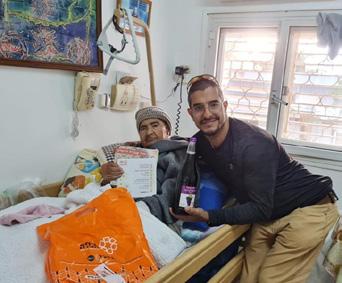

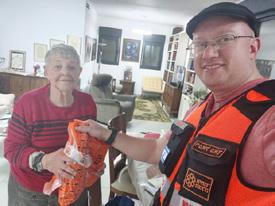
Above
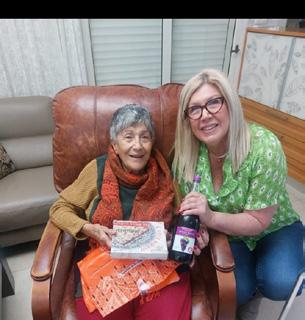
!חמשו רשכ גח
From United Hatzalah

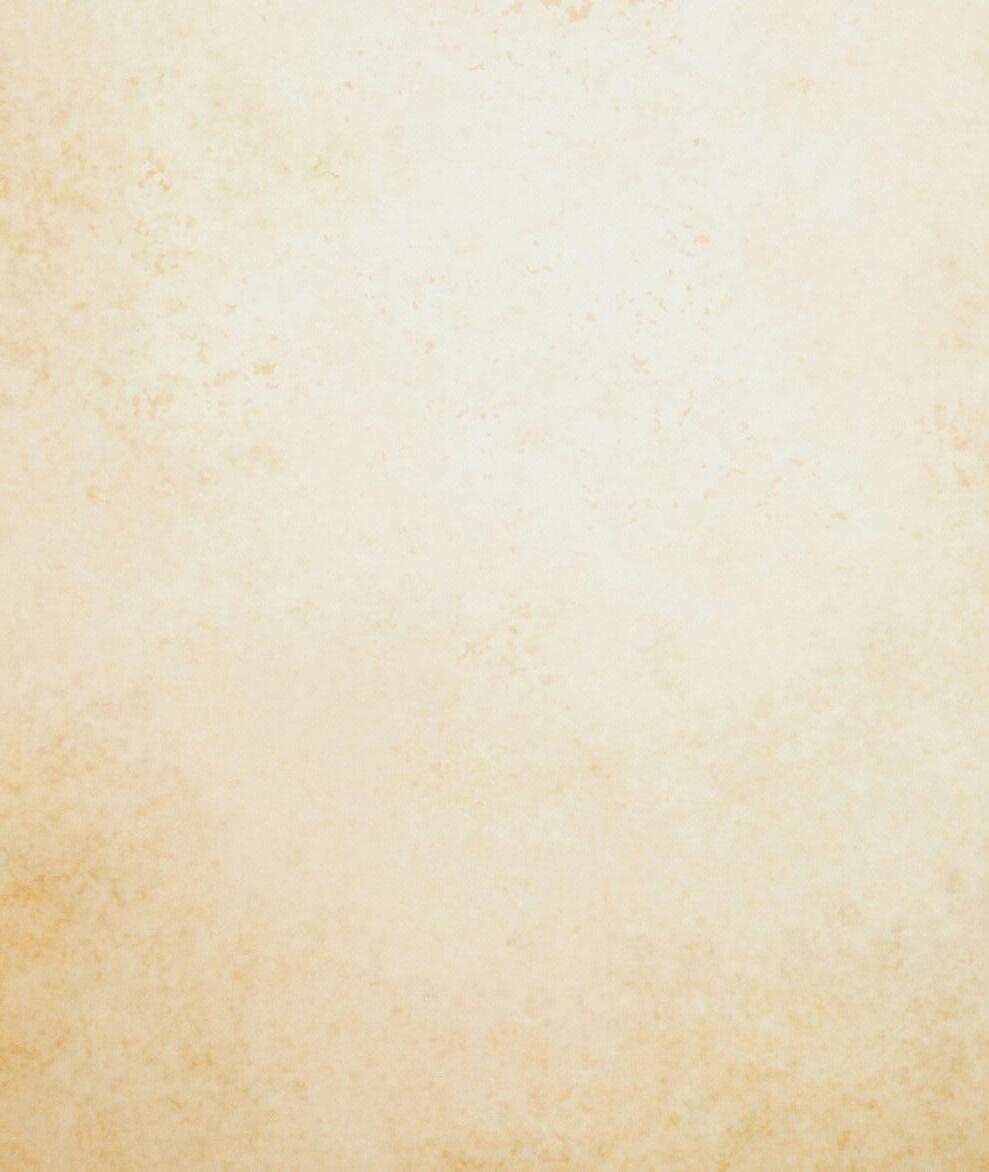
UNITED
HATZ AL AH
are pictures from our Ten Kavod Initiative. Our volunteers visit elderly individuals living at home and bring them matzah and gifts for Pesach.
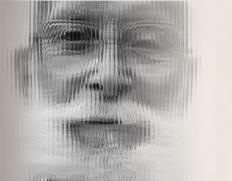
Haskamos from Rav Mordechai Willig shlita and Rav Hershel Schachter shlita
Communicate your Jewish values to your healthcare providers
theIvalueundergoingpotentiallypainfultreatmentsiftheyhave underlyingpotentialofprolongingmylife—eveniftheywillnotcuremy illnessandmayleadtosignificantdiscomfort:
myIvalueundergoingpotentiallypainfultreatmentstotryprolonging familylifetowardthegoalofparticipatinginaspecificoccasion(likea wedding,bar/batmitzvah,orbirth),eveniftheywillnotcuremyunderlyingillnessandmayleadtosignificantdiscomfort:
withItismymedicalteam’sresponsibilitytotrytobalancepainrelief both,maintainingmyalertness.Whenitisdifficulttomaintain Iwouldpreferforthemtoprioritize:(markone)
orIvalueundergoingahigh-riskprocedurethatmightshorten jeopardizemylifeifitcould Possiblycuremyunderlyingillness:
orIvalueundergoingahigh-riskprocedurethatmightshorten jeopardizemylifeifitcould
Possiblystabilizemyconditionbutnotcuremyunderlyingillness:
orIvalueundergoingahigh-riskprocedurethatmightshorten jeopardizemylifeifitcould
Possiblyextendmylifebyanyamountoftime(afewdaysor weeks)butnotcuremyunderlyingillness:
OU ISRAEL CENTER 59 Advance Healthcare Directive & Conversation Guide NAVIGATE YOUR HEALTHCARE JOURNEY WITH HALACHA IF NOT NOW WHEN? S PEND ING PESACH WITH YOUR FAMILY? Take t he opportunity to have meaningful conversations Call for urgent halachic guidance 24/7 or schedule a consultation online when confronting non-urgent medical dilemma s REALTIME CONSULT +1 646 - 599 - 3895 4 © Ematai 2023 Navigate Healthcare Choices with Jewish Wisdom HealthcareProxyandDirective PERSONAL INFORMATION Name: DateofBirth: Address: Telephone: HEALTHCARE PROXY Name: RelationshiptoYou: CellphoneNumber: OtherNumber: PrimaryEmail: OtherEmail: Idesignatethe followingpersontoact onmybehalfifatany time I am not able to make or healthcarecommunicate decisions formyself: HEALTHCARE PROXY (ALTERNATES)ALTERNATE 1 Name: RelationshiptoYou: CellphoneNumber: OtherNumber: EmailAddress: ALTERNATE 2 Name: RelationshiptoYou: CellphoneNumber: OtherNumber: EmailAddress: Ifthe namedperson above is unable,unwillingor unavailable to act as myagent,Ihereby designate:
guide for navigating meaningful discussions
Conversation
II NetivotConversationGuide © Ematai 2023 Navigate Healthcare Choices with Jewish Wisdom PAIN AND RISK TOLERANCE Pain relief am(evenifitmeansI notasalertorawake); Alertness (evenifitmeansI ormaysufferpainand/ othersymptoms):
AdditionalComments: Yes No Yes No Yes No StronglyDisagree Disagree MixedFeelings Agree Strongly Agree
/ netivot Reach out at +1 646-599-3895
DOWNLOAD NETIVOT ematai.org
 BY RABBI MOSHE TARAGIN R am, Yeshivat Har Etzion
BY RABBI MOSHE TARAGIN R am, Yeshivat Har Etzion
PESACH



Pesach: Will Geulah Be Selective Or Inclusive?
Aside from everything else, Yetziat Mitzrayim was a logistical miracle. Approximately 3.5 million newly liberated Jewish slaves were joined by a large faction of “eirev rav” Egyptians, which some accounts put as high as another 3.5 million people. Essentially, 7 million people had to be assembled, transported and fed. Only blind faith in Hashem could convince us to follow Him into an arid and dangerous desert. Hashem never forgot our innocent and youthful faith:
ץראב רבדמב ירחא ךתכֶל ךירוענ דסח ךל יתרכֶז
העורז אל
These staggering numbers could have been much larger. A well-known Midrash asserts that only 20% of the Jewish population left Egypt. The Torah describes our triumphant departure from Egypt with an intriguing term:
םירצמ ץראמ לארשי ינב ולע םישומחו
Based on the “numeric” tone of the word םישומח, Chazal claimed that only 1 in 5 Jews departed Egypt, the remaining 80% being removed during the week of makkat Choshech, under the cover of darkness. Had the entire nation departed Egypt, the numbers would have been closer to 15 million. Whether Chazal are being precise or merely rounding off and approximating, only a small percentage of our people were redeemed
from Egypt. As stunning and history-altering as Yetziat Mitzrayim was, only a small segment of our people was redeemed.
Will Selective Redemption Recur?
Everything in Jewish history is cyclical –what happened before will happen again. Redemption is certainly cyclical and our redemption from Egypt created a paradigm for future redemptions. The original night of Pesach was referred to as םירומיש ליל and, was a template for future geulah:
םתורודל לארשי ינב לכֶל םירומיש
The Exodus from Egypt created a historical carve-out which would shape Jewish history.
Will our final geulah also be selective? If Egypt created a pattern for future redemptions will only a small fragment of our people be redeemed? Some assert this view, especially given the large percentage of our people, both in Israel and abroad, who have abandoned classic Orthodox observance and traditions. Perhaps they are the 80% who will not survive the end of Jewish history.
What is the difference between the selective redemption of Mitzrayim and our final and all-inclusive redemption of every single Jew? How will every Jew be redeemed despite the major shifts in the Jewish world away from traditional halachic behavior? How will geulah include “acheinu kol beis Yisrael”?
60 TORAH TIDBITS 1562 / METZORA - PESACH - ACHREI MOT GEULAS YISRAEL
YISRAEL
FAITH AND LAND
Despite our tendency to glorify the past, Chazal paint a harsh portrait of the Jews in Egypt. Most of their religious traditions completely collapsed. Chazal laud their preservation of national identity and their maintaining Jewish dress, language and names. The implication is that their theological faith and ritual practice eroded. A Midrash cites the complaints of the angels at keriyat yam suf: Jews had fallen into the pagan culture, and it seemed unjust that Egyptians drown, while Jews cross the dry ocean bed.
It is impossible to correlate between Jews who worshipped other gods and those who didn’t survive redemption, but it is easy to imagine that many of those excluded from yetziat Mitzrayim were those whose defection to idolatry rendered them unfit for a newly rebuilt nation of monotheists. As they had completely turned their back on the monotheistic revolution of Avraham, they could not participate in Jewish destiny. They had exited Jewish history.
At our stage of history, the situation is completely different. Throughout our tortured exile, we faced endless hostility and persecution, yet, we stoutly defended Hashem’s presence. At no point did we abdicate belief in one G-d and at no point did we voluntarily defect to other religions. Sadly, many Jews have strayed from halachic observance and even, in some cases, from basic tenets of faith, but they haven’t pledged allegiance to other gods. By and large, our people haven’t turned our back on Avraham’s revolution of consciousness.
In addition to the merits of our monotheistic legacy, modern-day Jews possess an additional merit which includes them

077-2050015
052-2678749

ARNONA: 4-room apartment, 108m, master suite, balcony, storage, Shabbat elevator, private parking, 3,290,000 NIS
2,950,000 NIS
ARNONA: 4-room apartment, 90m, beautifully renovated, master suite, balcony, storage, Shabbat elevator, private parking 3,250,000 NIS
BAKA: New 4 room apartment in a new building, 101m, master suite, storage, Shabbat elevator, private parking, Sukkah balcony in process of being added, 3,890,000 NIS
BAKA: New 4 room apartment in a new building, 88m, master suite, storage, Shabbat elevator, private parking, 3,950,000 NIS
OLD KATAMON: 5-room garden apartment, 125m, large garden + separate unit for rent or for guests, balcony, storage, 5,190,000 NIS
RECHAVIA: 4-room apartment, 92m, Suka balcony, Shabbat elevator, fully accessible, private parking, storage 4,400,000 NIS
REHAVIA: New garden apartment, 98m, garden, 50m, full accessibility, private parking, 5,390,000 NIS
ARNONA: 5-room apartment, 120m, balcony, elevator, fully accessible, private parking, storage 4,350,000 NIS
BAKA: 5-room garden apartment, 140m, master suite private parking, storage, full of light, nice garden, 6,000,000 NIS
SHAAREI CHESED (RECHAVIA): 4-room apartment, 123m, balcony, extraordinary view, Shabbat elevator, fully accessible, private parking, 5,590,000 NIS
OLD KATAMON: Spacious new 5-room apartment, 140m, terrace, underfloor heating, Shabbat elevator, 2 parking, 6,300,000 NIS
NORTH TALPIOT (CASPI STREET): New garden apartment, 5.5 rooms, 165m, 80m garden, architecturally renovated, underfloor heating, central air conditioning, parking, 5,890,000 NIS
KIRYAT SHMUEL: New penthouse, 230m, full accessibility, private parking 13,290,000 NIS
FOR RENT:BAKA: nice 4-room apartment, 82m, beautifully renovated, master suite, air conditioners, balcony, second floor, elevator - fully accessible, storage, 8,000 NIS
in redemption. The Jews of Egypt hadn’t yet entered the Land of Israel, while our generation is privileged to live in the Land of Hashem and to fulfill his divine promise and historical design. For the past century we have tirelessly built our homeland despite the violent opposition of a world which still denies our Biblical rights to Israel. We have demonstrated courage, patriotism, and commitment to Jewish history. Even in the absence of personal merit, commitment to our homeland is sufficient to justify redemption.
Even those who have abandoned the lifestyle and calling of Avraham, Yitzchak and Ya’akov still enjoy the zechut of Eretz Yisrael.
This is the reason why, on Pesach night, we cite the Arami Oved Avi section of Ki Tavo.
OU ISRAEL CENTER 61
Golan
Meir
golanechasim@gmail.com Meir Golan Old Katamon: 4-room apartment in a small and quiet street, 101 sqm, renovated, very bright and airy, master bedroom, Safe room (mamad), sukkah balcony, view, elevator, 3,400,000 NIS
Old Katamon: 4-room apartment, 90 sqm, well split, bright, airy, sukkah balcony facing a magnificent panoramic view, 3 exp Shabbat elevator, parking, 3,290,000 NIS Old Katamon: Spacious 3-room apartment in a very quiet street, 75 sqm, sukkah balcony facing a green and pastoral view, 3 exp. Shabbat elevator, private parking, storeroom, 2,690,000 NIS RASCO: new 4 room apartment, 95m, master suite, elevator, balcony, very nice view
ףאו קחצי יתירב תא ףאו בקעי יתירב תא יתרכֶזו רוכֶזא ץראהו רוכֶזא םהרבא יתירב תא
This four-pasuk synopsis of Yetziat Mitzrayim was recited while bringing Bikkurim fruit to the Mikdash. By definition, only those who had entered Israel recited this summary of Yetziat Mitzrayim. Those who have the merit of living in Israel are never excluded from redemption.
In chapter 16, Yechezkel compares the Jews in Egypt to a pre-adolescent girl. Chazal interpret this as a metaphor for our people who were barren of mitzvot and of any other merit. Jews today, even those who are barren of mitzvot, aren’t barren of virtue. We have battled to build our homeland in the face of never-ending hostility and violence. Hashem embedded an ancient echo within every Jewish heart. Commitment to Land, people, and history echoes even within hearts which have, sadly, abandoned Har Sinai. Our preservation of monotheism and our courage and defiance in settling Israel makes us all worthy of redemption.
COLLECTIVE HISTORICAL MERIT
We also possess collective historical merit. We are at a completely different stage of history. In Egypt we were an emerging nation with little to no national history and a nascent but yet-to-be-developed relationship with Hashem. Tasked with redeeming us from Egypt, Moshe was baffled about introducing Hashem to downtrodden slaves, who had little exposure to Him. Our national experience with Hashem was first starting to evolve.
We are now at the tail end of history, and have been through a lot, on behalf of Hashem and together with Hashem. We have valiantly defended His presence in this world at great cost, often paying with our lives. Even if individual Jews may not possess sufficient
merit to be redeemed, our people deserve a full-scale and all-inclusive geulah.
The metamorphosis of our relationship with Hashem through history is portrayed in Shir Hashirim, the great lyric of Jewish history. At the outset of the story the young girl-representing our people- is invited to join the Man-representing Hashem. She shyly defers the invitation, worried about foxes infiltrating the vineyard which her older brothers ordered her to guard. Beyond her technical excuses for not rendezvousing with the Man, this country girl from Ein Gedi seems intimidated by a king from a fancy palace in Yerushalayim adorned with ornate wood and plated with expensive gold and silver. They have no relationship and no common history.
By the end of the sefer, which refers to the end of history, the woman speaks a different tune, confidently inviting the Man or Hashem to return to the home she has steadfastly refurbished. Chazal attribute her confidence to Jewish heroism throughout history. In Egypt we possessed little collective merit, but at this stage in history our people have accumulated enough heroism to warrant a redemption which includes every member of our extended family.
THE COVENANT
Yetziat Mitzrayim occurred prior to our covenant with Hashem. Though Hashem had forged a proto-covenant with our ancestors, it hadn’t yet been implemented on a national scale. Yetziat Mitzrayim forged us into a nation which would, seven weeks later, join a covenant with Hashem at Sinai. We are the people of that Brit.
A covenant isn’t dependent upon personal merit or even upon collective behavior, but
62 TORAH TIDBITS 1562 / METZORA - PESACH - ACHREI MOT
is absolute and immutable. Even though we don’t always merit Hashem’s favor we are locked together with Him in a historical covenant. Our brit assures redemption for all members of the covenant, even for those who may not be fully aware of the connotations of our brit.
GRASS OR SAND?
In that same chapter 16, Yechezkel compares our people in Egypt to blades of grass: ךיתתנ הדשה חמצכֶ הבבר Not every blade of grass is equal in quality and often, inferior blades are cut away to improve the quality of the remaining grass. In Egypt we may have been like grass, but longterm Jewish destiny is compared to sand and dust. Grains of sand are indistinguishable. It is almost impossible to separate grains of sand or particles of dust from one another. We are all part of one common covenant, first forged with our Avot, but later enshrined at Sinai. ןעמל
One By One Yeshayahu promises us: דחא דחא וטקולת םתאו Hashem will select each and every Jew and return us to Yerushalayim. History has moved on since Yetziat Mitzrayim. Jews have merits. Our Jewish nation has merits. We all have a covenant. Redemption will not be selective.
Rabbi Taragin’s new book about the war in Israel ‘Dark Clouds Above, Faith Below’ is now available in bookstores, or at: https://www.amazon.com/dp/ B0CZ7N8ZJB
Last remaining 3, 4 and 5 room luxury apartments. Just 150 metres from the beach. Sea views, large balconies, super quality. From only 1.77m Sheqels Call now! 054-731-2118




058-707-8181



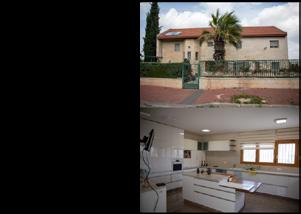
OU ISRAEL CENTER 63
הרתסהה ךותמ הנומא הרתסהה ךותמ הנומא Dark Clouds Above, Faith Below ark Clouds Above, Faith Below Rabbi Moshe Taragin Rabbi Moshe Taragin history of our people. Dark clouds have Faith and Meaning can be found in the Redeeming history long process,
or: https://kodeshpress.com/product/ dark-clouds-above-faith-below/
רכֶוזו ומש
םהינב ינבל לאוג איבמו תובא ידסח
By your side, until you step inside
Mr &Mrs Ashkelon
Call for Exclusive Living FOLDING CHAIRS WWW.FOLDEES.CO.IL |
• STYLE & COMFORT
MANY COLORS & DESIGNS
FAST DELIVERY HIGH QUALITY PREMIUM
Final
•
•
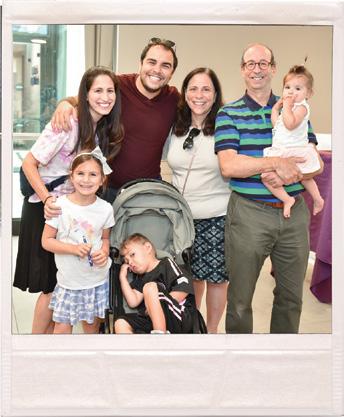
Got Aliyah questions?

We've got answers! *3680
64 TORAH TIDBITS 1562 / METZORA - PESACH - ACHREI MOT Happy Pesach!
חמש חספ
answers@nbn.org.il





ETOWARDS MEANINGFUL SHABBOS
TOWARDS MEANINGFUL
BY REBBETZIN ZEMIRA OZAROWSKI Director of OU Israel L'Ayla Women's Initiative
TEFILLA BY REBBETZIN ZEMIRA OZAROWSKI Director of OU Israel L’Ayla Women’s Initiative
ven though we already concluded our study of Birchat HaMazon in the last article, I recently came across a remarkable story about bentching that I thought would be important to share with you. The story illustrates a beautiful point brought down by the Sefer HaChinuch. The Sefer HaChinuch writes –”וימי
Anyone who is careful with their Bentching, his livelihood will be provide for him with respect all of his days

PESACH



The Meaning Behind the Leaning: Lessons for Today’s Times
We spent a lot of time in our Birchat Hamazon series discussing the meaning and significance of all of the Brachot of the Bentching. But beyond understanding the deeper meanings, we also need to make sure to be ריהז with our bentching, to be careful how we recite the Bentching, the respect we give to it, and the way we concentrate and focus. If we do our bentching right, we are told that Hashem will reward us with a good livelihood.
request (האווצ) of Menachem Asher is to bentch out of a bentcher”. The family explained that at the age of 16, Menachem Asher had taken on the practice of always bentching from a bentcher and never reciting the bentching by heart. He took this commitment very seriously and would never wash and eat bread unless he was absolutely sure there was a bentcher available in the vicinity. Chaim Ginz heard this and decided to take on this practice as well, l’iluy nishmat this young man.
Many of us are probably asking ourselves – how are we meant to celebrate Pesach this year? Obviously, we need to go through the motions of Matzah and Maggid, but how can we really feel free when our brothers and sisters are being held hostage in Gaza, thousands of soldiers will be away from their families over Pesach, and many displaced families will be forced to conduct the Seder away from the comforts of home?
This story is told by Rabbi Yoel Gold and has a profound message for us in our own bentching.
Two years ago, after the tragedy in Meron, a man named Chaim Ginz decided to try and be menachem avel as many of the victims’ families as possible. The first family he visited was the Zacbach family in Bnei Brak, who were mourning their 24 year old son, Menachem Asher. At the shiva house, the family gave out bentchers with the inscription – “The last will/
There’s a fascinating discussion in Gemara Pesachim 108a that can give us some insight into this question. The Gemara discusses when one should lean during the Seder. Since leaning represents freedom, the Gemara explains that we do lean for Matzah, since Matzah is the symbol of Yetziat Mitzrayim, of running out so fast that there was no time for the dough to rise. We don’t lean during Maror since it represents the bitterness of slavery. The Gemara then asks – what about
About a month later, Chaim was feeling pretty stuck. He was having trouble making a living. He was a Sofer and he had just completed a project and was unable to find any more work. Day after day, he would show prospective clients samples of his work but they just kept turning him away. He was feeling very rejected and depressed. One day, he was in a special apartment in Bnei Brak which sofrim use as a place to do their work. He had something to eat and was ready to bentch. He didn’t have a bentcher on him so he was about to bentch by heart. But he remembered his commitment and began to search the apartment from top to bottom. Finally, after many minutes, he located a bentcher hidden under a stack of papers on the top of a bookshelf. He noticed that the bentcher was written in תירושא בתכ, the font used by sofrim. He admired the beauty of the writing and after bentching, he decided to use the bentcher to help him with his own writing. For three hours, he
the 4 cups of wine? Should we lean for them?
The Gemara brings down two opinions. The first opinion says that we don’t lean for the first two cups of wine since they book-end Maggid. We can’t possibly feel free when we are still in the midst of the story of slavery and Yetziat Mitzrayim. We only lean for the last two cups of wine, once the story is over and we are completely free.
Do you collect silver, manuscripts, Judaica?
Your collection holds the key to unlocking the past. COLLECTORS...
Every Collection - Every Story - Uniquely Yours
Turn your memories into an unforgettable volume.
Discover more: www.forcollectors.international
Contact: eveblack@forcollectors.international
But the second opinion says the opposite. We don’t lean for the last two cups because by then the story is already long over, we’ve already forgotten how terrible it was to be slaves and we can’t truly appreciate our freedom anymore. When do we lean? Davka for the first two cups, DURING the actual telling of the story. Why? Because even though at that point we are still slaves and things are still difficult, we slowly begin to see the light at the end of the tunnel. As we watch the scenes unfold, we see each stage slowly leading to redemption. Moshe is born and is saved from drowning and is brought up in the Egyptian palace….Moshe grows up and identifies with the Jewish people and Hashem appoints him to go confront Paroh….Hashem begins to bring the Makkot.
66 TORAH TIDBITS 1562 / METZORA - PESACH - ACHREI MOT
70 TORAH TIDBITS 1507 / TETZAVEH - PRE-PURIM 5783
לכ דובכב ול ןייוצמ ויתונוזמ ,ןוזמה תכרבב ריהזה לכ“
Even as we are still in the midst of terrible pain and suffering, we start to watch the beginning of a process. And it is davka then, when we still feel that bitterness, that we can begin to recognize our journey towards freedom, and it is then that we can and should lean.
After bringing both opinions, the Gemara concludes that we should follow both approaches and lean for all four cups. What’s the message for us? We can learn from here how important it is to be able to thank Hashem and celebrate our freedom at both stages. During today’s difficult times, even when things seem very bitter, we need to be able to recognize Yad Hashem, to note what is being accomplished, and to recognize that we are part of a process. But we can’t end there, when the war finally comes to a successful end, we need to be able to continue to thank Hashem and appreciate all He has done for many years to come.


Dorot Rishonim #3, Jerusalem
Tel: 02 563-7155
Website: SherlockSHats.com

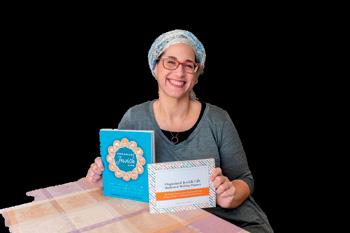

OU ISRAEL CENTER 67 be ready for every thing Pick up your copy and be prepared for every occasion and Jewish life cycle event. Checklists to help you prepare for every event @BALAGANBEGONE organizedjewishlife.com Companion Shabbat & Holiday Planner online at amazon.com or in Israel exclusively at Makes a great gift
i s r a e l PROPER T I E S b y s ta m e l m a n & Par t ne r s E xpert R ea l E st a t e & S e r v i c e s Pr o vid e r s
sale 20% off all winter hats valid thru Sunday, April 21, 2024






Smart Sky specializes in advancedcustom shading systems suitable for all seasons.
Our systems offer a variety of enclosing solutions for expanding your living areas, balconies, pools, shuls and businesses.
Smart Sky's professional Jewish installation team use only optimum quality and high grade imported materials.
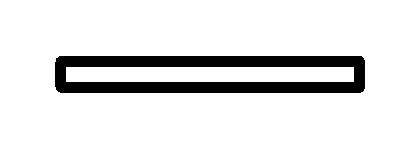
This time do it the way!
68 TORAH TIDBITS 1562 / METZORA - PESACH - ACHREI MOT
7th,
summer@matan.org.il 646-905-0380 +972-2-5944555
PROGRAM KICKOFF July
Rosh Chodesh Tammuz in the Old City
ד”סב
Smart Sky specializes in designing motorized shading systems Stunning luxurious appearance Opens for Succos Quality service and warranty Weatherproof
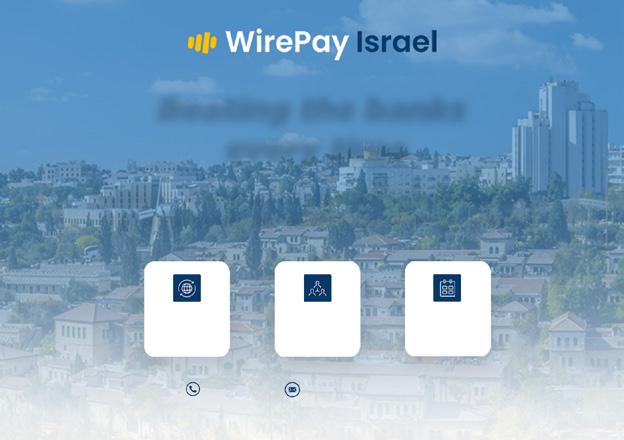

THIS CHOL HAMOED ENJOY A THRILLING AND MEANINGFUL ACTIVITY WITH YOUR ENTIRE FAMILY





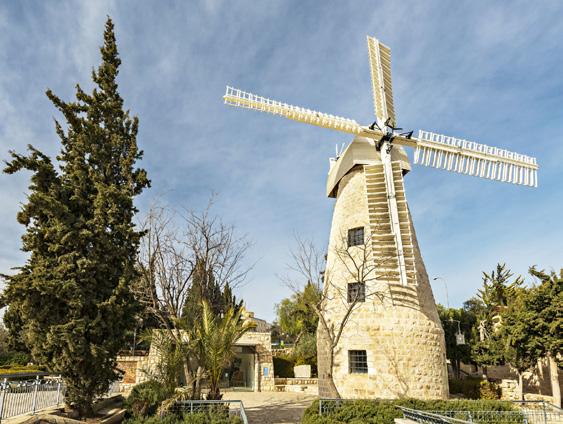
OU ISRAEL CENTER 69
J E R U S A L E M
10:00-12:30
RACE TO SOLVE CLUES AND CHALLENGES EXPLORE JERUSALEM IN A CREATIVE WAY T-SHIRTS FOR EVERY FAMILY MEMBER SPECIAL PRIZES FOR THE WINNER
FRIDAY, 26 APRIL, 2024
the banks every time
Beating
 EDITOR, TORAH TIDBITS
EDITOR, TORAH TIDBITS RAV, THE JERUSALEM SHUL - BAKA, JERUSALEM
EDITOR, TORAH TIDBITS
EDITOR, TORAH TIDBITS RAV, THE JERUSALEM SHUL - BAKA, JERUSALEM



When To Speak About the War at Your Seder. And What To Say.
It has now been more than a half a year that Israel is at war. Tragically, it appears that we may be observing the ‘holiday of freedom’ while our beloved brothers and sisters are still being held hostage in Gaza. So many soldiers protecting our nation will not be home to celebrate with their families.
Our Seder this year takes on a unique complexion.
For this reason, it is fitting at our Seders to include special prayers, Tehillim, or perhaps a reading about the precious lives that were lost, or sharing a story of courage and faith in this regard.
WHEN ON SEDER NIGHT?
Is there an optimal time during the Seder to address the war? There are a number of places that have been suggested by rabbis and I share here one recommendation based on a chassidic teaching: A poignant moment to pray or share words regarding this painful period is early on at the Seder, when we break the matzah in half; Yachatz.
Why here?
An exquisite explanation in chassidic thought offered for this ritual suggests that the breaking of the matzah represents the
brokenness in the world. The broken matzah symbolizes the innumerable broken hearts, broken lives… the endless tears. The broken matzah signifies that the world is badly fractured and we need to know that in order to repair it.
Immediately following that ritual of splitting the matzah in two the larger broken piece is carefully tucked away. This half piece which is hidden is known as the Afikoman. And it is that broken matzah which will be brought back to the table at the end of the Seder. Everyone at the table then eats a piece of it.
Who brings the piece of matzah back to the table? The long held custom is for the children to search for it and they then excitedly present it to everyone.
There is far-reaching symbolism here. Who will fix the brokenness? If we, in our day, are unsuccessful in mending the deep fragmentation, we have faith that our children will. Seder night our children bring back the broken piece and make the world whole again. (The Night That Unites Haggadah p.66)
WHAT MESSAGE TO SHARE?
The Seder is best known for being a night of questions and answers. And yet, perhaps
70 TORAH TIDBITS 1562 / METZORA - PESACH - ACHREI MOT
RABBI AARON GOLDSCHEIDER
PESACH
the most important lesson to convey to our children Seder night is not that we have all the answers. Rather, we need to share that although in life we are faced with many questions, there will be questions which we simply cannot answer. But one thing we are sure of is that we have Hashem in our lives. And that Hashem is good and full of compassion.
When reaching the Seder’s end we drink a fourth cup of wine. At this point we are no longer relaying the story of the exodus from Egypt, rather, we lift that cup of wine to acknowledge, with anticipation, the future redemption. As the Seder comes to a close we are making the following statement to our children (...and to ourselves and all those around the table): “I don’t know when the Redemption will happen. I don’t know how it will happen. But one thing I know beyond a shadow of doubt, my dear children, is that the Redemption will come.” In a word, the night of Seder is a night of faith. (Ibid., p. 252)
THE SHAPE OF THE MATZAH
The Lubavitcher Rebbe cited the well known explanation that the three pieces of matzah placed on the Seder table correspond to the three distinct segments that make up the Jewish people - Kohen, Levi and Yisrael.

The Rebbe added that the rashei tevot - the first letters of each word - spell out the word KLI (ילכֶ) , a vessel. This teaches that every Jew must endeavor to be a ‘vessel’, a repository filled with sanctity and kindness.
The Rebbe shared his unique Pesach practice of choosing pieces of matzah for the Seder that were not completely flat, but pieces that, in some measure, were bowl shaped, so that they resemble a receptacle. The matzah signifies that we must fashion our own lives in such a way so that they are brimming with benevolence and generosity. We are to be givers. (Haggadah Shel Pesach of the Lubavitcher Rebbe, p. 32)
Troubling times abound. We feel besieged by hordes espousing hatred. But we as a people know how to respond. We reach even deeper into our reservoirs of faith. Every Jew: kohen, levi, yisrael, must continue to contribute, each in their own way, to bring light to this darkness. We must continue to uplift one another and widen the path towards a better future. We continue to pray to Hashem for comfort and for salvation.
Rabbi
OU ISRAEL CENTER 71
Goldscheider is the author of the newly published book ‘Torah United’ (OU Press), featuring divrei Torah on the weekly parasha from Rav Kook, Rabbi Solovetichik, and the Chassidic Masters.
Securities offered through Portfolio Resources Group. Inc., member of FINRA, SIPC, MSRB, SIFMA U S B R O K E R AG E S E R V I C E S I N I S R A E L Get the Best of Both Worlds Kee p yo ur mo ney in th e US an d rec ei ve lo ca l exp er t in vestm en t advice 02-624-0995 054-599-9530 aaron@lighthousecapital.co.il www.aaronkatsman.com CALL

ASK THE RABBI SERVICE
DANIEL MANN
PESACH



How Many K’zeitim and Why?
Chayim 475:1).
Question: I have heard that the mitzvah of eating matzah was supposed to be to eat one k’zayit but that it became a mitzvah to eat five k’zeitim. Is that true, and if so, how and why is that?
Answer: There is no individual mitzvah to eat five k’zeitim of matza. Rather, the fact that matzah “wears different hats” makes it necessary to eat multiple k’zeitim – between three and five to be “less exact.”
The first two “hats” come at what we call “motzi, matzah.” The Seder is a Yom Tov meal, which, Rabbinically, requires bread, which must be matzah rather than chametz. At this time (according to most Rishonim – see below), we also want to fulfill the mitzvah from the Torah to eat matzah (Pesachim 120a). The interaction between the two requirements causes complication. We usually have two full loaves (lechem mishneh) for Shabbat/Yom Tov meals (Berachot 39b). On Pesach, we use a broken “loaf” of matzah, based on the idea of lechem oni (ibid.). One machloket Rishonim is whether we need lechem mishneh plus a broken matzah or whether one of the two loaves should be broken (see Rosh, Pesachim 10:30). We pasken the former approach (Shulchan Aruch, Orach
Another machloket Rishonim (see Tosafot, Berachot 39b) is whether the same matza can be used for the two elements. One approach is that if one uses one matza despite the two berachot (and elements), it violates the rule to not do “mitzvot in bunches.” A second approach is that it is enough to eat from one matza because there is one classic mitzvah (eating matzah). The beracha of Hamotzi is just a regular beracha on food, not a separate act of mitzvah or a sign of one. The Shulchan Aruch (OC 475:1) rules that we must eat from separate matzot and adds that one requires a k’zayit from each. This is the “second k’zayit.”
Some question why we would need a full k’zayit from the “matza of Hamotzi,” considering that we make Hamotzi on any amount of bread. The Pri Chadash (ad loc., cited by the Mishna Berura 475:9) says it is because of a machloket whether the whole matza is for Hamotzi and the broken one is for the mitzvah of matzah, or vice versa. This causes us to treat each matza as if it is the one for the mitzvah of matzah, so that we need a k’zayit of each. Some say that this chumra is anachronistic. Since nowadays participants only receive a small amount from the “whole” and “broken” matzot held by the leader of the Seder, there is little purpose for more than a second full k’zayit (see Dirshu 474:8;
72 TORAH TIDBITS 1562 / METZORA - PESACH - ACHREI MOT
תמשנ יוליעל ל"ז ןמצלז לאיזוע םהרבא ןב םירפא לאוי
FROM THE VIRTUAL DESK OF THE OU VEBBE REBBE RAV DANIEL MANN ERETZ HEMDAH RAV
Eretz Hemdah, the Institute for Advanced Jewish Studies, Jerusalem, is headed by Rav Yosef Carmel and Rav Moshe Ehrenreich, founded by Rav Shaul Yisraeli, zt”l, to prepare rabbanim and dayanim to serve the National Religious community in the Israel and abroad. Ask the Rabbi is a joint venture of the OU, Eretz Hemdah, and OU Israel’s Torah Tidbits. Halichot Shlomo, Moadim I:9:40). Others try to uphold the minhag of two k’zeitim on various grounds (see Piskei Teshuvot 475:5). In any case, all major requirements are fulfilled by eating one k’zayit from any matza (Mishna Berura 575:11).
The next k’zayit is for korech, which is a remembrance of the way Hillel instructed people to eat matzah and maror together when having a Seder with a Korban Pesach. For this, all agree that one k’zayit suffices.
The final eating is the afikoman. The Shulchan Aruch (OC 477:1) suffices with one k’zayit, but Acharonim bring a minhag to have two k’zeitim. Some Rishonim (see Rashi, Pesachim 119b) say afikoman is intended to be the main fulfillment of eating matzah, but that does not explain two k’zeitim since there is no new beracha of Hamotzi on it. The Magen Avraham (477:1) says that since the afikoman is a remembrance of the Korban Pesach, (Rosh, Pesachim 10:34), we have one k’zayit to represent the korban and one representing the matzah eaten with it. The

Taz (477:1) says that we eat an especially big amount because the mitzvah is dear to us. Either way, this minhag is a chumra, which is no more than preferable (Mishna Berura 477:1; Yalkut Yosef, Tzafun 1).
The stakes between the different opinions are small. Poskim agree that for the “second k’zayit” each time, one can follow a lenient opinion on the size of a k’zayit, and most of us will eat a much bigger shiur if we assume only k’zayit (see Ohr L’tziyon III:15:12). So our big k’zayit will come at least close to covering a basic two k’zeitim.
Having a dispute?

For a Din Torah in English or Hebrew contact:
Eretz Hemdah - Gazit Rabbinical Court
077-215-8-215 • Fax: (02) 537-9626 beitdin@eretzhemdah.org
As we prepare for Pesach, we give Maos Chitim for the poor. When the Seder night arrives we can enjoy the special holiday atmosphere knowing that we have provided for the less fortunate than us

You can send your donations to:
The Clara Hammer Chicken Fund
P.O.B. 18602 Jerusalem 91185 | Tel. 02-582-3477
Donate via PayPal at Chickenladyofjerusalem.com
Or you can pay Hacker's Butcher Shop directly via credit card at Tel. 02-5819378
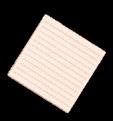


OU ISRAEL CENTER 73
האופר הניאר תב הרוא
המלש






























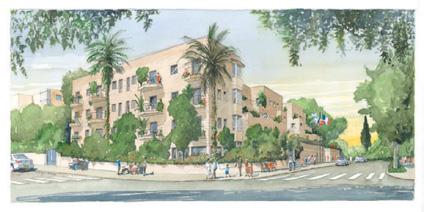

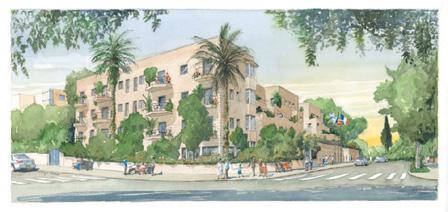
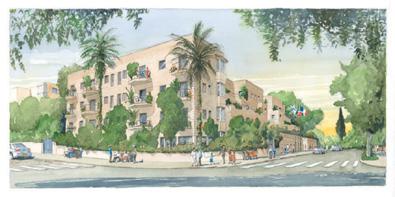









74 TORAH TIDBITS 1562 / METZORA - PESACH - ACHREI MOT 27 KOREH-HADOROT ST., JERUSALEM NEVE.SHALEM @GMAIL.COM | WWW.NEVE-SHALEM.CO.IL BOUTIQUE RESIDENCE FOR SENIORS IN THE LUXURIOUS NEIGHBORHOOD OF ARNONA, JERUSALEM Full calendar of activities and entertainment in English and Hebrew! Quality apartments built to high standards with balconies & gardens A dedicated staff providing for all the needs of our senior citizens 24/7*3204 SINCE 1995 27 KOREH-HADOROT ST., JERUSALEM NEVE.SHALEM @GMAIL.COM | WWW.NEVE-SHALEM.CO.IL BOUTIQUE RESIDENCE FOR SENIORS IN THE LUXURIOUS NEIGHBORHOOD OF ARNONA, JERUSALEM SENIORS WITH Full calendar of activities and entertainment in English and Hebrew! Quality apartments built to high standards with balconies & gardens A dedicated staff providing for all the needs of our senior citizens 24/7*3204 SINCE 1995 FOR IMMEDIATE OCCUPANCY 3 ROOM APARTMENT + PORCHES 0505246077 27 KOREH-HADOROT ST., JERUSALEM NEVE.SHALEM @GMAIL.COM | WWW.NEVE-SHALEM.CO.IL BOUTIQUE RESIDENCE FOR SENIORS IN THE LUXURIOUS NEIGHBORHOOD OF ARNONA, JERUSALEM NEVE SHALEM IS AN ASSISTED LIVING FACILITY FOR RETIREES AND SENIORS WITH 60% ENGLISH SPEAKERS! Full calendar of activities and entertainment in English and Hebrew! Quality apartments built to high standards with balconies & gardens Professional medical services A dedicated staff providing for all the needs of our senior citizens 24/7 - Just like family! *3204 SINCE 1995
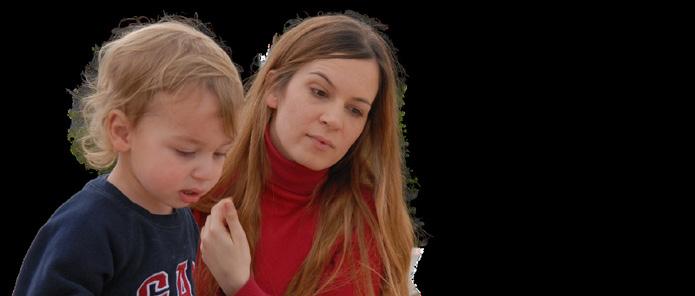









Since October 7 over 230 new WIDOWS over 550 new ORPHANS
The IDF Widows & Orphans Organization is facing an unprecedented crisis, embracing new families on a dramatic scale not seen before.
With decades of experience, we are Israel's leading nonprofit organization providing lifelong support for the widows and orphans of those killed in action while defending our home. We are here to ensure they receive the holistic, lifelong care they deserve.
Supporting our work is a profound gesture of solidarity and compassion to those who have paid the highest price for Israel's security.



Scan to donate, or go to: www.idfwo.org/en/donate/ Established
OU ISRAEL CENTER 75
in 1991, IDF Widows & Orphans Organization is a freestanding nonprofit nonprofit organization for the widows and orphans of Israel's fallen soldiers, and recognized by the State of Israel to provide the services we do. We provide emotional, social, financial, and any other necessary support, as well as special activities and programs, cultivating a true sense of community, year round - for life. Amuta number: 580202166 | david@idfwo.org | www.idfwo.org

RABBI GIDEON WEITZMAN


Finding God, Wherever He Is PESACH
This week, within 12 hours I attended two celebrations of the birth of children. While both of them were great occasions and had many similar elements; proud parents, delighted families and happy guests, they were very different from each other.
The first was a party to celebrate the birth of a healthy girl. Her parents had undergone numerous fertility treatments, and had endured years of infertility. They had been to PUAH numerous times to be consoled when yet another treatment failed, and to explore other opportunities and treatment options. They did not give up, and, eventually, their dream to have a child was realized. They were much older than the average new parents, but they were no less delighted and excited.
The following morning, I attended the Brit of a young couple who had given birth to their fourth child, within a few years. The young couple had not faced any serious fertility challenges and had been blessed with healthy children. They were extremely happy and celebrated the birth, and they had not faced the extreme trials and tribulations experienced by the previous couple.
Sometimes everything goes according to plan, all moves forward at the correct pace, with no obvious pitfalls. And sometimes life is much more complicated, our plans are dashed by reality and the
accompanying difficulties.

These events reminded me of Purim and Pesach. The celebration of Pesach is of the obvious miracles, during which God can be seen and observed clearly for all to see, both the Jewish People and the Egyptian nation recognized that it was God who took us out of Egypt.
Purim is very different; God is absent, so much that His Name is not mentioned in the Book of Esther, only alluded to. Not even all of the Jews saw the miracle and recognized the Divine Hand, and saw Mordechai as just a politician and not as part of the Divine plan. It takes someone able and willing to delve deeper to see God behind the complications and complexities.
It is well worth noting that 50 days after Pesach we celebrate Shavuot where we met and saw God on Har Sinai and received His holy Torah. 50 days after Purim we celebrate Yom Haatzmaut, the establishment of the State of Israel. Those who are able to discover God within the complexities of hidden miracles on Purim should be able to see Him within our own miracle of the modern State of Israel.
We celebrate God’s hand in all births, the “simple” ones as well as the much more complicated births.
Pesach Sameach
76 TORAH TIDBITS 1562 / METZORA - PESACH - ACHREI MOT
Machon Puah for Fertility and Gynecology in Accordance with Halacha
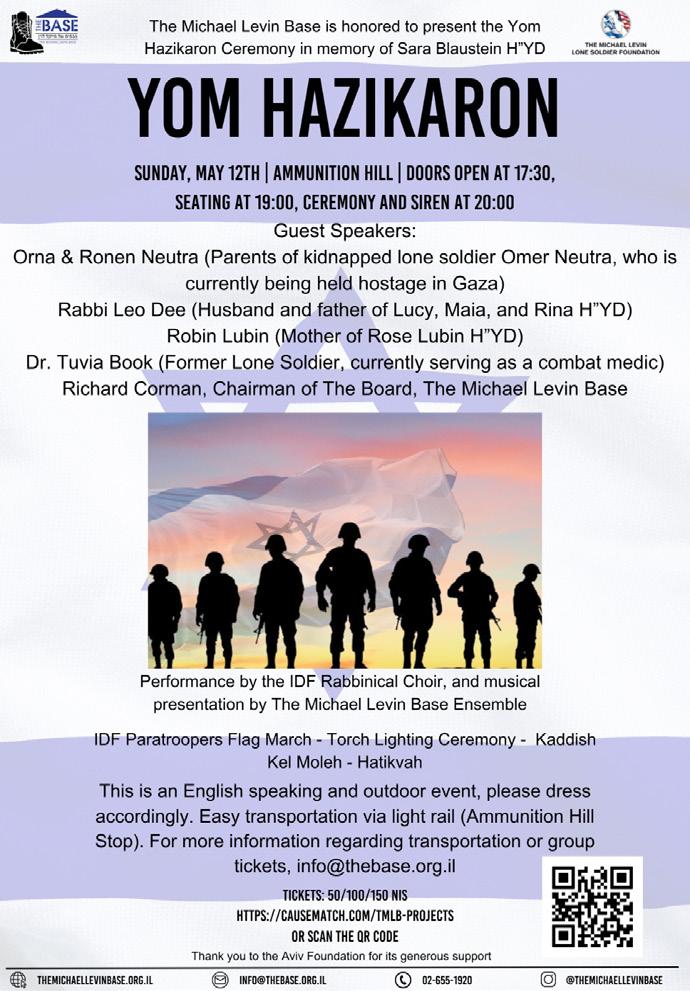
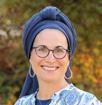
The Freedom of Pesach (Cleaning)
Am Yisrael left Mitzrayim in the blink of an eye. What took longer, though, was getting the “Mitzrayim” out of Am Yisrael. The slave mindset, instilled in them for 210 years, did not dissipate upon crossing the border. In reality we are all still working on it thousands of years later.
Each chag shines a specific energy into the world. The energy of Pesach is freedom and renewal. Every year, during this season, the koach of the first Geulah is drawn into the world, and we are given the opportunity to become “free” once again by “leaving Mitzrayim.”
The word “Mitzrayim” is related to the word “meitzarim,” limitations. Each year “leaving Mitzrayim” means breaking free from the slavery of old habits, outdated mindsets, and unhealthy self-perceptions.
It seems ironic that the chag which represents becoming free also includes the most intense work in the days and weeks leading up to it. How does this labor and the resulting exhaustion and chaos help us find freedom?
Rav Avraham Tzvi Kluger teaches us that the chaos of preparing for Pesach is not only part of “leaving Mitzrayim,” but actually
PESACH



enables the whole process. One of the impurities of “Mitzrayim” is the idea that we can rule over the forces of nature to gain the outcomes we desire. The impurity of thinking we are in control.
But we have no control. Hashem runs the world and control is only in His Hands.
The sooner we realize that reality, the healthier, freer, and more connected we will be.
Rav Kluger points out that in the days leading up to Pesach, the reality of the situation: the topsy-turvy schedule, the mess of turning over our houses, and the sheer chaos of the preparation forces us to practically raise our hands in surrender. And that is exactly the point. Only through the act of recognizing and yielding to a Greater Power, to Hashem, can we find true serenity and actual freedom.
This is the truth of reality. We never have control. Over the course of the year we slip into the delusion that we can manage and contain the chaos. That we can manipulate and master the world around us. In the days leading up to Pesach, however, that façade is conclusively crushed.
These days compel us to open our eyes to the truth:
Having a schedule does not give us the power to control the outcome of the day, keeping our houses neat cannot impose order on the world, and there is no way to restrain the commotion of life.
Pesach reminds us that Hashem, in His
78 TORAH TIDBITS 1562 / METZORA - PESACH - ACHREI MOT
HOLY SITES IN ISRAEL
SHOSHANA JUDELMAN
kindness, has not left us in charge. The restrictions the chag imposes on us rewire our brains to recognize true freedomknowing that we are in Hashem’s Hands. In acknowledging Hashem’s control, we relieve ourselves of the burden of our own misconceptions and meitzarim.
All year long I see myself a certain way, I doubt and limit myself by my own mindset. Freedom from Mitzrayim comes from knowing that since only Hashem is in control, only He sets the limits on my capabilities. The dreams in my heart are there because He plants them there, and I am limited only by my willingness to reach for them.
May Hashem bless each one of us to know that our efforts leading up to this chag unlocked a doorway of renewal, to courageously walk through that doorway to the path of growth, to embrace the chaos as a way of letting go, and, above all, to feel Hashem giving us the koach to keep moving forward. Chag Sameach!
Shoshana teaches Chassidus for the Shirat David Community in Efrat as well as in Jerusalem for Midreshet Rachel v’Chaya and Shiviti Women’s Institute. She is a guide in Poland with JRoots and co-leads inspirational trips to Ukraine and around Eretz Yisroel. Shoshana has also been a guide at Yad Vashem since 2014.
NACHI REALTY 054-461-3943
Wishing all Torah Tidbits readers
For sale in Givat Mordechai 3 rooms on the ground floor with building rights for 80 additional meters. 2.37m shekel.
For Rent in Katamon
30m studio on Bustani street, ground floor, small garden, for independent people over 55. 3500NIS/month incl va'ad habyit & heat.


OU ISRAEL CENTER 79
KNOW WHAT TO ANSWER FREE COUNTER-MISSIONARY Videos • Parsha Insights • Booklets • Counseling Rabbi Bentzion Kravitz • rabbikravitz@JewsforJudaism.org
!חמשו רשכ חספ


Can We Make This Night Different From All Other Nights? PESACH
Heshie: In the seventh chapter of the Laws of Chametz and Matzah, the Rambam in his Mishneh Torah recounts the rules found in the Talmud Bavli in the last chapter of Tractate Pesachim. He speaks about the pivotal role that children play at the Passover seder. In essence, they are the center of our attention on the night of Pesach. It is important for all parents and grandparents to remember that every child is different, and that the adults must make an effort to engage each child in his own way on the night of Passover.
Rambam suggests doing unusual things at the seder in order to arouse the curiosity of the children around the table. He mentions giving out nuts at the table. In his time, perhaps that was something unusual. In every generation there are different things that might be enacted to make the seder exciting and interesting. Over the years, we have given a lot of thought to ways to engage our children and grandchildren at this significant Jewish celebration. What follows are some ideas that we’ve culled have found fun and compelling. Perhaps some of these pre-Pesach and seder night ideas will resonate with our readers. You may want



to keep a list and add to it every year when an original idea comes to you, or you hear something from friends.
Rookie: The seder is perhaps the most observed Jewish holiday of the entire calendar year. It even beats Chanukah for the number of Jews observing some family meal in which the exodus from Egyptian slavery into freedom, and then becoming the nation of Israel is celebrated.
The centerpiece of the seder is the telling of the story, which sounds like it is a Torah commandment through the words “Ve’Higadeta l’Vin’cha” (and you shall tell your children!) There are a lot of words in the Maggid section, and words don’t always speak to all children. Here are some ideas we’ve gathered from friends and family about enhancing the seder night experience for the children and grandchildren. Of course, in Israel it’s easier. No second seder!
Sedarim come in cycles. When there are young marrieds with small children, the seder is focused on the fun and competition. When the children are grown, we enjoy long sedarim with lots of learned divrei Torah.
And then when we have grandchildren, the seder again comes around to entertaining and
80 TORAH TIDBITS 1562 / METZORA - PESACH - ACHREI MOT
REBBETZIN ROOKIE AND RABBI HESHIE BILLET
OLIM THINKING ALOUD
engaging the children.
Some suggestions for both before the holiday and during the seder night:
Take children to a sefarim store before yom tov and allow them to choose a new illustrated Haggadah out of the many available.
Give kids a colorfully photographed Pesach cookbook and allow them to choose a dish they will help prepare. Let them compose the shopping list for the recipe.
Have a silver polishing “party” on the mirpeset or in the garden.
Assign each child a paragraph to read aloud at the seder. Not just Abba or Saba will read, but you will too. Make sure the child prepares his paragraph, so he will read fluently and accurately, with understanding and expression. (In 1990-1, we hosted an almost 13 year old Jewish boy from Poland who wanted to come to the US to get a year of Jewish life. He learned to read Hebrew while attending day school in our neighborhood. About six weeks before Pesach, we assigned him a paragraph. He diligently practiced it every day and was so proud to read aloud with the rest of our kids at the seder!)
Have a child practice a dvar Torah to actually present it, not just read it from a paper.
Buy a new costume item every year and add it to the collection. We have magnificent Pharoah and Pharoah’s wife hats that are a hit every year!
Sing whenever you can. Timeless words are remembered best when set to music. Even though my singing voice isn’t great, I always sing, saying that, if this is the voice God gave me, it must be the voice He wants to hear!
Bring a glass pitcher of tomato juice to the
table for Makat Dam.
Throw the plastic frogs around at each other at every opportunity.
Have the children pinch the adults, making believe the kids are lice.
Don animal gear and emit loud roars to imitate the wild animals of Arov.
Domestic animal cries like baa, neigh, moo, kukuriku, etc., can be vocalized and grow weaker as the deadly dever takes effect.
Red and white boils can be prepared on arm bands and face masks.
A laundry bag or pillow case with a towel inside can be hauled over one’s shoulder as the family exits Mitzrayim b’yad rama!
Take a blue table cloth and make waves with it, and have the children cross the sea!
Use the matzah covers, afikomen bags and pillow covers made in preschool! Though not so elegant, they provide a nostalgic tour down memory lane.
Finally, Pesach is a wonderful time to build family memories and family values. Are the kids hearing what we are saying? Are we conveying it clearly enough? Let’s make this Pesach the opportunity to continue the conversation that will last throughout the years and across the generations.
A recent oleh, Heshie Billet is Rabbi emeritus of the Young Israel of Woodmere and a past President of the Rabbinical Council of America. A recent olah, Rookie Billet retired from a long career as a Jewish educator, principal, synagogue rebbetzin, and yo’etzet halacha in the US.

OU ISRAEL CENTER 81
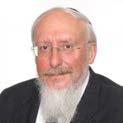
The Golden Mean
PESACH



Beyond the Letter of the Law
The first fulfillment of the mitzvah of relating the Exodus - םירצמ תאיצי רופיס , was performed by Moshe with his father in law, Yitro (Shmot 18:8 ונתחל השמ רפסיו).
The economist John Kenneth Galbraith once commented that the definition of a true philosopher is someone who can defend two polar opposite theories and be comfortable with Galbraith was on to something, but he was preceded by Chazon Ish.
In a letter, Chazon Ish comments on the qualifications of a Navi. He quotes Rambam for example who states that Nevu’ah can only be received and transmitted if the prophet is b’simcha. Remarkably that means, comments Chazon Ish, that when Yirmiyahu wrote Eicha he was b’simcha! This counter-intuitive reality highlights the fact that a person has the capacity to live with two contradictory qualities and function comfortably with both of them simultaneously.
Included in this memorable dialogue, Yitro actually adds a parsha to the Torah. This is quite bizarre. Yitro, a newly minted Ger, proceeds to reform Moshe’s judicial system! Concerned that his son in law is working too hard, he presents a court system that will ease Moshes’s role of providing law and order for the nation.
Parenthetically there is dispute between Rashi and Ibn Ezra whether Yitro converted before or after the Giving of the Torah. Tongue in cheek we can suggest a third possibility, that Yitro in fact never converted. It is highly unusual to imagine a Jewish father in law complaining that his son in law is working too hard!

The real question is the presumptuousness of this “new man on the block” to immediately suggest major changes in the transmission of Torah.
It gets more bizarre. The Talmud (Baba Metzia 30b) insists that Yitro did not simply offer advice about how to insure that Am Yisrael will live according to the Law. He actually introduced the obligation to perform mitzvot
Beyond the Letter of the Law – ןידה תרושמ םינפיל (Shmot18:18 ןושעי רשא השעמה).
In fact a careful reading of the first and second chapters of Rambam’s Hilchot Deot will reveal that this is the proper understanding of the Golden Mean, the middle path in exercising character traits. Contrary to the generally accepted understanding of this central motif that this “middle road” is “moderation” in the classic sense ( not extremely arrogant yet not extremely humble, but somewhere in the middle). Rabbi Menachem Mendel of Kotzk was known to say “A horse walks in the middle of the road not a Jew”.
It is surprising enough that he insists on adjusting the procedure of Law but now he is insisting that Am Yisrael go “the extra mile” beyond the letter of the Law!
Perhaps “presumptuous” is not strong enough criticism. It seems to be the height of chutzpa! Again how does this newly minted convert assume the position of challenging Moshe and the people to aspire to this elevated level of commitment?
A proper analysis of Rambam’s halachot will reveal the true understanding of the Golden Mean.
Before we answer the question let us define the concept of Lifnim Meshurat haDin with the help of Ramban . The central mitzvah תבהאו ךומכֶ ךיערל - to love every Jew as yourself
He can also exercise extreme humility and an embracing love
It is not about a constant positioning “in the middle “Deot is about being in total control of one’s emotions. True success
In the words of Ramban is an exaggeration Firstly it is against the law, ןימדוק ךיח - “your own life comes first”. (Bava Metzia 62b). Secondly it seems to be psychologically impossible based upon the axiom “man’s best friend is himself” - ומצע לצא בורק םדא (Yevamot 25)
Here’s the amazing thing, Ramban is not being critical and dismissive of ךומכֶ yourself when he refers to it as an exaggeration. He is actually defining the proper performance level of the mitzvah. Incredulously, every Jew is challenged to perform Beyond the Letter of the Law.
In fact “beyond” is an imprecise translation. Lifnim means two things. “Pnim”, internal, meaning that this concept is the essence, the microchip of the mitzvah. Additionally
82 TORAH TIDBITS 1562 / METZORA - PESACH - ACHREI MOT 24 TORAH TIDBITS 1487 / YOM KIPPUR - HA'AZINU - SUKKOT - SHEMINI ATZERET/ SIMCHAT TORAH - V'ZOT HABRACHA 5783
Rabbi Emeritus, The BAYT Toronto OU Israel Faculty RABBI BARUCH TAUB YOM KIPPUR Securities offered through Portfolio Resources Group. Inc., member of FINRA, SIPC, MSRB, SIFMA US BROKERAGE SERVICES IN ISRAEL Get the Best of Both Worlds Keep your money in the US and receive local expert investment advice 02-624-0995 054-599-9530 aaron@lighthousecapital.co.il www.aaronkatsman.com CALL RABBI BARUCH TAUB RABBI EMERITUS, THE BAYT TORONTO OU ISRAEL FACULTY
Lifnim means “ before” not “beyond”. The goal to reach this level is a prerequisite to the performance of the mitzvot.
So how in the world is Yitro the first Ger in Jewish history the one to not only introduce this concept but insists on its universal performance?!
The truth is Yitro is the only one in a position to introduce this idea precisely because he is the first Ger. Yitro is the first Jew by choice. His entire persona is Beyond the Letter of the Law. His surrender to HaShem is not about what “I have to do” but about “what I want to do”.
This entire dialogue took place on the backdrop of a “Pesach Seder” between Moshe and Yitro. This was not unintended nor serendipitous. The seder is in fact designed to be a Beyond the Letter of the Law moment. Take for example the central mitzvah of the seder ךניבל תדגהו, discussing the Exodus with our children. Beyond the Letter of the Law demands a conversation reaching beyond the words of the Haggadah. It is not a “one size fits all” presentation. The Haggadah speaks of multiple children with different needs. The open dialogue of the Seder must be infused with a sense of excitement and adventure. The ideal fulfillment should encourage curiosity, questioning, seeking and exploring. The central motif of the seder should create a desire on the part of the participants to understand that Yahadut is not about what “I have to do” but “ what I want to do” more and more!








There is no better place to put Yitro’s “beyond” challenge to work than at the Seder Shel Pesach.
Chag Kasher veSameach

OU ISRAEL CENTER 83 RTING AT 1.69M NIS IL: 972.52.682.9367 info@keteradvisors com US: 786.385.8859 www keteradvisors com KETER ADVISORS: THE CROWN JEWEL OF ISRAEL REAL ESTATE 3 BEDROOMS 111 SQM + 12 SQM PORCH 4 BEDROOMS 129 SQM + 18 SQM PORCH INCLUDES: SHABBAT ELEVATORS + STORAGE ROOM + 1 SPOT PARKING (4 BEDROOMS = 2 SPOTS) + CENTRAL AC UNIT A B O U T T H E P R O P E R T I E S : S T A R T I N G A T : 3 BEDROOMS 1 69M NIS ($458K) 4 BEDROOMS W/SEA VIEWS 1 9M NIS ($515K) BAT YAM - FIRST LINE - ON THE BEACH 3 BEDROOMS 104 sqm + 12 sqm Balcony STARTING FROM 3 21M NIS -------------------------4 BEDROOMS 125 sqm + 12 sqm Balcony STARTING FROM 3 4M NIS -------------------------THOUSE - 170sqm + 56 sqm Balcony TARTING FROM 6 1M NIS (2 LEFT) -------------------------APARTMENTS - PARKING & MACHSAN Actual View ONLY 8 APARTMENTS LEFT 2 BEDROOMS & 3 BEDROOMS -------------------------ALL APARTMENTS - PARKING & MACHSAN NORTH NETANYA - STARTING AT 3.21M NIS Izzy Leizerowitz Broker Fee: 2% + VAT DID YOU KNOW YOU CAN USE YOUR IRA AND 401K FUNDS TO BUY INVESTMENT PROPERTY IN ISRAEL WITHOUT TAX PENALTIES? WE DO PROPERTY MANAGEMENT WHILE YOU ARE AWAY / LONG-TERM RENTAL SHORT TERM RENTAL / DURING CONSTRUCTION A S H K E L O N , N E W P R O J E C T - F R O M 1 . 7 7 M N I S 2 BEDROOMS - FROM 1 77M NIS 3 BEDROOMS - FROM 2 3M NIS 4 BEDROOMS - FROM 3 16M NIS WITH SEA VIEWS SHABBAT ELEVATORS + STORAGE ROOM + CENTRAL AC UNIT + PARKING A B O U T T H E P R O P E R T I E S : L A N D F O R I N V E S T M E N T O R B U I L D O R B O T H Zoned Agricultural - Investment Rosh Pina , Zichron Yaakov, Meir Shefiya Zoned Residential Land - Build Your Home! Hatzor Haglilee , Migdal, Yavniel Actual View Meir Shefiya LUXURY - BOUTIQUE BUILDING * F U R N I S H E D M O D E L U N I T - 3 B E D R O O M S - S U K K A H P O R C H - 2 5 M N I S NETANYA NORTH NETANYA - AMAZING LOCATION , AMAZING BUILDING SEA VIEWS - 4 Bedrooms From 4 25M NIS 132 sqm apt + 19 sqm Porch SHABBAT ELEVATORS + CENTRAL AC UNIT + PARKING CENTRAL NETANYA - GREAT VIEWS SEA VIEWS - 4 Bedrooms From 3.9M NIS 131 sqm apt + 17 sqm Porch SHABBAT ELEVATORS + CENTRAL AC UNIT + PARKING
“We’re being extra careful with Shmiras Haloshon at our Pesach table as a zechus for Eretz Yisrael.”
-Moskovitz Family
RAMAT ESHKOL
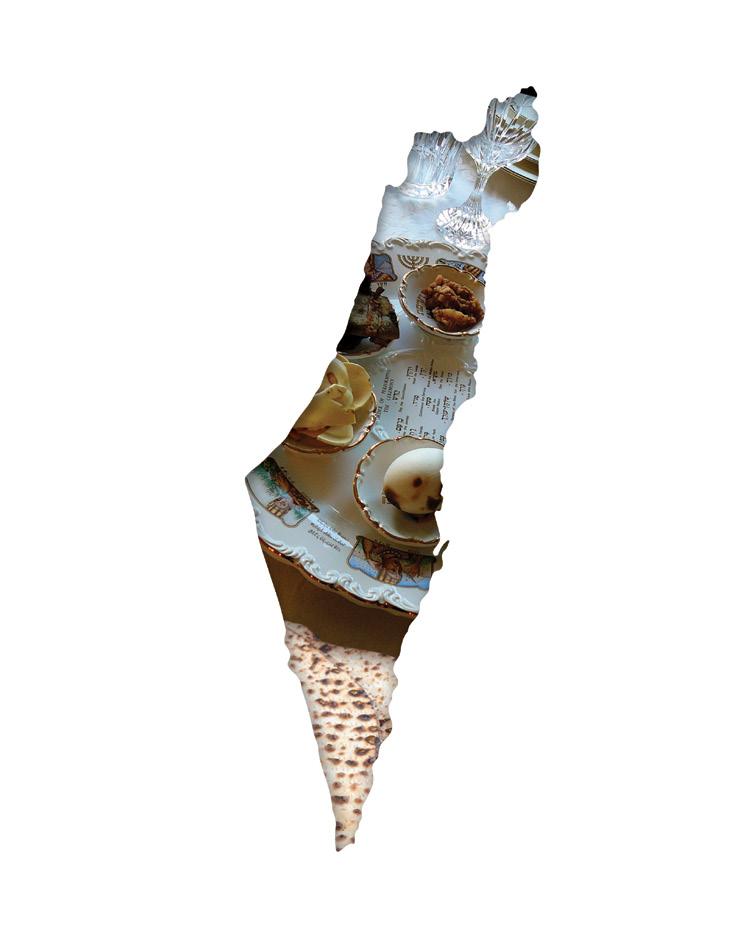
Join Jews all over the world
who will be extra careful at their Pesach table with Shmiras Haloshon as a zechus for the hostages, the soldiers, the Jews of Eretz Yisrael, and for every person in your own family who needs a yeshua.
Download
our Pesach Table Machsom L’Fi learning materials before Yom Tov at cchf.global/pesach24.

84
845.352.3505 ext. 5 | cchf.global


RABBI DAVID FINE
FOUNDER AND DIRECTOR OF BARKAI


Beit HaMikdash at the Seder PESACH
Maimonides describes the order of practices of the Seder night in the eighth and final chapter of the “Laws of Chametz and Matzah” in his Mishna Torah. It is a simple description of the steps of the Haggada which almost any Jewish school child could have written equally as well. But there is something surprising: after the eating of Matzah and Maror he suddenly gets to the meal- what we call Shulchan Orech and this is how he describes it: “the body of the Paschal lamb, and the meat of the festive offering of the fourteenth of Pesach [is brought out].” Whoa! The Rambam lived over a thousand years following the destruction of the Beit HaMikdash and wrote a practical guide to Jewish law for people living in his time. Why would he say that we bring out sacrificial meat fully realizing that this was impossible?
Yes, he does immediately write “At present, we bring two types of meat on the table: one in commemoration of the Paschal sacrifice and one in commemoration of the festive offering.” But this seems to be a strange and perhaps even confusing way of describing what one should do at the Seder.
Rambam is attempting to make something crystal. The essence of the Passover Seder is the Beit HaMikdash. No matter how grand and festive a Seder may be – it is lacking until we are able to eat the sacrificial meat. It is no mistake that Pesach is celebrated while we

read the Parshiot that describe the Mishkan and the sacrifices. The worship of God in his Temple in Jerusalem is the only way that the Torah can be fully realized.
This message lurks behind almost every page of the Haggada. One example is Karpas. Some classical commentators (see Maharil Seder HaHagadda 16) suggest that we eat Karpas because it increases our appetites. The Matzah and the Korban Pesach are to be eaten with an appetite and so we eat Karpas.
At the outset this seems strange, writes Rabbi Mordechai Breuer in his Pirke Moadot (Volume 1:82-87). There is a significant amount of time between the eating of Karpas and the eating of Matza. Certainly, the increase in appetite caused by a small amount of Karpas would be far more effective done closer to eating the Matza. We eat the Karpas when we do according to Rav Breuer because in the time of the Temple the Korban Pesach would be eaten directly after the Karpas and before the reading of the Haggadah different from the order we do it today (See also HaHaggada Mimekora by Rav Rimon p. 23 note 2). So even though it would be far more effective in doing what it is meant to do if eaten later, we eat it when we do to remind us of the Temple.
The Temple is not simply a physical structure. It is meant to serve as a metaphor of peace and unity for all who wish to worship
86 TORAH TIDBITS 1562 / METZORA - PESACH - ACHREI MOT
the One God in peace. Our current struggle against those who attack us is essentially about this. Soldiers report that almost every home in Gaza had a picture of “Haram Al Shariff” and Al-Aqsa Mosque on the wall. It was no mistake that the actual name of October 7th attack was “Operation Al Aqsa Flood” by Hamas. The battle is over whether our concept of the Temple as a place of moral and ethical monotheism will win out.
Do we have pictures of the Temple mount on our walls? Are we willing to go the extent that they are (Lehavdil) in order to make sure that our vision wins the day? As we celebrate the Seder this year where the multiplicity of reminders of this concept abound this is something that I suggest we think about as the Rambam reminded us we need to do many hundreds of years ago.


OU ISRAEL CENTER 87
Jewish Heritage and the Golden Triangle
and its rich Jewish
04 - 19 November 2024 Limit seats available Professional Tour leaders Professional Tour leader 5* hotels (where available) indiakoshertravel.com moshe@indiakoshertravel.com Rich itinerary Glatt kosher Group tour Guaranteed Departure You just dream it We will mak it happen
A fascinating journey into the land of the palaces
history
INDIA
KOSHER TRAVEL Glatt
A Message from NCSY Israel’s Founders




As we write this opening letter for our NCSY Israel Haggadah companion, it is Erev Rosh Chodesh Adar 5784 and we are five months into the war in Israel. Since October 7th, we have been fighting, praying, and learning Torah to defeat our enemies in and outside of our homeland. It is our hope that when you receive this publication the Mashiach will have come, and we will be dancing in the streets of Yerushalayim and offering the Korban Pesach together celebrating our nation’s physical and spiritual redemption.
The Talmud in Megilah (6B) has a discussion when there is a leap year when should one perform the mitzvot of Purim, in the first Adar or the second Adar? It first raises the idea that it would seem to make most sense to perform the Mitzvot in the first Adar since “We do not pass over the opportunity to perform Mitzvot” and therefore we should take the first opportunity that comes available to us. Ultimately, we conclude the second Adar is when one should celebrate Purim because “The juxtaposition of the redemption of Purim to the redemption of Pesach is an even more worthwhile principle.” Since the holiday of Pesach follows directly one month after Purim we decide to therefore celebrate Purim in the second Adar instead of the first to connect their redemptive narratives.
Why is it so important to connect the redemptive narratives of Purim and Pesach? What lesson is so vital for us to learn in juxtaposing each experience a month apart from one another. The Talmud in Megilah (14a) asks why isn’t Hallel recited on Purim? One of the reasons mentioned is because “The redemption was not complete, and we remained as servants to Achashverosh.” Although we were saved from an imminent physical danger, we still were subservient to a foreign kingdom without Jewish autonomy. On Pesach we declare at the Seder night “Once we were slaves in Egypt. Now, we are free.” If we are not slaves in Egypt anymore then is it not obvious we are free? What is the deeper message to this seemingly obvious proclamation? Rav Adin Steinsaltz z”tl explains that it is not enough to physically leave servitude and automatically become fully liberated. Complete freedom for the Jewish people is the ability to live out our purpose dictated by God alone. We must recognize the miracles of Purim and our physical salvation, but we must not be complacent and stop there. Pesach wasn’t just about leaving Mitzrayim it was about beginning the path to ultimately receive the Torah and live as a nation in Israel to develop into the model nation the world so desperately needs. It was our spiritual salvation.
From our own personal experiences these past five months it feels like our nation is finally transitioning from the “Purim redemption” to the “Pesach redemption.” Medinat Yisrael became a safe haven after the devastation of the Holocaust providing a physical asylum for Jews worldwide. At the same time, we have witnessed the spiritual light of our nation develop slowly. Since October 7th, that light is shining brighter than ever before. More Tzitzit are being worn by IDF Soldiers than ever before, more Torah is being learned now than in any point in Jewish history, and we have never seen such unprecedented unity in our Nation. More so, the teens of NCSY Israel and all around the country are fired up with Jewish connection and Jewish pride. May this year be the year we merit to experience the juxtaposition of redemption to redemption with the bringing of Mashiach and a rebuilt Jerusalem now!
We welcome you to experience the Seder with NCSY Israel’s fifth annual Torah 4 Teens by Teens Haggadah Companion. Download your free copy at israel.ncsy.org/haggadah2024


Rabbi
Yosef Ginsberg Regional Director


 Rabbi Michael Kahn Executive Director
Rabbi Michael Kahn Executive Director
PESACH

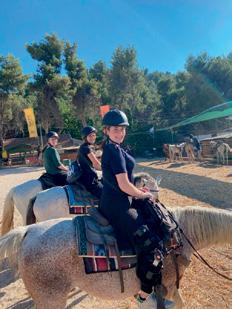

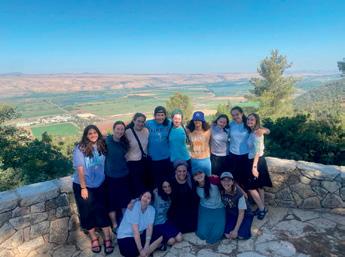
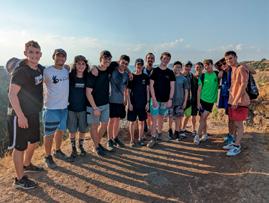
•Separate boys and girls programs
•For 10th-12th graders living in Israel
•July dates


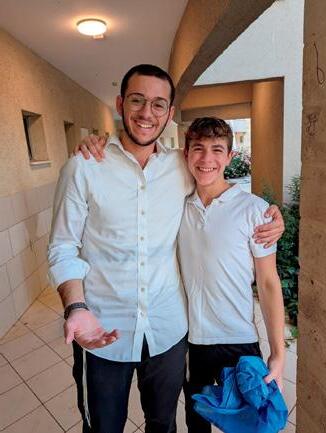
•Daily Torah learning and incredible tiyulim
F o r m o r e i n f o v i s i t
i s r a e l . n c s y . o r g / c h a i 2 0 2 4
o r e m a i l i s r a e l @ n c s y . o r g


202

ALIYA-BY-ALIYA SEDRA SUMMARY
RABBI REUVEN TRADBURKS RCA ISRAEL REGION
PARSHAT ACHAREI MOT
1ST ALIYA (VAYIKRA 16:1-17)
Aharon is instructed to enter the Holy of Holies only through an elaborate process of offerings. He is to bring a private sin offering. And a communal sin offering of 2 identical goats, one as an offering, one sent to the wilderness, determined by lottery. The smoke of the incense fills the Holy of Holies. The blood of both his offering and the communal shall be brought into the Holy of Holies.
Entry to the Holy of Holies requires an elaborate ceremony of unique offerings; including the scapegoat ceremony and the incense offered in the Holy of Holies. And it is all performed by the Kohen Gadol.
This continues the powerful and crucial theme of the entire section following Mount Sinai. In G-d’s reach for man, His love of man, He has created a place of rendezvous; the Mishkan. However, it is rendezvous with care, with reservation, with humility. The building design is with great detail. The offerings are with great detail; when they are brought, how they are brought, the Kohanim’s role in bringing them. G-d says: You may approach Me, I want you to approach Me, but with care.
The previous parshiot have described how to approach G-d in the Mikdash.
Here, He invites man to rendezvous in the Holy of Holies – the inner, intimate chamber, with the Aron and the tablets, covered by angels. This is something special. This
intimate invitation requires a very elaborate procedure; unique offerings like the scapegoat and the incense, sin offerings, olah offerings. The closer, the more intimate; but also the more care and preparation required.
This is a powerful and crucial theme: G-d invites man, wants man, but demands man’s understanding of his inadequacy and his human foibles (sin offerings). And while man is invited to the Holy of Holies it is with great limitation. Not every person, not every day; it is one person, the Kohen Gadol, only one time a year. G-d remains mysterious, ineffable, infinite, unknowable. This is the delicate balance the Torah is creating; G-d wants man. Man is noble, the invitee of G-d Himself. But with enormous deference, enormous humility of man’s limited station. Nobility and humility; the majesty in being the invitee of G-d, hand in hand with the reality of our woeful inadequacy.
2ND ALIYA (16:18-24)
The blood of Aharon’s private sin offering and of the people’s sin offering is sprinkled in front of the curtain. After Aharon confesses the sins of all the people, the second (scape) goat is sent to the wilderness. Aharon offers the olah offerings.
Aharon cannot seek atonement for the people before he seeks atonement for himself. And for the Kohanim.
It is assumed that in the course of the regular service in the Mikdash errors will be made. Those tamei will enter, perhaps accidentally. And the Talmud assumes the
90 TORAH TIDBITS 1562 / METZORA - PESACH - ACHREI MOT
ACHAREI MOT
Kohanim are “zrizim”, meticulous. Even so, errors occur.
No one is immune from errors. Even in the holiest of places.
3RD ALIYA (16:25-34)
This entire ceremony is done once a year on Yom Kippur, to gain atonement and purity. Through it the holy places as well as the people receive atonement.
Only at the end of the entire description of how one is to enter the Holy of Holies does the Torah tell us that this is to be done on Yom Kippur. As if to say: the goal of Yom Kippur is to enter the Holy of Holies. It is through man’s approach to G-d that he gains atonement and purity.
The offering of the incense in the Holy of Holies as part of this atonement process, echoes of Mt. Sinai. Maybe a reenactment of Mt. Sinai is being performed here. The Holy of Holies houses the Aron with the 10 commandments. At Sinai no one was allowed to ascend the mountain except Moshe; here no one is to enter the Holy of Holies except Aharon. At Sinai, a thick cloud covered the mountain; here, Aharon brings incense to fill the place with smoke.
Perhaps that is the message of atonement. It is the connection, the descent of the Creator on Sinai that symbolizes atonement. Because Sinai is the descent of the Infinite to the finite. We are nothing, sinful, inadequate, puny. Yet. He met us at Sinai. Sinai is the symbol of the desire of the Infinite to embrace finite man, while oh, so aware of our frailty. And that is atonement. Enter the place that will remind both of us of Sinai, fill it with smoke as at Sinai. And as I embraced you there, I again will embrace you here.

OU ISRAEL CENTER 91
4TH ALIYA (17:1-7)
Tell the entire people: all sacrifices are to be brought to the Mikdash. The Kohen is to offer them, so they are pleasing. We are to no longer offer sacrifices to spirits.
The centrality of the Mikdash is to emphasize monotheism: one place, one G-d.
5TH ALIYA (17:8-8:5)
Blood is not to be consumed, for life is in the blood. I have given it to you to use for atonement on the altar, not to consume. The blood of an undomesticated animal or bird that is killed for consumption, that blood is to be covered with earth. Do not do what the Egyptians or Canaanites do. Do My commands; and live.
The prohibition of blood is related to the value we place on life. Blood is our life force. We value life over all else. Hence give deference to blood.
6TH ALIYA (18:6-21)
Sexual relations with relatives are forbidden: including spouses of parents, half siblings, grandchildren, step-siblings, aunts, in-laws. In addition, marrying 2 women who are related. Or a married woman.
changes the subject from the laws concerning the Mishkan. It is not the first such change of subject. The laws of Kashrut of Parshat Shemini were also a change of subject. Thus, the first 2 subjects of laws unrelated to our approach to G-d in the Mishkan are food and family. These are the first things said to the first man and woman on the 6th day of creation: be fruitful and multiply. And eat of the herbs. Family and food were said to Adam and Eve. Family and food are the first laws of holiness outside of the Mikdash to be outlined in detail to the Jewish people.
7TH ALIYA (18:22-30)
A man shall not lie with a man. Sexual relations with an animal are forbidden. These things (all the above) defile the Land: it will spit you out.
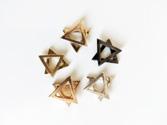


Take a break to enjoy a glass of wine and choose something new from my wonderful collections for every taste and budget. Square bejeweled rings, delicate earrings, and Magen Davids galore.
972-544-318814 // judit@juditb.com
The listing of forbidden relationships


92 TORAH TIDBITS 1562 / METZORA - PESACH - ACHREI MOT
Modern jewelry that always makes a statement
JuditB // juditb.com



OU ISRAEL CENTER 93 MAXI BoX 053-7272-815 ד״סב Storage Your place for extra space DR. AARON JESIN Canadian Physician Over 10,000 britot! From Toronto, Canada, now residing in Bet Shemesh Serving Jerusalem, the Mercaz, and all places between! www.DrJesin.com | 052-399-4313 תמישרב ךמסומ להומ לארשיל תישאר תונבר
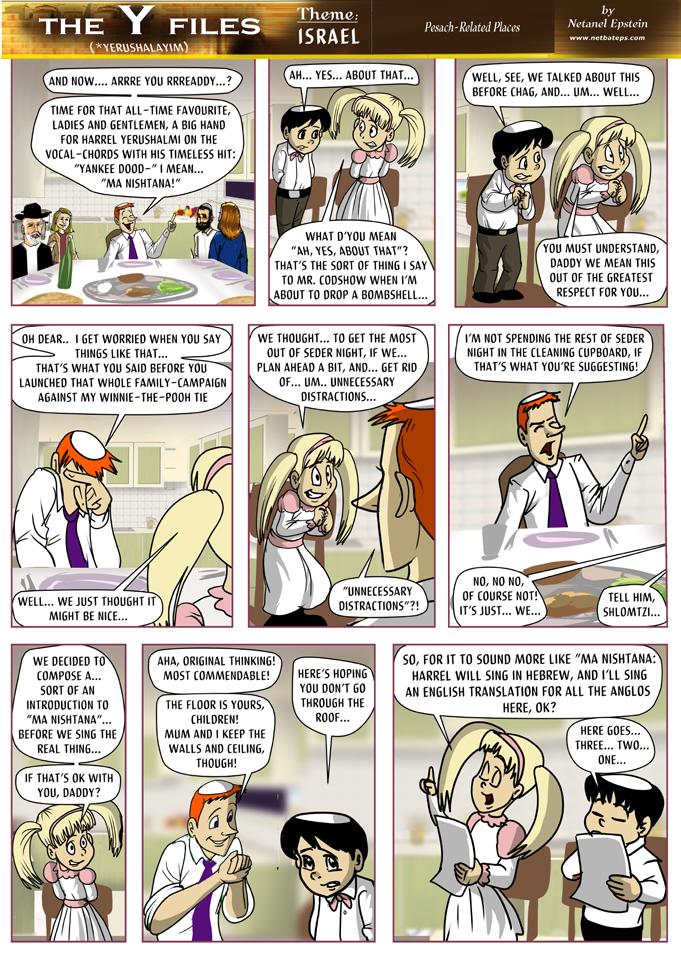
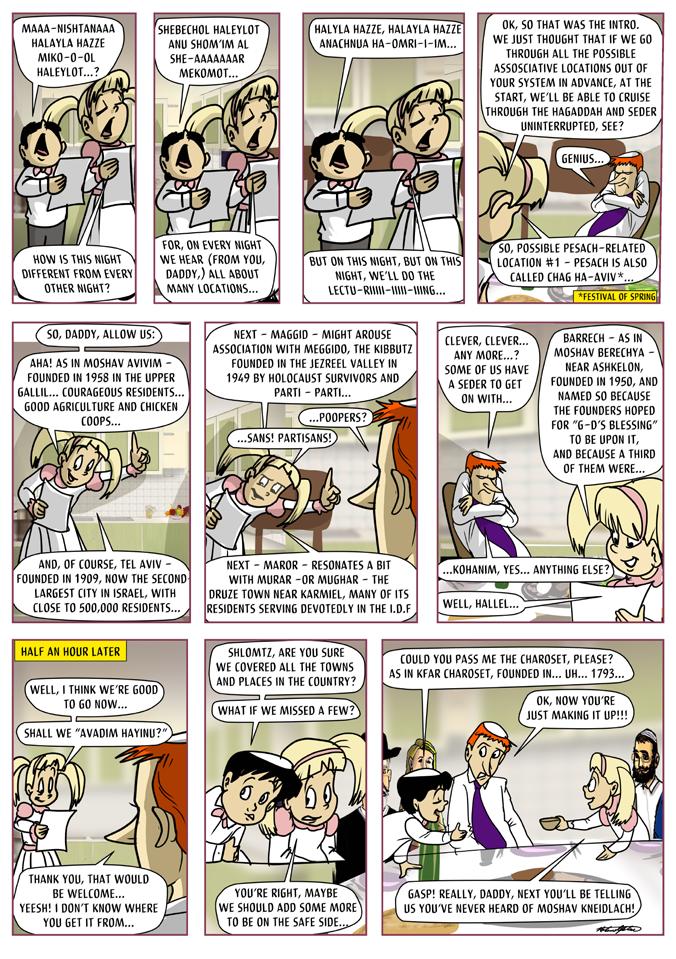

































































































































































 BY RABBI EZRA FRIEDMAN Director, The Gustave & Carol Jacobs Center for Kashrut Education Director, The Gustave & Carol Jacobs Center for Kashrut Education
BY RABBI EZRA FRIEDMAN Director, The Gustave & Carol Jacobs Center for Kashrut Education Director, The Gustave & Carol Jacobs Center for Kashrut Education


















 BY RABBI MOSHE TARAGIN R am, Yeshivat Har Etzion
BY RABBI MOSHE TARAGIN R am, Yeshivat Har Etzion





























 EDITOR, TORAH TIDBITS
EDITOR, TORAH TIDBITS RAV, THE JERUSALEM SHUL - BAKA, JERUSALEM
EDITOR, TORAH TIDBITS
EDITOR, TORAH TIDBITS RAV, THE JERUSALEM SHUL - BAKA, JERUSALEM












































































 Rabbi Michael Kahn Executive Director
Rabbi Michael Kahn Executive Director






















